Day 3 :
Keynote Forum
Vladimir Zaichick
Medical Radiological Research Centre, Russia
Keynote: Role and Place of Mass Spectrometry in Medical Elementology - a New Scientific Discipline
Time : 9:00- 9:30

Biography:
Vladimir Zaichick is a Nuclear Physicist, Biologist and Researcher. He obtained his MS in 1966 from the Moscow Institute of Engineering Physics, his PhD (nuclear physics) in 1972 from the Institute of Biophysics, Moscow, and his DSc (radiobiology) in 2011 from Medical Radiological Research Center, Obninsk, Russia. He is a full professor of radiobiology, a fellow of the British Royal Society of Chemistry (FRSC) and a Chartered Chemist (CChem) since 1996. He has made 141 presentations at seminars and conferences, published more 300 papers in reputed journals and is serving as an editorial board member of four scientific journals.
Abstract:
Since the times of the alchemists, chemical elements have been investigated in human organs, tissues and fluids. During the last decades the number of publications devoted to them increased considerably. Today, the number of published articles may be estimated at about twenty thousands, and the amount of monographs about hundred. This vast amount of data, dealing with the importance of elements acquired in different fields of scientific research and practical life, puts forward the need for a synthetic approach in element research. At the end of the 20th century, a new scientific discipline appeared, focused on the role of chemical elements in human body under physiological and pathological conditions. This new field of interdisciplinary study has been named: “Medical Elementology” (from lat. “medicina” and “elementum”). A lot of medical doctors, toxicologist, ecologist, chemists and physicist who were involved in the study of chemical elements in medicine and biology had thus the feeling that they were working in new self-sufficient scientific sphere. As a rule, all scientific disciplines are characterized, first of all: 1) by the subject of study; 2) by accepted postulates; 3) by research methods; 4) by methods of quality control; 5) by terms and definitions. Instrumental analytical methods such as non-destructive NAA and EDXRF as well as destructive AAS, ICP-AES and ICP-MS are the main research instruments in Medical Elementology. Role and place of ICP-MS will be discussed using our results obtained in the age-dependence studies of 67 chemical element contents in human bone, hair and prostate gland.
- Applications of Mass Spectrometry | Recent Advances and Development in Mass Spectrometry
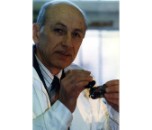
Chair
Alexander A. Sysoev
National Research Nuclear University MEPhI, Russia
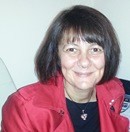
Co-Chair
Dijana Matak-Vinkovic
University of Cambridge, UK
Session Introduction
Miral Dizdaroglu
National Institute of Standards and Technology, USA
Title: Measurement of DNA repair proteins in cancer by mass spectrometry
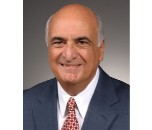
Biography:
Dr. Dizdaroglu has obtained his PhD at the Karlsruhe Technical University, Germany, and subsequently worked for 7 years at the Max-Planck-Institute for Radiation Chemistry, before moving to USA. He has been at the National Institute of Standards and Technology (NIST) for more 30 years. In 2006, Dr. Dizdaroglu was conferred upon the rank of NIST Fellow. To date, he published highly cited 247 papers. Dr. Dizdaroglu received numerous scientific awards including the Hillebrand Prize of the American Chemical Society, and the Silver and Gold Medal Awards of the US Department of Commerce. He was also awarded two Honorary Doctorates.
Abstract:
DNA damage occurs in living organisms by exogenous and endogenous sources. Unless repaired, DNA damage can cause genomic instability that may give rise to disease processes including carcinogenesis. Cancer tissues overexpress DNA repair proteins, leading to therapy resistance. Evidence suggests that DNA repair capacity may be a predictive biomarker of patient response. Thus, accurate measurement of DNA repair proteins in disease-free tissues and malignant tumors of patients may be essential in cancers, and for the development and use of inhibitors of these proteins in cancer therapy, and for determining the response of patients. We developed methodologies involving LC-MS/MS with isotope-dilution to positively identify and accurately quantify DNA repair proteins in human tissues. For this purpose, we produced and purified full length 15N-labeled analogs of human DNA repair proteins as internal standards. Following trypsin digestion, we identified numerous tryptic peptides of both unlabeled and 15N-labeled proteins by their full scan and product ion spectra. Next, we identified and quantified several DNA repair proteins in various human cultured cell lines, and in human disease-free breast tissues and malignant breast tumors. Extreme expression of the proteins in cancer cells and in malignant breast tumors was observed, suggesting that cancer cells may overexpress DNA repair proteins for survival. The approach described is expected to be applicable to the measurement of expression levels of DNA repair proteins in malignant tumors vs. surrounding disease-free tissues in patients. This attribute may help develop novel treatment strategies and DNA repair inhibitors as potential anticancer drugs, and guide therapies.
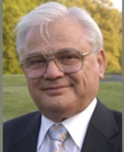
Biography:
Dr. Steven Soldin is a Senior scientist at NIH. He is also an Adjunct Full Professor at Georgetown University in the Department of Endocrinology and Metabolism. He has published 271 papers. His research interests focus on the role of specificity in improving patient diagnosis and treatment. He recently showed a statistically significant diurnal fluctuation in steroid concentrations for all steroids tested except progesterone. The extent of this diurnal variation is so large that it necessitates development of time dependent reference intervals. The role of mass spectrometry in improving patient diagnoses in hypothyroidism (5.7 % of population) and adrenal disease (7.4% of population) has been demonstrated.
Abstract:
Thyroid studies: Hypothyroidism affects around 5.5% of the population. Over the past 15 years we have shown that accurate and precise measurement of thyroid hormones employing mass spectrometry instead of immunoassay alters the classification of 2/3 of the patients with subclinical hypothyroidism and >50% of patients with hypothyroidism. Our studies have also shown that results for FT4 and FT3 measured by tandem mass spectrometry agree far better with TSH or log TSH and the patients clinical condition than FT4/FT3 measured by immunoassays. Also we show that measurement of FT3 and TT3 by immunoassay is unreliable, especially at low FT3/TT3.
Adrenal hypo and hyper function: Occurs approximately in 7.3% of the population.Employing tandem mass spectrometry to measure a serum steroid profile we have shown that 11-DOC and DHEA are superior to measuring cortisol after ACTH stimulation tests. Current practice requires measurement of only cortisol and are clearly suboptimal. Also right and left adrenal vein catheterization allow identification of excessive production and whether it was unilateral or bilateral .
Pietro Traldi
Paediatric Research Institute “Città della Speranzaâ€, Italy
Title: Investigation on bimolecular complexes in natural extracts by parent ion and neutral loss MS/MS experiments
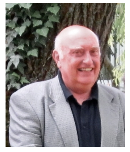
Biography:
Pietro Traldi obtained was graduated in physics in 1973 from Milan University. From 1974 to 2015 he was Research Executive at the Italian Research Council, working mainly in the field of mass spectrometry. He has published more than 600 papers in international journals. Actually he collaborates with the Paediatric Research Institute “Città della Speranza” in Padova and with Aboca SpA, Italy.
Abstract:
Many of the mechanisms of action of drugs can be explained by the theory of "lock and key": an active molecule to produce a pharmacological effect has to interact with the receptor site. However, in a highly complex biological system, such as a plant extract, hundreds of different molecules interact with each other leading to aggregation phenomena between different molecular systems. Then the formation of complexes between different molecules must be considered highly probable and the biological activity would have to be ascribed to molecular complexes rather than to a single molecule. A good example of this aspect is that related to tea, with complexes between caffeine and catechins, in particular epigallocatechin gallate (EGCg). The formation of these complexes has been studied in detail, showing that caffeine and EGCg in the solid state pile up to form complex stacks. By studying solutions 1H-NMR investigations show clear differences among the caffeine signals in the spectrum of pure, synthetic compound and those present in tea extracts. In the present investigation the capabilities of tandem mass spectrometry for the detection of these bimolecular complexes have been studied by ESI-QqQ instrumental approach. The presence of complexes in tea extracts has been tested either by precursor ion scans of the caffeine protonated molecule or by neutral loss scans aimed to find all the possible ionic species which loose neutral caffeine. By these approaches different molecular caffeine containing complexes have been evidenced.
Małgorzata Iwona Szynkowska
Lodz University of Technology, Poland
Title: Advances in Applications of Mass Spectrometry (ToF-SIMS, LA-ICP-ToF-MS) for Forensic Analysis
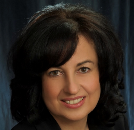
Biography:
Małgorzata Iwona Szynkowska received her PhD degree in 1999 from the Faculty of Chemistry, Lodz University of Technology, Poland, DSc degree in 2008, and full professor in 2016. Scientific and research fields include the applications of modern techniques (ToF-SIMS, SEM-EDS, ICP-OES, ICP-MS, LA-ICP-ToF-MS, AAS) in forensic chemistry, trace elements analysis (mainly environmental protection) and heterogenous catalysis. From 2016 she is a Dean of the Faculty of Chemistry. She has published over 100 papers, including more than 80 papers in reputed journals and 20 invited book chapters. She has been a head or main investigator of almost 20 scientific projects.
Abstract:
Mass spectrometry techniques, ToF-SIMS (time- of- flight secondary mass spectrometry) and LA-ICP-ToF-MS (laser ablation inductively coupled plasma time- of- flight mass spectrometry), are promising and very attractive tools in solving many important problems of forensic sciences. Surface imaging, the possibility of a reliable identification of substances on the surface with great analytical sensitivity and low detection limits allow one to discriminate samples found as evidence in different criminal cases. ToF-SIMS can be a powerful tool in chemical investigations of fingerprints left on different surfaces and polluted by traces of exogenous substances (e.g. traces of drugs, gunshot residues - GSR) which do not exist in natural excretion. This method makes it possible to characterize traces of substances transferred from the suspect’s finger or from the object (e.g. glass, mug, table, mobile phone) using special secondary basis like professional dactyloscopy tapes. It may be potentially applied in characterization of tobacco samples, drugs, inks and documents. Examinations using LA-ICP-ToF-MS proved that it can be potentially used for an elemental characterization of toners, inks, papers, gunshot residues, fragments of automotive paints, samples of hair and bones. The above mentioned methods can successfully complement conventional techniques used for forensic studies as they play a significant role in providing information on the chemical components and surface visualisation of forensic traces.
Amit Tzur
Bar Ilan University, Israel
Title: Integrated Microfluidics for Protein Modification Discovery
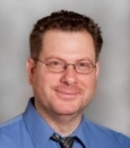
Biography:
Amit Tzur has completed his PhD from the Hebrew University of Jerusalem, Israel and his postdoctoral training from Harvard Medical School, Boston MA. He is an Assistant Professor at the Faculty of Life Sciences, Bar Ilan University, Israel, and a member of the Bar Ilan’s Institute of Nanotechnology and Advanced Materials (BINA) and the Israel Center of Excellence (I-CORE). Amit’s research focuses on physiology and molecular dynamics of proliferating cells. He has published dozens of papers in reputed journals and serving as an editorial board member.
Abstract:
Protein post-translational modifications mediate dynamic cellular processes with broad implications in human disease pathogenesis. There is a large demand for high-throughput technologies supporting posttranslational modifications research, and both mass spectrometry and protein arrays have been successfully utilized for this purpose. Protein arrays override the major limitation of target protein abundance inherently associated with MS analysis. This technology, however, is typically restricted to pre-purified proteins spotted in a fixed composition on chips with limited life-time and functionality. In addition, the chips are expensive and designed for a single use, making complex experiments costprohibitive. Combining microfluidics with in situ protein expression from a cDNA microarray addressed these limitations. Based on this approach, we introduce a modular integrated microfluidic platform for multiple post-translational modifications analysis of freshly synthesized protein arrays (IMPA). The system's potency, specificity and flexibility are demonstrated for tyrosine phosphorylation, autophosphorylation, and ubiquitination in quasicellular environments. Unlimited by design and protein composition, and relying on minute amounts of biological material and cost-effective technology, this unique approach is applicable for a broad range of basic, biomedical and biomarker research.
Dijana Matak-VinkovicÌ
University of Cambridge, UK
Title: Mass Spectrometry Reveals Protein Kinase CK2 High-Order Oligomerization via the Circular and Linear Assembly
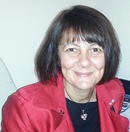
Biography:
Dr Dijana Matak-VinkovicÌ has completed her PhD at the age of 30 years from University of Zagreb (Croatia). She is Senior technical officer and head of the Mass spectrometry service at the Department of Chemistry, University of Cambridge. She has published more than 30 papers in reputed journals.
Abstract:
CK2 is an intrinsically active protein kinase that is crucial for cellular viability and exists as a heterotetrameric holoenzyme (α2/β2) composed of two catalytic α subunits (denoted as CK2α or α) attached to a central, regulatory dimer of β subunits (denoted as CK2β or β2). However, conventional kinase regulatory mechanisms do not apply to CK2, and its mode of regulation remains elusive. Interestingly, CK2 is known to undergo reversible ionic-strength-dependent oligomerization. Furthermore, a regulatory mechanism based on autoinhibitory oligomerization, driven by the inter-holoenzyme electrostatic interactions between the acidic loop of CK2β and the basic substrate-binding regions of CK2α, has been postulated based on the observation of circular trimeric oligomers and linear CK2 assemblies in various crystal structures. Here, native mass spectrometry (MS) was employed to monitor the assembly of oligomeric CK2 species in an ionic-strength-dependent manner. Subsequently, ion mobility spectrometry-MS (IMS-MS) was used to examine the conformational state of the CK2 oligomers. To validate the findings from IMS-MS, hydrogen−deuterium exchange mass spectrometry (HDX-MS) was used to analyze the solution-phase conformation of CK2 oligomers. Through the use of a suite of orthogonal mass spectrometric techniques (native MS, IMS-MS and HDX-MS), it was shown that CK2 undergoes ionic-strength dependent oligomerization to form both circular and linear supramolecular assemblies, thus representing a novel mechanism of regulation for protein kinases. The results were consistent with previously proposed models of CK2 oligomerization derived from X-ray crystallographic analysis and in vivo evidence of CK2 aggregation.
- Applications of Mass Spectrometry | Recent Advances and Development in Mass Spectrometry | Hyphenated Techniques | Spectroscopy
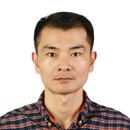
Chair
Yang Pan
University of Science and Technology of China, China
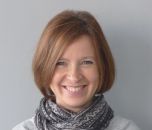
Co-Chair
Joanna Fiedor
AGH-University of Science and Technology, Poland
Session Introduction
Youn Sung Kim
Samsung SDI, Republic of Korea
Title: Reviews of organic-assisted dissolution method to enhance the quantitative Analysis for the determination of hexavalent chromium (Cr(VI)) in polymer
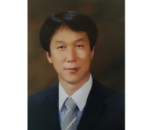
Biography:
Dr. Kim begun his career with Samsung in 1989. He led the analysis team of Samsung Cheil synthetics from 1990 and 2000 and the analysis group of Samsung Cheil Industries from 2001 to 2015. Now, Dr. Kim served in Samsung SDI and in charge of DQC (Development Quality Control) part in automotive division. Dr. Kim work for IEC TC111 WG3 as experts related to develop new method to enhance recovery yield and extraction efficiency of IEC 62321 part.7-2 (hexavalent chromium) since 2009. Dr. Kim holds a doctoral degree in analytical chemistry from the University of Dankook in Korea.
Abstract:
An organic-assisted alkaline extraction method was developed for the determination of hexavalent chromium (Cr(VI)) in polymers. The stabilization of polymer as a pre-step of the alkaline extraction provided good extraction efficiency of Cr(VI)) from the sample. The optimization of the experimental conditions affecting the extraction and UV-Vis spectrophotometric analysis was accomplished by the evaluation the recovery rate of Cr(VI) through the analysis of Cr(VI) in in-house polymer reference materials. Also, we developed THF (Tetrahydrofuran)-assisted alkaline extraction method to determine Cr(VI) in the presence of Sb(III). The developed method suppressed the reduction by the formation of Sb(III)-THF adduct which was indentified by XRD, NMR and MALDI-TOF-MS. When applied to the in-house prepared reference polymers containing Sb(III), the method significantly enhanced the recovery to nearly 95 % from <3 % of the conventional extraction method. Low recovery of Cr(VI) due to the reduction to Cr(III) by Sb(III) has been an issue in the implementation of Regulation of Hazardous Substances (RoHS) directive.
Yang Pan
University of Science and Technology of China, China
Title: On-line photoionization mass spectrometry and its applications on catalysis, pyrolysis and matrices analysis
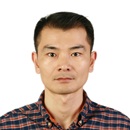
Biography:
Yang Pan has completed his PhD at the age of 30 years from University of Science and Technology of China. He is an associated professor of University of Science and Technology of China (USTC), and the director of the Mass Spectrometry Division of National Synchrotron Radiation Laboratory (NSRL) focusing on the development of photoionization mass spectrometric techniques. He has published more than 50 papers in reputed journals.
Abstract:
Photoionisation mass spectrometry (PIMS) has become a prominent technique for many years. Owing to its favorable characteristics (i.e., softness, no polarity discrimination, and reduced ion suppression) in contrast with other available ionization sources such as electrospray ionization, PIMS has been widely adopted by scientists for many mass spectrometric applications. Recently, PIMS has been applied for the online analysis of the chemical components and their highly dynamic processes during pyrolysis and combustion of various fuels. Compared with traditional “hard” electron ionization methods for the gaseous components analysis, photoionization produces little or no fragments, making the identiï¬cation and interpretation of complex ingredients in real-time possible. In this work, both commercial available discharge Kr lamp and synchrotron radiation with high brightness and wide energy spectrum were used as light sources for on-line PIMS studies, at the mass spectrometric end station of National Synchrotron Radiation Laboratory (NSRL) of China. Our work are mainly focused on three aspects: (1) heterogeneous catalytic reactions, such as Fischer-Tropsch synthesis and oxidative coupling of methane. (2) pyrolysis/combustion of biomass, municipal waste polymers, and cigarettes. (3) fast qualitative and quantitative analysis of chemicals in complex matrices, such as food, soil, and natural products.
Violetta V. Milyaeva
National Research Nuclear University MEPHI, Russia
Title: Compact laser mass spectrometer for techonological analysis of solids

Biography:
Abstract:
The new design of compact TOF mass spectrometer with laser ion source based on the wedge-shaped reflector is presented. For achievement of the best results during designing the instrument key problems are solved in two directions: 1) generation of ions; 2) separation by masses. Throughout the generation of laser plasma the differences in degree of ionization elements take place. This problem can be overcomed by choosing raised laser power density, that provides full ionization of all sample components, that are evaporated. Analytical signal is formed like a summing of single-charged and multi-charged ions. For levelling negative effects of wide spread by energy of ions the TOF analyzer with wedge-shaped reflector and integration mass spectrums in the total energy range is used. The proposed instrument is effective for analysis of solids and has extremely small overall dimensions. The detail project of mass spectrometer is analyzed, the key units are assessed. The competitive abilities in compare to spectroscopic analyzers are discussing.
Danuta Barałkiewicz
Adam Mickiewicz University in Poznań, Poland
Title: Multielemental speciation analysis of five toxic species: As(III), As(V), Cr(VI), Sb (III) and Sb(V) in drinking water samples by advanced hyphenated technique HPLC/ICP-DRC-MS
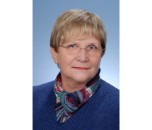
Biography:
Danuta Barałkiewicz teaches analytical chemistry at the Adam Mickiewicz University in Poznań and is the Head of the Department for Trace Elements Analysis by Spectroscopic Methods. She is an elected member of the Committee of Analytical Chemistry of the Polish Academy of Science. In her research, she applies advanced analytical techniques such as ICP-MS, HPLC/ICP-MS and LA-ICP-MS. She cooperates with representatives of various disciplines who are interested in environment, food, biology and medicine. She has been active in introducing metrology and chemometrics in analytical chemistry.
Abstract:
Multielemental determination of five toxic species: As(III), As(V), Cr(VI), Sb (III) and Sb(V) in drinking water samples using high performance liquid chromatography hyphenated to inductively coupled plasma mass spectrometry (HHPLC/ICP-DRC-MS)technique was developed. Optimization of the detection and separation conditions was conducted. Dynamic reaction cell (DRC) with oxygen as reaction gas was involved in the experiments. Obtained analytical signals for species were symmetrical, as studied by anion-exchange chromatography. Applied mobile phase consisted of 3 mM of EDTANa2 and 36 mM of ammonium nitrate. Full separation of species was achieved in 15 min with use of gradient elution program. Detailed validation of analytical procedure proved the reliability of analytical measurement. Obtained recoveries confirmed the lack of interferences’ influence on analytical signals as their values were in the range of 91%-110%. The applicability of the proposed procedure was tested on drinking water samples characterized by mineralization up to 7390 mg L-1.
Anissa Bendjeriou-Sedjerari
King Abdullah University of Science and Technology, Saudi Arabia
Title: “Catalysis by Designâ€: From Conventional Solid State NMR Spectroscopy to the Dynamic Nuclear Polarization Surface Enhanced Spectroscopy (DNP-SENS) - The Success Story of Single Site Well-Defined Heterogeneous Catalysts
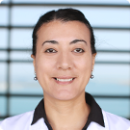
Biography:
Dr. Anissa Bendjeriou-Sedjerari, Research Scientist at KAUST Catalysis Center (KCC, Director Pr. Jean-Marie Basset) was awarded a PhD in Materials Science from the University of Science and Technology of Montpellier (FRANCE) followed by postdoc positions at CALTECH and Ecole Normale Superieure de Lyon. Her main topics are the Designs and Characterizations of Heterogeneous Catalysts (FT-IR, Solid State NMR Spectroscopy, DNP-SENS...) applied to the C-H/C-C cleavage and activation (alkanes/olefins metathesis), CO2 activation etc. Her broad research interests have been published in numerous international journals. Besides, she is an active member of the MEPEC (Middle East Process Engineering Conference and Exhibition).
Abstract:
Heterogeneous catalysis is ubiquitous today and is central to solving many of the key problems facing chemistry including energy and environmental issues that contribute to a sustainable world. However, the main drawback is due to the multiplicity of active sites in terms of surface and bulk structure which makes it difficult to reflect the intrinsic efficiency of catalysts. The concept of “Catalysis by Design” requires the establishment of structure-activity relationship.[1] Surface Organometallic Chemistry (SOMC) thanks to its solid track record, provides a single-site strategy by creating well-defined surface organometallic fragments (SOMF) that are presumed to be part of the catalytic cycle. [1-3] To achieve this goal, the surface complexes need to be unambiguously characterized by advanced multi-dimensional solid-state NMR spectroscopy.[1-5] Recently, the sensitivity limitations encountered with the conventional solid state NMR spectroscopy have been overcome by the emergence of Dynamic Nuclear Polarization Surface Enhanced Spectroscopy (DNP-SENS) that requires the use of polarizing agent (radical nitroxide). [6-7] DNP-SENS can be now successfully applied to characterize highly sensitive SOMF in reasonable acquisition time. [8] By combining these essential and powerful spectroscopic tools, structure–activity relationships can be highlighted.
Joanna Fiedor
AGH-University of Science and Technology, Poland
Title: Total reflection X-ray fluorescence spectrometry (TXRF) as a convenient tool for quantification of biological samples
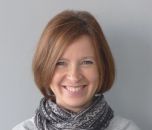
Biography:
Joanna Fiedor received her Ph.D. degree in Biochemistry at the age of 33 from the Jagiellonian University, Kraków, Poland. From 1997-1999 she worked at the Ludwig- Maximilians University (LMU) in Munich, Germany, and in 2002 at the Kwansei Gakuin University, Sanda, Japan. Currently, she is an Assistant Professor at the AGH-University of Science and Technology, Kraków, Poland. Her research interests are focused on natural biocompounds in relation to human health.
Abstract:
Total reflection X-ray fluorescence spectrometry (TXRF) is one of the well-established spectroscopic techniques used for elemental profiling of variety of samples. Among its major advantages the extension of the detection limit to one part per billion, simplicity of sample preparation along with the need of only 10-6 to 10-9 g of the material, and, eventually versatility of application should be highlighted. Apart from a number of non-biological studies, TXRF has been successfully used in medical, pharmaceutical, nutritional and other biologically-derived quantification analyses. However, not much has been done on bacterial systems. One of the few examples might be the examination of the ionome of phototrophic bacteria. Purple non-sulphur bacteria constitute a unique group of “photosynthetic” organisms capable of adjusting their metabolism in response to alteration of environmental growth conditions (light intensity, oxygen pressure). Recently, purple bacteria have attracted considerable attention due to their potential in a range of scientific and industrial applications. In view of the lack of consistent and systematic information on their microelemental content, the aims of the recent study were to qualify and quantify trace elements present in intact cells, bacterial phototrophic membranes and selected photosynthetic structures as well as to gain information on their distribution and mutual correlation in response to change in oxygen growth conditions. Finally, usefulness and vast analytical potential of TXRF was verified and confirmed.
- Applications of Mass Spectrometry | Recent Advances and Development in Mass Spectrometry | Hyphenated Techniques
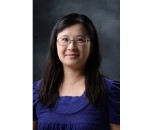
Chair
Yi-Ting Chen
Chang Gung University, Taiwan
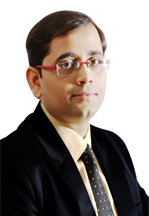
Co-Chair
Sanjeeva Srivastava
Indian Institute of Technology Bombay, India
Session Introduction
Alberto Fontana
Janssen Research & Development, Spain
Title: Automated Open-Access Liquid Chromatography High Resolution Mass Spectrometry to Support Medicinal Chemistry Projects
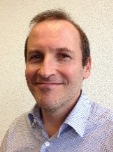
Biography:
Alberto Fontana completed his Master of Science in Chemistry from University Autónoma of Madrid. He joined Janssen Research & Development (Spain) in 1998. Since 2001, he works as Scientist in the Analytical Sciences Team. He is focused on analytical LCMS, GCMS and on preparative LC, developing new methodology for Medicinal Chemistry groups, mainly within Neuroscience area. He is currently doing his PhD studies at University of Alcalá de Henares, Madrid. He is the main author of 1 publication and co-author of another 5 papers. He has presented several posters with his research work on LCMS at different international congresses.
Abstract:
The need of a continuous productivity increase in the pharmaceutical industry motivated the development of new Open-Access tools on many analytical techniques [1-5]. On LC, these platforms have been commonly used with low-resolution MS detectors while they have been reported with very limited automation on high-resolution MS spectrometers [6]. Typically, samples with concentration ranges around 0.1 mg/mL are prepared by medicinal chemists for reaction monitoring and for UV purity assessment. Together with the evolution of the instrumentation, new software packages to automatically process HRMS data have appeared [7, 8]. These systems are typically run by specialists and developed for biological samples with compounds in concentrations of µg/mL range. In this work, the development of a Fully Automated Open-Access methodology on a UHPLC-DAD/ESI-QTOF system is reported, being applied to medicinal chemistry discovery projects from Janssen R&D. With the first MS conditions applied, accuracies < ±1 mDa were not achieved in 20-30% of the cases in ESI+ due to oversaturation. After optimization of MS conditions, a new ESI+ method was implemented. This method has been used by chemists for more than 2.000 compounds from structurally diverse chemical series with a success >98% in exact mass determinations. For the other 2 % of the samples, specific conditions are used. Upon training, chemists log-in samples and interpret the results by themselves in 90-95 % of the cases. To our knowledge, this the first time that this Full Automation has been achieved for an Open-Access LC-DAD-HRMS platform developed for end-users in a pharmaceutical environment.
Ivo Leito
University of Tartu, Estonia
Title: Validation of liquid chromatography–mass spectrometry methods
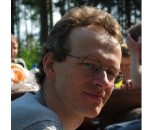
Biography:
Ivo Leito works as professor of analytical chemistry at Institute of Chemistry, University of Tartu. His main research directions are on the borderline of analytical chemistry with other disciplines: chemistry of superacids and superbases; metrology and quality assurance in chemistry (MiC); liquid chromatography and mass spectrometry; sensors and their metrological characterization; applications of instrumental
Abstract:
The presentation gives an overview of the recently published two-part tutorial review on validation of liquid chromatography–mass spectrometry methods.The tutorial review presents the state of the art of method validation in liquid chromatography mass spectrometry (LC–MS), especially with electrospray ionization (LC-ESI-MS), and discuss specific issues that arise with MS (and MS-MS) detection (i.e. LC-MS-MS) in LC (as opposed to the “conventional” detectors). The review addresses and compares all the major validation guidelines published by international organizations: ICH, IUPAC, AOAC, FDA, EMA (EMEA), Eurachem, SANCO, NordVal and the European Commission Decision 2002/657/EC. With every performance characteristic the tutorial review briefly compares the recommendations of the guidelines, to a large extent on the basis of the experience of the authors. All important method performance characteristics are discussed. With each of them its essence and terminology are addressed, the current status of how to treat it is reviewed and recommendations are given, how to determine it, specifically in the case of LC–MS methods. A possible step by step validation plan specifically suitable Tutorial review on validation of liquid chromatography–mass spectrometry methods: Part I. A. Kruve, R. Rebane, K. Kipper, M.-L. Oldekop, H. Evard, K. Herodes, P. Ravio, I. Leito. Anal. Chim. Acta 2015, 870, 29-44. Tutorial review on validation of liquid chromatography–mass spectrometry methods: Part II. A. Kruve, R. Rebane, K. Kipper, M.-L. Oldekop, H. Evard, K. Herodes, P. Ravio, I. Leito. Anal. Chim. Acta 2015, 870, 8-28.
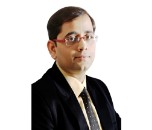
Biography:
Dr. Sanjeeva Srivastava is Associate Professor and group leader of proteomics laboratory at Indian Institute of Technology, Bombay. He obtained his Ph.D from the University of Alberta and post-doc from the Harvard Medical School in the area of proteomics, stress physiology and has specialized expertise in applications of data enabled sciences in global health, developing country and resource limited settings. Current research in this group centers on biomarker and drug target discovery and deciphering the protein interaction networks in complex human diseases (gliomas) and infectious diseases (malaria) using high throughput proteomics, protein microarrays and mass spectrometry. Dr. Srivastava is an active contributor to global proteomics science and innovation. He serves on the Council of Human Proteome Organization (HUPO) and Executive Committee of Proteomics Society, India (PSI). He had organized two successful conferences – PSI-2014 and Targeted Proteomics International Symposium in 2015. He has published three special issues as editor, “Proteomics in India” for Journal of Proteomics; “Proteomics Research in India” for Nature India and “Protein Arrays” for Proteomics. Having extensive teaching experience at IITB and experience of conducting proteomics courses at CSHL provided him with the background to increase proteomics education for the global community. One of his special contributions has been the development of e-learning resources (MOOC, Virtual Proteomics Laboratory). He continues to develop proteomics & omics science and innovation together with and for the next generation of keen students, researchers and the research and education commons in Asia and global OMICS community.
Abstract:
Glioma brain tumors arise from glial cells. Glioblastoma multiforme (GBM) is the most common and most malignant of the glial tumors. We have performed a comprehensive iTRAQ-based quantitative tissue proteomic analysis of gliomas and compared it with different controls, including other cancer samples as disease control to identify differentially expressed proteins in different groups of brain tumors. The iTRAQ-labeled peptides were fractionated using off-gel fractionation followed by LC-MS/MS analysis. Various metabolic pathways including fructose & mannose metabolism, spliceosome and aminoacid metabolism were found to be altered in GBM, medulloblastoma and meningiomas respectively. Proteins like CRYAB, GFAP, BASP1 and SNCA were found to be significantly altered in gliomas, where as VIM, RABP1, ANXA2 and SBP1 showed differential expression in meningiomas. Protein biomarkers identified from discovery-phase were further validated using MRM-based quantitative approach. Targeted proteomics data was analyzed using Skyline and for each protein a minimum of 3 peptides with at least 3 corresponding transitions were used for quantification. The in-solution digested peptides from the tissue lysates were run on triple quadrupole mass spectrometry. This comprehensive mass spectrometry based quantitative and targeted proteomic profiling of brain tumors identified few potential markers and provided insights into tumor pathophsyiology.
Yi-Ting Chen
Chang Gung University, Taiwan
Title: Clinical proteomics for biomarker discovery and verification of bladder cancer
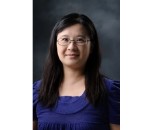
Biography:
Dr. Yi-Ting Chen received her Ph.D. degree in Department of Chemistry from the National Tsing Hua University, Taiwan. From September 2007, she worked at Molecular Medicine Research Center of Chang Gung University (CGU) with focusing on urinary protein biomarker discovery. Being an assistant professor in Department of Biomedical Sciences of CGU since 2013, Dr. Chen’s research interests focus on proteomics, metabolomics and systems biology of urological diseases and advanced method development for detection of disease-associated biomolecules, primarily based on mass spectrometry. Dr. Chen participates in several integrated research programs and serves as an investigator for translational application of omics studies.
Abstract:
Bladder cancer is potentially lethal and is a costliest urological malignancy to manage. Base on the morbidity and mortality, diagnosis and treatment of the cancer are important issues for the better clinical practice. To discover potential biomarkers of bladder cancer, we employed a strategy combining isotopic labeling and LC-MS/MS analysis to profile proteomic changes in secretome, clinical urine, urine microparticles, and fresh-frozen bladder tumor specimens. Seven differentially-expressed proteins have been selected as potential biomarker candidates for verification by immuno-assays or multiple-reaction-monitoring MS in more clinical specimens. Overall, the urinary concentrations of the classical plasma proteins or acute phase proteins show the best AUC values for discrimination between age-matched control and bladder cancer patients. Proteomic analysis of urinary microparticles reveals strong association of TACSTD2 with bladder cancer. TAGLN2 shows the most significant overexpression in bladder cancer tissues and might be a useful molecular tumor marker for evaluating bladder cancer lymph node metastasis. Urinary TAGLN2 also represents a potential biomarker for non-invasive screening of bladder cancer. Our findings highlight the value of integration of multiple clinical proteomes in providing valuable information for protein origin, specificity and application for future validation studies of potential biomarkers in bladder carcinoma.
Dinkar Sahal
International Centre for Genetic Engineering and Biotechnology (ICGEB), India
Title: Explorations into isomeric peptides of opposite directionalities by tandem mass spectrometry
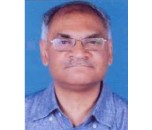
Biography:
Dinkar Sahal’s laboratory epitomizes a vibrant atmosphere for both design and discovery of novel antibiotic peptides and antimalarial drugs. The foundations for understanding the mechanisms of action and discovery of the origins of potency, synergy among antibiotics and broad spectrum of action of antibiotic peptides has been laid in his laboratory. Likewise discovery of novel drugs against drug resistant malaria is a major passion of his laboratory. He has published more than 75 papers in reputed journals and has been serving as a Reviewer and an Editorial Board Member of different journals.
Abstract:
Only one and not the other, ‘retro’ direction that every protein sequence takes is a curious evolutionary question for both biology and mass spectrometric analysis of proteomes. Further impetus on retro sequences came from bioinformatic analysis of proteins revealing the presence of unique inverted peptide sequence pairs of lengths 5-12 and 18 amino acid residues accommodated in natural proteins [Sridhar&Guruprasad 2014]. Consequently we decided to address this question by MS/MS using ribonuclease A derived S peptide: K1ETAAAKFERQHMDSS16 vs Retro S (RS) peptide: S1SDMHQREFKAAATEK16 as models. Collision induced dissociation was carried out within linear trap quadrupole at different collision energies (CEs), on [M+2H]2+ precursor ions (m/z 918.44) produced by electrospray ionization of the two peptides and product ion analysis was by orbitrap. Degree of fragmentation of each of the fifteen peptide bonds of peptide molecular ions was determined by estimating relative abundance of b- and y- ions, with reference to precursor ions, at every CE. The greater fragility of RS peptide than S peptide was evident from determinations of minimum CE, at which, the precursor ion population is 50% (CE50) or 0% of the initial populations (CE*). The values of CE50 and (CE*) were 23.6(30) and 22.6(28) for S and RS peptides, respectively. In view of the conformational propensity of S peptide to be more structured than RS peptide [Pal-Bhowmick et al. 2007), our data suggest that solution structures of these peptides may be preserved also in gas phase. This augurs well for application of high-resolution CID to probe conformational properties of peptides in gas phase.
- Applications of Mass Spectrometry | Proteomics and its applications
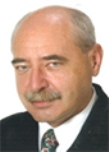
Chair
Marek M Kowalczuk
University of Wolverhampton, UK
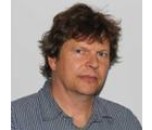
Co-Chair
Kay Ohlendieck
Maynooth University, Ireland
Session Introduction
Jindra Valentová
Comenius University in Bratislava, Slovakia
Title: Identification of designer drugs by real time-mass spectrometry (DART-MS)
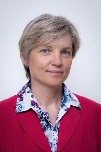
Biography:
Jindra Valentova, PhD is associate professor and vice-dean at Faculty of Pharmacy, Comenius University in Bratislava. Her research interest is focused on bioanalysis of new pharmaceuticals and illicit drugs using modern mass spectrometry methods. She is leader of numerous research domestic and international projects and she has published more than 50 papers in reputed journals.
Abstract:
Over the past decade, the availability of new psychoactive substances on European illicit drug market has increased considerably. These new synthetic compounds often termed „designer drugs“ or „legal highs“ exhibit modified molecular structure as compared to the established illicit substances. Synthetic cannabinoids and cathinones make up the largest groups of designer drugs.They were developed with the intention of mimicking the effect of traditional illicit drugs of abuse and are aimed at circumventing the laws regulating sale and use of controlled substances. Wide structure diversity limits the possibilities of their detection with conventional colour tests or immunoassays. Great effort is undergoing to develop new methods for identification and quantification of these modern drugs, in particular new mass spectrometry techniques. DART (Direct Analysis in Real Time) mass spectrometry is an ambient ionization method which allows direct analysis of all types of samples (solid, gas, liquid) without the need for any sample preparation. In our work, the usefulness of DART ion source in combination with the high-resolution ORBITRAP mass spectrometer is demonstrated for screening of cathinones and synthetic cannabinoids. Several different cannabinoids in complex herbal matrices were detected. The analysis enabled rapid detection of these substances without the necessity of pre-treatment of the samples. This method could be also used for fast and reliable identification of contamination of e.g. money notes touched with fingers stained by illicit drugs.
Kay Ohlendieck
National University of Ireland, Ireland
Title: Mass spectrometry-based proteomic profiling of muscular dystrophy
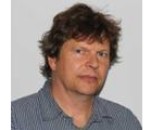
Biography:
Kay Ohlendieck has an undergraduate degree in Biology from the University of Konstanz, Germany (1985), a PhD in Biochemistry from University College Cork, Ireland (1989) and a D.Sc. in Muscle Biology from University College Dublin, Ireland (2011). He has worked as a postdoctoral associate at the University of Iowa, Iowa City and at the State University of New York, Stony Brook, as well as a Lecturer in the Department of Pharmacology, University College Dublin (1995-2001). Since 2002, he is Professor & Chair of Biology at Maynooth University, National University of Ireland, and his research focuses on skeletal muscle proteomics.
Abstract:
Mass spectrometry-based proteomics is a key bioanalytical technique for the comparative analysis of pathological specimens. In the field of neuromuscular disorders, both two-dimensional gel electrophoresis and liquid chromatography have been employed for the large-scale separation of distinct protein populations prior to mass spectrometric analysis. Our laboratory has focused on the systematic profiling of animal models of Duchenne muscular dystrophy, a devastating muscle wasting disease of early childhood. X-linked muscular dystrophy is due to primary abnormalities in the Dmd gene that encodes the membrane cytoskeletal protein dystrophin. For the mass spectrometric identification of new biomarker candidates of dystrophinopathy, we used two complementary methods, fluorescence two-dimensional difference in-gel electrophoresis and liquid chromatography in combination with label-free mass spectrometry. Novel skeletal muscle-associated disease markers of fiber degeneration, myofibrosis and sterile inflammation are involved in the excitation-contraction-relaxation cycle, the extracellular matrix, the cytoskeleton, energy metabolism and cellular stress. In addition, tissue samples from the dystrophic heart and the central nervous system, as well as serum, were analysed by proteomics. Independent verification studies were carried out by immunoblotting and immunofluorescence microscopy. In the future, the newly established proteomic biomarker candidates of X-linked muscular dystrophy may be useful for improving diagnostic, prognostic and therapy-monitoring approaches, as well as the identification of new therapeutic targets down-stream of the primary abnormalities in the cytoskeletal network.
Steven J. Bark
University of Houston, USA
Title: A Mass Spectrometry Perspective on Dormancy and Antibiotic Tolerance in Bacteria
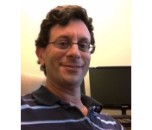
Biography:
Steven J. Bark obtained his Ph.D. from The Scripps Research Institute (TSRI) with Professor Stephen B.H. Kent. He has served as the Director of the Center for Protein Sciences at TSRI before joining University of California San Diego as an Associate Project Scientist, Adjunct Assistant Professor, and Member of the Clinical and Translational Sciences Institute. Dr. Bark is currently an Assistant Professor in the Department of Biology and Biochemistry at University of Houston. His research program applies mass spectrometry, analytical chemistry, and systems biology to understand how dormancy stress responses regulate bacterial pathogenesis and evasion of antibiotics.
Abstract:
Dormancy is a protective state where diverse bacteria including M. tuberculosis, S. aureus, T. pallidum (syphilis), and B. burgdorferi (Lyme Disease) curtail metabolic activity to survive severe external stresses including antibiotics. Dormancy appears to consist of a continuum of interrelated states including viable but nonculturable (VBNC) and persistence states implicated in antibiotic tolerance, reemergence from latent infections, and even quorum sensing and biofilm formation. To eliminate dormancy as a mechanism for antibiotic tolerance, we must bridge a critical gap in current knowledge; our limited understanding of the protein mechanisms regulating persistence and VBNC dormancy states. To elucidate some of these mechanisms, we have queried the VBNC state of Micrococcus luteus NCTC 2665 (MI-2665) by quantitative proteomics combining gel electrophoresis, HPLC and tandem mass spectrometry. MI-2665 is well suited for these studies being a non-pathogenic actinobacterium containing a small 2.5 Mb, high GC-content genome and exhibiting a well-defined VBNC state induced by nutrient deprivation. The MI-2665 VBNC state demonstrated a loss of protein diversity accompanied by upregulation of 18 proteins that are conserved across Actinobacteria, of which 14 have not been previously identified. In this talk, I will discuss these proteins and their implication of an anaplerotic strategy in VBNC transition exploiting the glyoxylate shunt, redox and amino acid metabolism, and ribosomal regulation. These results indicate a VBNC protein-level signature and suggest the viability of MI-2665 as model for dissecting the protein mechanisms underlying this stress response. I will also discuss the broader implications of our results for understanding protein regulation of dormancy and for therapeutic targeting of dormant bacterial infections.
Luis F. Guido
University of Porto, Portugal
Title: Detection and quantification of acrylamide in cookies by LC-ESI-Orbitrap
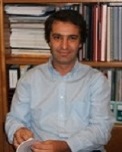
Biography:
Luis Guido has completed his PhD in Analytical Chemistry from University of Porto (2004). He is Assistant Professor at the Faculty of Sciences, University of Porto, since 2004. He has published more than 40 papers in SCI indexed journals and 2 book chapters. He is reviewer for more than 10 peer-reviewed journals and editorial board member of several journals.
Abstract:
Acrylamide (AA) is a molecule which is easily formed in food rich in carbohydrates, such as cookies, and breakfast cereal, at temperatures above 120 °C. This discovery caused some alarm and immediately enough pressure on the food industry in order to conduct research on the acrylamide content in their food products. Thus, it is eminent the need to detect and quantify the acrylamide content in the final products of food industry, in order to delineate the limits and mitigation strategies. In this context, the main purpose of this project was to optimize and apply a method of analysis and quantification of acrylamide for specific food matrices of cookies, by using LC-MS/MS with electrospray ionization and Orbitrap as mass analyser. The developed analytical method showed good repeatability, with a coefficient of variation of 11.1% (254.1 to 292.0 μg/kg). Results for AA concentration obtained vary between 323.7 and 2056.1 μg/kg. During cooking it was observed an increase in acrylamide concentration, as well as between samples taken from different areas of the baking belt. Statistical processing of data was performed in order to compare the acrylamide levels with several production parameters, such as time/cooking temperature, placement on the cooking conveyor belt, color and moisture for different cookies. The composition of the raw materials of the cookies was statistically the most correlated factor with the AA content when considered all samples. The statistical treatment presented herein enables an important prediction of factors influencing AA formation in cookies for development of mitigation strategies.

Biography:
Luisa Mattoli has completed her PhD at the age of 29 years from University of Perugia (Italy). She is medicinal chemistry pharmacist, scientific head of the Aboca SpA Phytochemistry Research Area. She has published 19 papers in reputed journals and serving as an editorial board member of repute. She is member of the executive board of the Mass Spectrometry Division of the Italian Chemical Society.
Abstract:
Natural products in medicine have a long tradition of use all over the world. Today it is mandatory to assure their efficacy and safety through standardized processes (following Good Manufacturing Practices, GMPs) from the raw material to the formulated products. It is obvious that together with rigorous process controls, an adequate analytical policy can help to ensure the production chain’s quality. Mass Spectrometry plays a relevant role as by using HRLC-MS, GC-MS, IRGC-MS, ICP-MS it is possible to characterize globally natural complex products. As the technology improved, today the research results can be transferred in the real world of the quality control of industrial production facilities. Untargeted metabolomic analysis by means of ESI-MS methods with multivariate statistical analysis can be an effective tool to check batch compliance, assuring constancy on the therapeutic effect. Targeted metabolomic analysis, by using a “in house” compound library (Aboca was able to build up a library of about 1000 standards) through HRLC-MS and GC-MS methods is useful to identify and quantify as much compounds as possible, achieving the correct compositional knowledge of complex natural products. Metallomic analysis by ICP-MS (also coupled with HPLC or ionic chromatograph) is essential, as inorganic salts or organometallic complexes are naturally presents and contribute to give the characteristic bioavailability to natural complex products. In conclusion, as it is known that all the compounds present in natural complex products contributes to their multi-targeted action and consequently to their specific effect, here it is presented an holistic approach to get a comprehensive panorama of natural complex product’s composition, useful in routine quality control: identification test and batch release, stability monitoring program, check of production process robustness.
Alexandra Maria Moita Antunes
Instituto Superior Técnico / Centro de QuÃmica Estrutural, Portugal
Title: Mass spectrometry application to molecular toxicology and biomarker discovery: carcinogen-modified histones
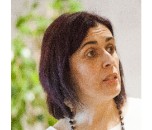
Biography:
Alexandra M.M. Antunes has completed his PhD at the age of 29 years from Universidade Nova de Lisboa (Portugal). She is Chemical Toxicologist, Principal Researcher of a team focusing on the use of covalent adducts formed with proteins (adductomics), directed towards the development of early biomarkers of chemical carcinogens and risk assessment of drugs used in chronic therapies, at Instituto Superior Técnico (Portugal). She has published more than 40 papers in reputed journals.
Abstract:
Human exposure to chemical agents of drug, dietary, occupational or environmental exposure is a main public health concern, as a major cause of cancer. Despite, most of the chemically-induced cancers could be averted upon preventive measures, encompassing accurate monitoring and regulatory action, only a little over 100 compounds are currently classified as “carcinogenic to humans” by the International “Agency for Research on Cancer”. This is mainly a reflection of the difficulty in accurately assessing human exposure and classifying the carcinogenic potential of chemical agents. Therefore, more accurate and earlier compound-specific biomarkers of chemical carcinogenesis are urgently needed. Using the food contaminant and rodent carcinogen furan as model, the first evidence for in vivo occurrence of carcinogen-modified histones were recently provided by mass spectrometry-based methodologies. A furan-derived adduct was identified in liver histone 2B of rats treated with tumorigenic doses of furan. Taking into consideration that the formation of furan-derived DNA adducts is yet to be provided, furan-modified histone 2B may provide a toxicologically relevant furan-specific biomarker of carcinogenicity. Importantly, this adduct was identified prior to epigenetic modifications, which is consistent with the occurrence of carcinogen-modified histones at early stages of exposure. Recent advances on the detection of histone adducts with other chemical carcinogens suggest that these modifications are general in scope. Consequently, the covalent modification of histones by chemical carcinogens or their metabolites may provide relevant early compound-specific biomarkers of cancer. This is anticipated to be useful for accurate risk assessments, allowing efficient regulatory measures, and ultimately leading to decreased incidence of chemically-induced cancers.
Ana R. Ribeiro
Universidade do Porto, Portugal
Title: Eco-friendly UHPLC-MS/MS method for analysis of multi-class micropollutants in drinking water
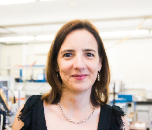
Biography:
Organic micropollutants are continuously introduced into the environment, being not completely removed during wastewater treatment and found at trace concentrations (ng/L─µg/L) in receiving water bodies, which might be sources for drinking water (DW) supply, bringing possible consequences for public health [1]. In the particular case of the European Union (EU), some regulations on water pollution have been published in the last years, namely Directive 39/2013/EU [2] identifying 45 priority substances (PSs) to meet the protection of the aquatic compartments and the human health. More recently, a Watch List of contaminants of emerging concern (CECs) for EU monitoring in surface water bodies was defined in the Decision 2015/495/EU [3]. An eco-friendly analytical method based on offline solid phase extraction followed by ultra-high-performance liquid chromatography coupled to tandem mass spectrometry (SPE-UHPLC-MS/MS) was developed for the simultaneous determination of 21 pollutants in DW: 7 pesticides, 1 industrial compound, 12 pharmaceuticals and 1 metabolite, some of them defined as PSs in the Directive 2013/39/EU or CECs included in the recent Watch List of Decision 2015/495/EU. A widespread occurrence was verified at ng/L levels in DW samples from different sources (tap, wells and fountains) and locations of North of Portugal, but the estimated hazard quotients suggested no adverse effects to humans.
Abstract:
Dr Ana Rita Ribeiro has a strong expertise in analytical chemistry and environmental monitoring and policy, and relevant skills in the field of water treatment by advanced processes. She initiated a new research line at Laboratory of Separation and Reaction Engineering - Laboratory of Catalysis and Materials (LSRE-LCM), Faculdade de Engenharia da Universidade do Porto, implementing analytical methodologies to determine organic pollutants at residual concentrations in environmental samples using UHPLC-MS/MS to identify transformation products. She is author/co-author of 30 original publications, including peer-reviewed scientific journals and books, as well as the 45 oral and poster communications in both national and international conferences.
- Fundamentals of Mass Spectrometry | Ionization Techniques

Chair
K W Michael Siu
University of Windsor, Canada
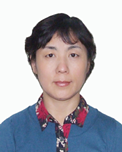
Co-Chair
Xinhua Guo
Jilin University, China
Session Introduction
Chi-Kit Andy Siu
City University of Hong Kong, China
Title: Discovery and mechanistic studies of an unusual remote radical-induced side-chain loss from tyrosine-containing peptide radical cations in the gas phase
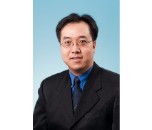
Biography:
Chi-Kit Andy Siu received his PhD in Computational Chemistry from Chinese University of Hong Kong in 2003. After being a Postdoctoral Fellow at TU Munich (2003 – 2005, supported by Alexander von Humboldt Foundation) and York University (2005 – 2009), he joined City University of Hong Kong in 2009 and has become an Associate Professor since 2015. Dr. Siu is interested in the fundamentals of gas-phase ion chemistry, including structures of ions and their reaction mechanisms, thermodynamics, kinetics and dynamics at the electronic, atomic and molecular levels. He has published over 50 research articles on gas-phase ion chemistry.
Abstract:
Tyrosine is a constituent amino-acid residue of proteins. Because of the relatively low ionization energy of the aromatic phenol ring in its side chain, tyrosine is prone to be oxidized. The resulting one-electron oxidized tyrosyl radical is an important intermediate in many redox reactions of protein radicals. The intrinsic chemical properties of tyrosyl radical can be revealed from the fragmentations of tyrosine-containing peptide radical cations in the gas phase. The peptide fragments also provides invaluable sequence information that can be applied in mass spectrometry-based protein analyses. Upon ionization in the gas phase, a variety of tyrosyl radical tautomers can be generated and subsequently undergo radical-induced bond cleavages normally in the vicinity of the tyrosine residue. We have recently discovered an unusual radical-induced bond cleavage at the side chain of an amino-acid residue remote from the tyrosine. The plausible reaction mechanisms at the atomic and electronic levels have been examined experimentally using collision-induced dissociation for peptide models and their isotope-labeled and chemical derivatives and theoretically using density functional theory simulations.
Ivan K. Chu
University of Hong Kong, China
Title: Isomerization versus dissociation of phenylalanylglycyltryptophan radical cations
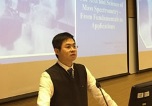
Biography:
Professor Chu’s group has been innovative in advancing the understanding of radical-mediated protein oxidation. Their pioneering studies of the molecular mechanisms of pathological processes under oxidative stress have extended to biophysical, bioanalytical, and biomedical applications and drug discovery. They have made many inroads implementing and applying new multidimensional liquid chromatography/mass spectrometric hardware for novel research purposes. A faculty member in the Department of Chemistry at the University of Hong Kong since 2002, Chu is an editorial board member for the Journal of the American Society for Mass Spectrometry, Journal of Mass Spectrometry, Mass Spectrometry Letters. His research into biological mass spectrometry has crystallized over 100 refereed articles.
Abstract:
Herein we report the propensity of radical migration and hence isomerization, or there lack of, in four tripeptide structures (FGW) that differ only in their initial radical locations: the π-system of Trp, the indole nitrogen, the α-carbon of Gly, and C-4 of the Phe ring. These radicals were generated by well-defined means and examined using tandem mass spectrometry. The π- and the N-radical centered on Trp interconvert after collisional activation; by contrast, the α-radical and the ζ-radical (on Phe) retain their distinctness even after collisional activation. Density functional calculations reveal a relatively low (31.1 kcal mol-1) barrier against interconversion between the π- and the N-radical, while interconversion between the α-radical and the ζ-radical exhibits much higher barriers, and these radicals will dissociate before they can interconvert. This study illustrates the intricate balance between radical migration and dissociation as exhibited by the four isomeric tripeptide radicals.
A.T. Hasan
American University of Sharjah, UAE
Title: Molecular ion collision chemistry in CH4 ionization and dissociation
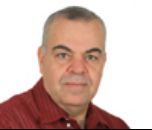
Biography:
Abstract:
Although the phenomena of atomic collisions have been the subject of extensive research, much more can be learned about these complex and variant processes. Further experimental and theoretical studies of ion-molecule collision will provide a better understanding of the atomic structure, collision phenomena, and molecular ion formation. The use of the 90o hemispheric electrostatic high resolution analyzer [1] in conjunction with time of flight techniques allowed us to identify the various events associated with charged ion- molecular collision.
Xiaodong Zhang
The Australian National University, Australia
Title: Helix MC Plus high resolution noble gas mass spectrometer at the Australian National University
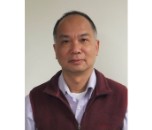
Biography:
Xiaodong Zhang completed his PhD in physics from La Trobe University in 1994. He has been working in noble gas mass spectrometry for 20 years. He is currently working in the noble gas laboratory at the Research School of Earth Sciences in the Australian National University. He has expertise in mass spectrometry, ultrahigh vacuum technology and laboratory automation.
Abstract:
The Helix MC Plus noble gas mass spectrometer manufactured by Thermo Fisher Scientific is a 350 mm sector, 120 degree, extended geometry, high resolution, multi-collector mass spectrometer for simultaneous acquisition of noble gas isotopes. The Helix MC Plus installed at the Australian National University (ANU) is unique in that it is equipped with three high resolution collectors with 0.3 mm defining slits on the axial (Ax), the high mass (H2) and the low mass (L2) detectors. In contrast, the H1 and L1 detectors are equipped with low mass resolution 0.6 mm collector slits. High mass resolution (>1,800) and mass resolving power (>9,000) achieved with the high resolution collectors make this mass spectrometer unique in analysing noble gas isotopes. It provides the capability to measure isobaric interference free noble gas isotopes in a multi-collector mode, which significantly improves the accuracy to determine isotopic ratios and greatly increases the efficiency of data acquisition. These features will be summarised in the presentation. The Helix MC Plus mass spectrometer at ANU is equipped with four movable detector modules, allowing the four detector positions (H2, H1, L1 and L2) to be adjusted. In order to measure a full suite of noble gases automatically from He to Xe, it is necessary to implement automation of detector positioning for each of noble gas element. This presentation will provide the details of the development of the detector automation currently carried out at ANU, including development of the motorised cup actuators, controller and the software.
Xinhua Guo
Jilin University, China
Title: Unusual Peptide Fragment Ions in Low-energy CID Process by Charge-Remote Fragmentation Pathways
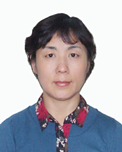
Biography:
Dr. Xinhua Guo received her PhD in 2004 from University of The Sciences, US. Currently, she is a full professor at the college of chemistry, Jilin University, P. R. China. Her researches are focused on the development of various methods for structural studies and assemblies of DNA strands, new matrixes and materials for sensitive MALDI-MS analysis and studies of peptide fragmentation mechanism. She has published more than 30 scientific articles and held 2 patents. She was a member of council of Chinese Mass Spectrometry Society (CMSS) from 2008 -2016.
Abstract:
Several unusual peptide fragment ions including bn-44, cn and bn+H2O ions are initially observed in the MS/MS spectrum of a singly charged deuterohemine N-terminated peptide (DhHP-6, Deuterohemin-βAHTVEK-NH2). A detailed investigation on formation pathways of these characteristic ions are performed by using high resolution mass determination, H/D exchange, isotope labeling and density functional theory (DFT). Results indicate that the production of these ions is related to the presence of threonine (Thr) residue in the peptide. Also the N-terminal fixed charge carried by deuterohemine group may play a critical role for the activation of the hydrogen connecting with carbon, and McLafferty-type rearrangement reactions are proposed as the potential mechanism for explaining the generation of the bn-CH3CHO and cn ions. In this study, we also propose a rearrangement fragmentation pathway for the production of bn+H2O ions from the Thr/Ser residue. In that case, the N→O acyl shift occurs to generate an ester intermediate which is the first and the most critical step, following that a further fragmentation of the ester isomer leads to the formation of bn+H2O ions. Detections of these diagnostic ions from the MS/MS spectra of sodiated Thr containing peptides further support the proposed charge-remote fragmentation pathways. Present work provides mechanism insights into the production of special ions, such as cn and bn + H2O ions, in the low energy CID process.
Yuliya E. Silina
INM-Leibniz Institute for New Materials, Germany
Title: The key parameters impacted surface-assisted laser desorption/ionization-mass spectrometry

Biography:
Yuliya E. Silina has a doctorate in Analytical Chemistry. She is a principal investigator of a research team focusing on developments in microfluidics, test-methods of analysis, drug discovery, bio- and environmental sensing at Leibniz Institute for New Materials (Saarbrücken, Germany). She has published more than 30 papers in reputed journals and holds 11 patients for her inventions.
Abstract:
The developments within nanomaterial technology since almost 20 years caused an increased research output in many application fields including surface assisted laser desorption/ionization mass spectrometry (SALDI-MS). The study of the key parameters impacted SALDI-MS is of broad interest in the field of forensics, drug discovery, bio- and environmental analysis. Unfortunately, SALDI-MS still remains in some ways a kind of art due to multiple factors affecting desorption/ionization processes. Here we demonstrate how fundamental physicochemical parameters of materials such as conductivity, restructuring effects, surface acidity/basicity, morphology and thickness, light absorbance and presence of reagent ions impact the ion formation in atmospheric pressure laser desorption/ionization mass spectrometry (AP-LDI-MS). In addition, we will show how certain physical properties of the targets determine the crystallization properties of the analyte that eventually leads to the modified LDI-signal. Our findings were independently supported by means of Raman spectroscopy, Scanning Electron Microscopy, Transmission electron microscope, UV-and X-ray diffraction analysis. The obtained knowledge was applied for the synthesis of nanostructured targets for SALDI-MS allow profiling of regular and skimmed lactose-free milk samples without conducting the complex sample pretreatment and routine separation. The simplicity of this LDI-MS approach holds an excellent potential in applied research as a rapid instrument for efficiency/completeness of technological process control or detection of milk adulteration.
K.W. Michael Siu
University of Windsor, Canada
Title: Gas-Phase Dehydration of Protonated Polyglycines
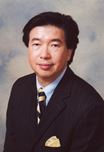
Biography:
Dr. Siu then accepted a position as Research Associate with the Division of Chemistry at the National Research Council of Canada. Over the following 16 years, Dr. Siu held positions with the NRC as Research Officer, Institute for Environmental Research and Technology (formerly Institute for Environmental Chemistry) and Senior Research Officer, Institute for National Measurement Standards. In 1998, Dr. Siu relocated to York University as Professor of Chemistry and NSERC/SCIEX (now AB SCIEX) Senior Industrial Research Chair in Analytical Mass Spectrometry. He was the Founding Director of the Centre for Research in Mass Spectrometry. Dr. Siu was named Distinguished Research Professor in 2007; in July of 2005, he accepted the first of two, three-year appointments as the Associate Vice-President Research, Science and Technology at York University. Dr. Siu is recognized globally as a leader in the fundamentals as well as applications in the field of mass spectrometry. He has coauthored more than 240 refereed articles, and he and his group have given in excess of 440 presentations of which 50% were in the invited, keynote or plenary category.
Abstract:
Loss of water is a common reaction after collisional activation of protonated polypeptides. We selected polyglycines as prototypical polypeptides for examination of the source of the water loss. Polyglycines labeled with 18O at specific peptide linkages were custom-synthesized using Wang resin. Protonated tetraglycine loses water predominantly from its first peptide linkage. Loss of water from the second peptide linkage increases in abundance with increasing peptide length, and becomes the predominant channel in hexaglycine. For tetraglycine, both density functional theory (DFT) calculations and infrared multiple photon dissociation (IRMPD) experiment strongly suggest that the dehydration product is formed by loss of water from the first peptide bond that results in a protonated imidazole-4-one (U.H. Verkerk et al. J. Phys. Chem. A 2011, 115, 6683; J.K.-C. Lau et al. Int. J. Mass Spectrom. 2012, 316, 268). Preliminary DFT and collision-induced dissociation (CID) results continue to support this structural interpretation for the dehydration products of pentaglycine and hexaglycine that involve loss of water from the first peptide bond. Those results that involve water loss from the second peptide bond suggest a series of rearrangement reactions prior to dissociation. Our results thus far indicate multiple pathways of polyglycine dehydration that are competitive.
Yong-Xi Li
Medpace Bioanalytical Laboratories, USA
Title: Distributions of Nicotine and Cotinine in Rat Tooth, Alveolar Bone and Brain and their Impacts on Dental health
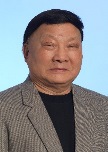
Biography:
Yong-Xi Li has completed his PhD in Beijing Institute of Petroleum Research in China and Postdoctoral training at Cornell University, USA. Currently he is Executive Director at Medpace Bioanalytical Laboratories focusing on bioanalytical analysis, including TK, PK, ADA and Nab method developments, validations and sample analysis for small molecule, polypeptides, protein and antibody therapies. He has published more than 100 papers and one book in reputed journals and publishing house and serving as one of organizers in a biotech conference.
Abstract:
Since Nicotine is like a neurotransmitter. With receptors they are involved in many functions in human. Rats were selected to simulate smokers, and distributions of Nicotine and Cotinine in tooth, alveolar bone and brain are investigated. Quantitative methods by LC-MS/MS are developed after extraction methods were established. Total of 18 SD rats had intraperitoneal injection once a day, then sacrificed after three months. Tooth, alveolar bone and brain were collected. Analytes and internal standards were extracted from tooth and alveolar bone using SPE procedure. Ground teeth was dissolved in HCl overnight. The analytes were spiked to liquidized tooth or bone for preparing calibration standards and QCs. Then neutralized sample was loaded on SPE, eluent was for analysis. Brain samples were homogenized, extracted using protein precipitation procedure. The LC-MS/MS analysis was carried out on Sciex 5500 LC-MS/MS system. The chromatographic separation was achieved on C18 column (100 × 2.1 mm) with gradient operation. The MRM transitions on +ESI mode were monitored at m/z 163.1 ® 130.1 for nicotine, m/z 177.1 ® 80.1 for cotinine. Calibration range was from 5 ng/g to 1,000 ng/g. Preliminary results have shown that under dosing of 0.8 mg/kg, the highest distributions are: 19.8 ng/g in teeth, 20.1 in alveolar bone and 11.5 in brain for Nicotine, and notably, 25.9 in teeth→58.4 in alveolar bone→103 ng/g in brain for cotinine. Compared to the results from smoker teeth, the impacts on dental health are discussed from cotinine deposition acumination, and as well as brain neuro system.
Julien Keraudy
University of Nantes, France
Title: Mass spectrometry diagnostics in highly ionized plasma: a key tool to optimize the sputtering process and the film growth
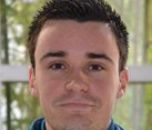
Biography:
Julien Keraudy was born in Brest, France, in 1989. He received the M.Sc. degree in physics and the Magister science from the University of Rennes, Rennes, France, in 2012, and the Ph.D degree in physics from the University of Nantes, Nantes, France in 2015. He is currently a Post-Doctoral Fellow in the division of Plasma & Coatings physics, Department of Physics, Chemistry and Biology (IFM), Linköping University, Sweden, where he is involved in plasma diagnostic and growth of thin films deposited by HiPIMS discharge.
Abstract:
High power impulse magnetron sputtering (HiPIMS) is a new method for physical vapor deposition (PVD) based on magnetron sputtering. It utilizes transient impulse (short pulse) glow discharges with very high power and current density (up to 3 kW cm-2 and 4 A cm-2 respectively at a duty cycle of < 5%). Under these conditions the plasma density near the target increases sufficiently to ionize a significant proportion of the sputtered metal ions thus creating a high-efficiency metal ion source. Compare to conventional processes, HiPIMS discharges give increased possibilities to use ionized the metal flux for bombardment but have also demonstrated to be an elegant solution for controlling the chemical composition, energy and trajectory of the ion current arriving at the film growth surface. This fine control of the metal ion flux has found plenty of applications for cutting tools, especially for deposition on complex geometries, enhancement of the adhesion between coatings and substrates, enhancement of the optical films properties, substrate pre-treatment for anti-corrosion coatings, and more recently for the low-temperature epitaxial growth of nitride coatings on MgO substrates. These achievements have mainly been possible thanks to a detailed comprehensive study of the plasma-surface interaction phenomena, especially at the plasma-growing film interfaces. Among the most common plasma diagnostic methods, mass spectrometry is proven to be a powerful tool to monitor the ion dynamics in HiPIMS discharges by examining the ion energy distribution function (IEDF). Through the presentation of different examples of innovative coatings as well as low-temperature epitaxial growth, the benefits of mass spectrometry in highly ionized plasma will be presented.
- Applications of Mass Spectrometry | Mass Spectrometry Imaging | Mass Spectrometry in Toxicology
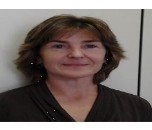
Chair
Nives Galić
University of Zagreb, Croatia
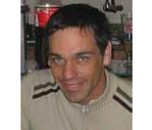
Co-Chair
Pedro José Sanches Filho
Instituto Federal Sul-rio-grandense, Brazil
Session Introduction
Nikolay Solovyev
St. Petersburg State University, Russia
Title: Analytical aspects and biomedical applications of selenium speciation
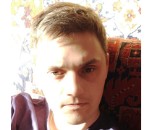
Biography:
Nikolay Solovyev was born in 1986 and has completed his PhD at the age of 25 years from St. Petersburg State University. He is an analytical chemist, and a lecturer in analytical chemistry at the Institute of Chemistry, St. Petersburg State University. His primary field of expertise is clinical elemental analysis, speciation analysis and trace element metabolism.
Abstract:
Analytical challenges of selenium (Se) species determination, using hyphenated techniques, are discussed. Se is ‘complicated’ element for the inductively coupled plasma (ICP) based techniques, owing to relatively low sensitivity and abundant interferences. Since emission lines of Se are insensitive, nearly exclusive mass spectrometry (MS) detection is used for Se speciation in biological samples. Nevertheless, selenium detection by ICP-MS is considerably less sensitive compared to most elements. This is due to rather high ionisation potential of Se, its natural isotope distribution and spectral interferences, originating from argon of the ICP as well as sample bulk elements. Noteworthy, all Se isotopes are interfered to certain extent. A primary isotope 80Se (abundance 49.61%) is totally interfered by argon dimer, whereas the less interfered 77Se has abundance of 7.63% only. Severe interferences for Se require for the implementation of sector-field MS or using of collision or dynamic reaction cell technologies for Se quantification and speciation. The best performance, in respect of limits of detection, is obtained for collision or dynamic reaction cells with oxygen/hydrogen or methane as working gases. Additional analytical complications of Se speciation are related to separation and identification techniques, since biologically relevant Se-species diverse highly in their chemical nature: inorganic (selenite and selenate), organic, including seleno amino acids (selenocystein, selenomethionine), low molecular weight species, specific selenoproteins (selenoprotein P, glutathione peroxidase, thioredoxin reductase etc.) and non-specific selenised proteins (e.g. selenised human serum albumin). The main biomedical applications of Se speciation are epidemiologic studies, selenium metabolomics and risk assessments studies.
Nives Galić
University of Zagreb, Croatia
Title: Structural investigation of organic compounds and their complexes by ESI MS/MS
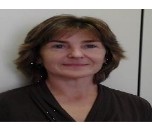
Biography:
Nives Galić was born in Zagreb, Croatia where she graduated from the Faculty of Science, University of Zagreb, with a B.Sc. degree in Chemistry (1992); received a Mr. Sc. degree (1995) and a Ph.D. degree in Analytical Chemistry (1999). In 2011 she was elected to the position of Associate Professor and become the Head of the Division of Analytical Chemistry. She has published over 30 papers which have been cited over 700 times. She was supervisor of 25 diploma thesis and two PhD theses (+ 6 in progress). She is a leader of the project funded by Croatian Science Foundation (IP-2014-09-4841).
Abstract:
The application of electrospray tandem mass spectrometry (ESI MS/MS) in organic analysis, as well as in pharmaceutical industry, will be presented and discussed on several examples as follows:
1. Structural isomers of aromatic hydrazones derived from nicotinic acid hydrazide were identified due to comprehensive study of their fragmentation pathways. Isomers derived from 3- and 4-hydroxy salicylaldehyde, as well as those derived from 3- and 5-chloro salicylaldehyde were distinguished due to "ortho effect". The MS/MS spectra and fragmentation pathways of compounds derived from 3- and 4-methoxy salicylaldehyde differ due to enolimino-ketoamino tautomeric interconversion of one isomer.
2. Peptidocalixarenes bearing tryptophan, phenylglycine and leucine at the lower rim and their complexes with alkali-metal (Li+, Na+, K+, Rb+, Cs+) and selected lanthanide cations (La3+, Ce3+, Eu3+, Yb3+) were analyzed by ESI MS/MS. The results of MS analysis were in accordance with those obtained by other techniques (spectrophotometric, potentiometric, and conductometric titrations). The MS/MS experiments could be used as fast and sensitive method for prediction of relative stabilities of calixarene complexes with metal ions.
3. Bivalirudin, a synthetic oligopeptide, is used as anticoagulant for patients with acute coronary syndromes or patients undergoing percutaneous coronary intervention. Forced degradation studies were performed using acid, base, H2O2, heat and light exposure as recommended by the International Conference on Harmonization (ICH). An UPLC method with UV detection for determination of bivalirudin in the presence of its degradation products has been developed. However, for the identification of degradation products the 2D LC MS/MS system had to be used.
Pedro José Sanches Filho
Instituto Federal de Educação Ciência e Tecnologia Sul-rio-grandense, Brazil
Title: GC/MS application in the determination of lipids in archaeological artifacts samples
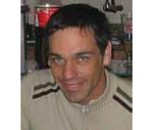
Biography:
Dr Pedro José Sanches Filho graduated in Full Degree in Chemistry and graduate in Pharmacy (1988), master's degree in Chemistry from the Federal University of Rio Grande do Sul (1997) and a PhD in Chemistry from the Federal University of Rio Grande do Sul (2002) and post doctorate from the Nova University of Lisbon (2007). He is currently Professor and Researcher at the Federal Institute of Education, Science and Tecnolgia sul-rio-grandense, leader of the Research Group on Environmental Contaminants.
Abstract:
The connection of chemistry as a science with conservation-restoration and historical research of cultural property is of great importance, that because these materials (artifacts, buildings, etc.) are able to store chemicals that allow information both cultural aspects (actions anthropic) as non-cultural (vegetation, and others). The necessity of methods to extract, identify and quantify chemical compounds stored in archaeologies samples such as ceramics, accurately and precisely, makes the gas chromatography coupled to mass spectrometry (GC/MS) to appear as an important analytical tool. This work aims at the optimization methodologies by GC/MS for characterizing lipids found in archaeological artifacts (ceramic fragments) obtained in Cerritos located in the Pampa biome, in the southern portion of the Patos`s lagoon, southern Rio Grande do Sul-Brazil. The methodology is based in a solvent extraction of lipids under ultrasound, clean up by micro silica column and derivatization with MSTFA (N-methyl-N-trimethylsilyltrifluoroacetamide) and analysis by GC/MS. A better characterization, with clarification of several isomeric structures, was obtained in 4.0 g of sample and 30.0mL eluent (CHCl3:CH3OH 2:1 v/v)during the passage in the micro-column with silica. The study allowed us to optimize the methodology for extraction, clean up, pre concentration, identification and quantification of lipid compounds (fatty alcohols, fatty acids, triglycerides) in samples of ceramic artifacts, and identify contamination in the samples in the stages of collection and storage. The results obtained from this method will enable a more accurate and precise correlation between chemical data and the behavior of indigenous pre colonization cultures.
Radostina K. Manova
NVWA, Product Safety Authority, The Netherlands
Title: An application of HRMS QTOF in the routine analysis of veterinary drug residues
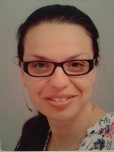
Biography:
Radostina K. Manova obtained her PhD from University of Wageningen in The Netherlands. During her PhD, she developed a new analytical approach for analysis and structural elucidation of covalent bound monolayers with the use of ambient ionization and high-resolution mass spectrometry. Currently, she is working as a research scientist at Netherlands Food and Consumer Product Safety Authority. Her research topics are development of analytical methods for determination of veterinary residues, and application of HRMS for broad screening and for confirmation of veterinary drugs and growth promoters.
Abstract:
The use of veterinary drugs in food-producing animals may pose a risk to public health. In order to protect the public and animal health, the EU legislation requires monitoring programs assuring that veterinary residues do not exceed maximum residue limits. For the implementation of such programs, the routine laboratories use targeted analysis for multi-residue determination with triple-quadrupole mass spectrometric detection (e.g. LC-MS/MS). Recently, the use of high-resolution mass (HRMS) analyzers has gained popularity for the screening of unlimited number of analytes in complex matrices. As a result, the HRMS analyzers are playing already a central role in routine pesticide residue analysis. However, the potential of HRMS methods in the analysis of veterinary drugs is not yet fully explored to the level of routine use. This presentation will discuss development and validation of a liquid chromatography–high resolution mass spectrometry (LC–HRMS) method for screening, identification and quantification of beta-agonists in biological matrices. The evaluation of data acquisition approach on hybrid quadropule-time-of-flight (QTOF) mass analyzer will be discussed: full-scan MS and a combination of full-scan and broadband CID experiments. The development of exact mass product ion spectra database and the selection of quantifier/qualifier ions for reliable identification will be described. The combination of highly selective HRMS method with a generic sample preparation will be evaluated for the targeted and non-targeted screening workflow. Finally, regulatory aspects concerning validation of HRMS methods will be also mentioned.
Gianluca Trifirò
Experimental Zooprophylactic Institute of Puglia and Basilicata Regions, Italy
Title: Novel approach for the determination by HPLC-MS/MS of microcystins LR, LY, LA, YR, RR, LF, LW, and nodularin in lake water and crops
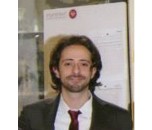
Biography:
Gianluca Trifirò has completed his Master’s Degree in Analytical Chemistry from University ‘’Sapienza’’ of Rome (Italy). He is a researcher at the laboratory of mycotoxins and immunoassays techniques of the Experimental Zooprophylactic Institute of Puglia and Basilicata Regions (Italy). He has published several papers in reputed journals.
Abstract:
The occurrence of harmful cyanobacterial blooms in surface waters is often accompanied by the production of a variety of cyanotoxins, and these toxins are designed to target in humans specific organs on which they act. When introduced into the soil ecosystem by spray irrigation of crops, they may affect the same molecular pathways in plants having identical or similar target organs, tissues, cells, or biomolecules. There are also several indications that terrestrial plants, including crops, can bioaccumulate cyanotoxins and present, therefore, potential health hazards for humans. During this project, for monitoring purposes, water samples were collected from lake Occhito, in which there was an algal bloom (Planktothrix rubescens) in 2009, and from three tanks which acted as hydraulic junctions. In addition, crop samples irrigated with water from the three tanks mentioned above were also picked. Finally, the characterization of principal cyanobacteria was performed, to determine the presence of cyanotoxins such as microcystins and validate a HPLC-ESI-MS/MS method for the determination of microcystins in water and vegetable samples.
- Applications of Mass Spectrometry | New Approaches in Mass Spectrometry | Chromatography and High Performance Liquid Chromatography (HPLC)
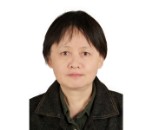
Chair
Jin Ouyang
Beijing Normal University, China
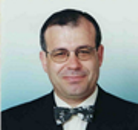
Co-Chair
Fernando Ramos
University of Coimbra Health Sciences, Portugal
Session Introduction
V. Sabareesh
Vellore Institute of Technology (VIT) University, India
Title: Arginine modification by 1,2-dicarbonyl compounds studied by liquid chromatography - electrospray ionization mass spectrometry (LC-ESI-MS)
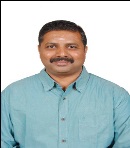
Biography:
Sabareesh pursued PhD in Molecular Biophysics Unit, Indian Institute of Science, Bengaluru, India with Prof. P.Balaram’s guidance. He received Prof. B.H.Iyer medal for best PhD thesis: Mass spectrometric sequencing of acyclic and cyclic peptides for 2007-08. He did postdoctoral research with Prof. Simon Gaskell in Michael Barber Centre for Mass Spectrometry, University of Manchester, UK, during 2008-09. He got Young Scientist Award from Indian Society for Mass Spectrometry in 2013 and is a recipient of ‘Start-Up Research Grant (Young Scientists)’ from SERB, Government of India. His research interest is ‘biomolecular mass spectrometry’, specifically tandem mass spectrometry of peptides and proteins
Abstract:
1,2-dicarbonyl compounds are highly selective in covalently modifying sidechain guanidine group of arginine. Hence, these compounds find application for understanding the importance of arginine in enzymes, e.g. ATPase, kinase, etc. that recognize anionic substrates. Studies by radioactive 14C labeled phenylglyoxal (PG) or electrospray ionization mass spectrometry (ESI-MS) show that either 1 or 2 molecules of PG modify guanidine moiety of arginine in enzymes; whereas MS based investigations indicate addition of only one molecule of 1,2-cyclohexanedione (CHD) onto guanidine group of arginine in proteins/peptides. To attain clearer insights, herein we decided to probe amino acid L-arginine (L-Arg) modification by liquid chromatography (LC) - ESI-MS (LC-ESI-MS). Reactions were conducted using equimolar concentrations of reactants at room temperature (250C) in seven different mediums. In borate buffer, exclusively 1:1 adduct of L-Arg:PG (m/z 309) is observed. However, with CHD, L-Arg forms 1:1 adduct (m/z 287), 1:2 adduct (m/z 399) and respective water condensed products (m/z 269 & m/z 381) in borate. Interestingly, in water medium too, L-Arg is modified yielding condensed and uncondensed products of both 1:1 and 1:2 stoichiometries with PG as well as CHD. This is the first LC-ESI-MS study on L-Arg modification accomplished by phenylglyoxal and 1,2-cyclohexanedione. Additionally, observations from modification by 2,3-butanedione and LC-ESI-tandem MS (MS/MS) investigations on some model peptides containing one or two arginines shall be discussed. Furthermore, results obtained from the experiments conducted on a model protein, bovine pancreatic ribonuclease A will also be presented.
Jin Ouyang
Beijing Normal University, China
Title: High-throughput screening of protein-bound drugs and enzyme inhibitors using ambient mass spectrometry
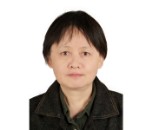
Biography:
Professor Jin Ouyang received her Bachelor degree in Shaanxi Normal University, PR China and Ph.D. degree in Ghent University, Belgium. She is now working as a professor at Beijing Normal University, PR China. She is engaged in developing analytical methods based on mass spectrometry coupling to chromatography and electrophoresis, as well as applications of the methods to biological and pharmaceutical analysis. She received several Award such as the Chinese Female Analyst Award, China Association of Instrumental Analysis (CAIA) Award, and the State-level teaching famous teacher award. She published over 100 papers on peer-reviewed journals such as Anal. Chem., Adv. Funct. Mater., Chem. Commun., Nano lett., Small, etc.
Abstract:
High-throughput screening (HTS) of protein-bound drugs and enzyme inhibitors is important for obtaining rapid understanding of drugs or enzyme inhibitors, which is significant in the developments of new drugs or mechanism studies in life science. Recently, ambient mass spectrometry has been applied for the rapid detection without sample pretreatment, which has potentials in real-time monitoring or high-throughput screening. In our group, several works on high-throughput screening of protein-bound drugs and enzyme inhibitors have been employed using ambient mass spectrometry. Firstly, we developed a rapid screening method for the detection of protein-bound small molecules using desorption electrospray ionization mass spectrometry (DESI-MS) [1]. The mechanism study on the interaction between DNA topoisomerase and inhibitors of camptothecin was carried out, and the relative binding strength was determined. Subsequently, the rapidly detection of 21 small molecule drugs has been successfully achieved within 1.75 minutes, enabling the high-throughput screening. In addition, a house-made platform combining with DESI has been constructed for examining the affinity between candidate ligands and anion-binding sites protein α1-acid glycoprotein [2], and the detection of 45 samples have been finished in 2.3 minutes. To further improve the high-throughput detection, a self-made protein microarray was fabricated combing with DESI-MS, which obtained the high-throughput examination of matrix metalloproteinase-9 interaction with 88 drug molecules [3]. Furthermore, we used venturi easy ambient sonic-spray ionization mass spectrometry (V-EASI-MS) to monitor the binging affinity between drug and α1-acid glycoprotein in real time [4]. By combining V-EASI-MS with liquid microfluidic technology, the high throughput screening of enzyme inhibitor drugs was further developed with a good stability [5], which achieved the detection frequency of 1.5s / sample. Therefore, the ambient mass spectrometry were effective in the high-throughput screening or detection of protein-bound drugs and enzyme inhibitors, which would show potentials in drug industry or clinical diagnosis.
Natalja P. Nørskov
Aarhus University, Denmark
Title: Application of Liquid Chromatography - Mass Spectrometry in the analysis of phytochemicals
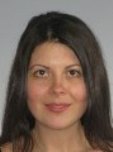
Biography:
Natalja P. Nørskov has completed her PhD at the age of 37 years from Aarhus University (Denmark). After her PhD she continued her work as a postdoc at Aarhus University working on development of high throughput methods for quantitative metabolomics using LC-MS instruments. Many of the methods are now published in the international journals. She is also a leader of a PhD course titled, “Hands-on targeted and untargeted LC-MS metabolomics with emphasis on measuring phytochemicals in plasma and urine”.
Abstract:
Phytochemicals are non-nutritive compounds found in plant foods such as fruits, vegetable, cereals and etc. They have received attention in human nutrition due to their health beneficial effects, mainly as antioxidants. Particular class of phytochemicals, lignans have gained further interest due to their promising role in the prevention of lifestyle diseases. However, it is essential for epidemiological studies to have more evidence to be able to link the intake of lignans to this promising role. In this context, it is necessary to study large population groups to obtain sufficient statistical power. The aim of this study was to develop quantitate LC-MS/MS methods for high throughput of samples with high sensitivity, meeting the needs of analytical laboratories. The quantification of biofluids was performed on microLC coupled to QTrap 5500 Mass Spectrometer. In the first method we have quantified two enterolignans, enterolactone and enterodiol, and eight plant lignans. In the second method we have quantified enterolactone in its intact forms as glucuronide and sulfate. Both methods contain only one extraction step using Solid Phase Extraction, good chromatographic separation on the reverse-phase columns and short chromatographic runs. The importance of these new methods is two-fold. Firstly, since the methods are rapid and easy to perform they can be used for high throughput of samples and therefore will be the methods of choice for future epidemiological investigations and clinical diagnosis. Secondly, we hope that measuring enterolactone in its intact forms will contribute with new knowledge on the role of enterolactone in human health.
Fernando Ramos
Universidade de Coimbra, Portugal
Title: Mass Spectrometry - an important tool in Food Safety for veterinary drug residue analysis
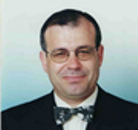
Biography:
Abstract:
In the last decades, Food Safety became one of the most important subjects worldwide for many important international organizations including, as well known, the European Commission. To protect consumers, from the health risks associated with the presence of residues of veterinary drugs in food products of animal origin, the European regulatory agencies settled official documents to keep these substances and their administration under control. To perform such control, sensitive and specific analytical methodologies are requested for the determination of veterinary drug residues in food, of animal origin, destined to human consumption. The most efficient analytical technology used in this field is liquid or gas chromatography coupled with mass spectrometer detector. The mandatory European Commission criteria, for quantitative and confirmatory determinations in veterinary drug analysis, are the main reason why the triple quadrupole mass spectrometer detector is still the principal analytical tool of choice. Those equipments guarantee an unequivocal identification of trace concentrations in complex matrixes such as biological samples (foodstuff as muscle, eggs, milk, liver, fat and kidney). Such mass spectrometry detectors coupled with liquid chromatography (LC-MS/MS) is a powerful tool allowing multi-compound detection by recording full mass spectra (scan mode), selected ion monitoring (SIM) and multiple reaction monitoring (MRM). More recently, it started to grow the application High Resolution Mass Spectrometry (HR-MS), as Time-of-Flight (ToF) or Orbitrap-MS, in residues analysis but the high cost associated with those equipments along with the fact that it is not completely clear how to apply the performance and validation criteria in those methods, according to legislation, are the main drawback for their use.
Sermin Tetik
Marmara University, Turkey
Title: HPLC Based Method for Proteomic Biomarker Analysis: Application to in vivo Drug Metabolite in Human Plasma
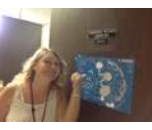
Biography:
Dr. Sermin Tetik received her PhD degree from the Biochemistry Department, Faculty of Pharmacy, University of Marmara (Istanbul-Turkey). Currently, she is a proffesor at the same University. She has joined two research programmes as wisiting professor; one of them was at Pharmacology-Pathology Depatrment of the School of Medicine at Loyola University, Chicago and the other one was at Florida Cancer Research Institute of Florida University, Orlando, USA. Dr. Tetik heads her research group which have focuses on thrombosis–hemostasis, proteomics, biomarkers and modified protein structure/function on different diseases. She has published over 40 scientific articles and over 40 international abstracts in reputed journals, several book chapters, and gave many invited lectures. She has served as editorial board member of reputed journals, she has received several awards and honors.
Abstract:
Today, coronary arterial disease (CAD) is a prominent cause of death in developed and developing countries. It is known that CAD is more prevalent in Turkey than in Western countries and it appears that this rate of prevalence is likely to increase in the coming years. Atorvastatin, which is a drug, is a 3-hydroxy-3-methylglutaryl-coenzyme A (HMG-CoA) reductase inhibitor, which limits the rate of cholesterol biosynthesis. Paraoxanase 3 (PON3) is related to high density lipoprotein (HDL) and it has been suggested that it protects low density lipoprotein (LDL) against oxidation. Paraoxanase 3 activity in human blood plasma is considered to be an adequate biomarker for tracking premature atherosclerosis but it has not yet been used in any official method for tracking atorvastatin which reaches systematic circulation and stimulates PON3 activity. In our experimental model, we aimed to characterize of PON3 activity in human blood with atorvastatin (AT) as a substrate and its metabolite, hydroxyacid atorvastatin (HAT). We used a modified method steming from different methods. Patients with atherosclerosis were divided into two subgroups as pre- and post-operation. Blood samples were collected from patients with atherosclerosis who took atorvastatin (20mg/day). Separation of AT and HAT was evaluated on an liquid chromatography (C18) column. This study reports an accurate, sensitive and reliable liquid chromatographic method for the determination of atorvastatin and its metabolite, HAT, which, to our knowledge, constitutes the first in vivo approach in the literature.
Zhao Yun
China Waterborne Transport Research Institute, China
Title: The application of portable GC-MS on the petrochemical wharf
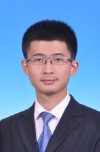
Biography:
Zhao Yun has completed his PhD at the age of 29 years from Institute of Chemistry, Chinese Academy of Sciences(China). He is associated researcher and director of a research team focusing on VOCs detection in China Waterborne Transport Research Institute. He has published more than 10 papers in reputed journals.
Abstract:
There are many kinds of volatile organic compounds(VOCs) volatilized in the air when the petrochemical wharf are working, and most of them are harmful to people. Since the VOCs detector usually matches given kinds of gases, If the exact kind of gases is undefined or is wrongly informed, there will be a big mistake in detection result. The mass spectra has an advantage over determining the gas kinds, but it’s usually heavy and its sampling mode is not convenient for quick detection. To resolve this problem, a method based on portable GC_MS for VOCs determination is developed, which is based on the portable GC-MS technology. The VOCs are directly extracted by solid phase microextraction head for 120 seconds. After that, they are analyzed on the portable GC-MS, determined by retention time and MS peaks, quantified by external standard method. It only takes 6.4min from sample extracting to get the result. However the linear correlation is larger than 0.98, and the minimum detectable concentration is lower than half of their occupational exposure limits. In the simulation test, the relative error is lower than 4.4%. This method can directly sample in the field, rarely depends on external conditions, and is very convenient to carry. It takes very short time to complete the detection, at the same time it can determine and quantify multiple kinds of VOCs at a time. So it will be very suitable for the VOCs emergency detection in the leakage scene.
- Applications of Mass Spectrometry | New Approaches in Mass Spectrometry
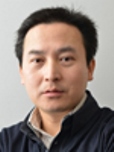
Chair
Lingzhi Gong
Queen Mary University of London, UK
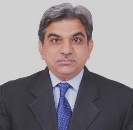
Co-Chair
R K Vatsa
Bhabha Atomic Research Centre, India
Session Introduction
Codjo Hountondji
University Pierre et Marie Curie (Paris 6), France
Title: Affinity labeling studies and mass spectrometric analyses on human 80S or E. coli 70S ribosomes reveal how the ribosomes translate cancer
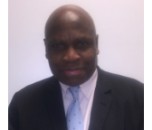
Biography:
Codjo Hountondji has completed his PhD at the age of 30 years from University of Orsay (Paris 11, France). He is professor of Biochemistry and Molecular Biology at the University Pierre et Marie Curie (Paris 6, France) and director of a research team focusing on “the mechanism of peptide bond formation at the peptidyl transferase center, the active site of the ribosome” and on “the ribosome as a target for anti-cancer drugs”. He has published more than 40 papers in reputed journals.
Abstract:
Increasing evidence points to a connection between protein synthesis and cancer cell growth. For example, increasing the rate of protein synthesis is favorable to the increase in size of the cancer cells and hence to their subsequent division. Since the ribosome, with its functional sites A, P and E, is responsible for protein synthesis in all kingdoms of life, it may be considered as a target of new cancer therapeutics. Here, by combining affinity labeling studies and mass spectrometric analyses on human 80S or E. coli 70S ribosomes, we have demonstrated the following: (i) ribosomal proteins rP-eL42 of human 80S ribosomes and rP-bL12 of E. coli 70S ribosomes can be affinity labeled in situ with the CCA-end of tRNAox, a tRNA analogue bound to the P-site; (ii) the residue of eL42 or bL12 cross-linked with tRNAox is Lys-53 and Lys-65, respectively; (iii) the CCA-end of P-tRNA contacts both eL42 and the A-site bound translation termination factor eRF1 at the peptidyl transferase center, the active site of the human 80S ribosome; (iv) the residue of eRF1 cross-linked with tRNAox is Lys-197. Since previous studies had demonstrated that rP-eL42 is overexpressed in human hepatocellular carcinoma as well as in several human tumor cell-lines, while an increased exposure of intestine to bacterial bL12 was previously observed in colorectal cancer patients, our results suggest that the functional role of these rPs might be related to tumor cell proliferation. In addition, our results provide new insights into the mechanism of the peptidyl transfer reaction.
R.K. Vatsa
Bhabha Atomic Research Centre, India
Title: Photoionisation of nanoclusters : Collisional heating of confined electrons
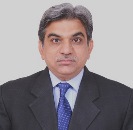
Biography:
Dr. R.K. Vatsa did his M.Sc. (Physical Chemistry) from Delhi University and obtained his Ph.D. from University of Mumbai, India followed by postdoctoral research at Heidelberg University, Germany. He is currently Heading Structural Chemistry Section in Chemistry Division of BARC. He has published 150 research papers in internationally reputed journals. He is President of Indian Society for Mass Spectrometry (ISMAS) and an elected fellow of National Academy of Sciences (NASI), India.
Abstract:
A nanocluster is a collection of atoms/molecules held together by weak van der Waals forces. These tiny balls of nanometer dimension are of great interest in physics and chemistry since the matter in nano form behaves differently than the bulk form. How do these nanoclusters behave as far as their interaction with a pulse of light is concerned, will be the subject matter of this presentation. It will be shown that nanoclusters, surprisingly, absorb large number of photons (hundreds to thousands per cluster) from the non-resonant optical field. Experimental results show that photoionisation of clusters using giga watt intensity laser pulses (l = 532 or 1064 nm) produces multiply charged atomic ions (as high as +8 state). The enormous amount of energy absorbed from laser pulse causes multiple ionisation of the constituent atoms/molecules. The presence of highly charged atomic ions being in close proximity leads to strong Coulombic repulsive forces and eventually the entire cluster undergoes violent disintegration known as Coulomb explosion. The end products of Coulomb explosion are multiply charged ions and energetic electrons as detected experimentally. The charge state of atomic ions and kinetic energy of electrons is higher in case of photoionisation by infrared photons as compared to UV-Vis photons. Further, a threshold cluster size is critical below which multiply charged atomic ions are not observed. The results have been explained based on the formation of nano-plasma by the leading edge of laser pulse (FWHM= 10 ns) which then interacts with the remaining portion of the pulse. The optical energy is coupled into the cluster by collisional heating of confined electrons inside the cluster. The large experimental data suggest that after initial multiphoton ionisation of atoms/molecules, secondary ionisation of cluster constituents is dominated by the energetic electron impact ionisation leading to multiple ionisation and concomitant effects.
Lingzhi Gong
Queen Mary University of London, UK
Title: Analysis of Oligonucleotides by Ion-pair Hydrophilic Interaction Liquid Chromatography/Electrospray Ionization Mass Spectrometry (IP-HILIC/ESIMS)
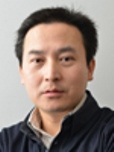
Biography:
Lingzhi’s general research interests include mass spectrometry based analysis of small molecules and biomolecular molecules (nucleic acids, peptides, proteins) through hyphenated to a chromatographic method (mainly liquid chromatography), and research into chromatographic retention mechanisms. His current work focuses on characterizing single- and double-stranded DNA/RNA, and protein/peptide - DNA crosslinking complex using hyphenated liquid chromatography and electrospray mass spectrometry (LC-ESIMS). Lingzhi currently runs Core Mass Spectrometry Research Facility at Queen Mary University of London.
Abstract:
Synthetic oligonucleotides are widely used in the polymerase chain reaction (PCR) as DNA primers or in molecular biology as probes to screen for diseases, viral infections, and to identify genes. Sensitive and selective methods have always been demanded for the characterization of oligonucleotides, especially, when the oligonucleotides are applied as therapeutics. Ion-pair reversed-phase (IP-RP) liquid chromatography has been commonly used for the analysis of oligonucleotides, but ion suppression is a major problem when coupling with electrospray mass spectrometry (ESI-MS). Although the introduction of hexafluoroisopropanol (HFIP) in the mobile phase has improved MS detection sensitivity of oligonucleotides, this mobile phase system results in a severe problem with adducts formation particularly if large oligonucleotides are analysed. An alternative chromatographic approach, hydrophilic interaction liquid chromatography (HILIC), was recently employed for the analysis of oligonucleotides. It provided enhanced MS sensitivity with fewer adducts but lacked chromatographic resolution for some oligonucleotides. Here we improve chromatographic resolution whilst maintaining MS sensitivity by adding an ion-pairing reagent, triethylammonium acetate (TEAA), into the HILIC mobile phase. The IP-HILIC approach produces lower retention capacity and has the added benefit of providing simpler MS spectra, with fewer charge states, when comparing with HILIC. We suggest a mechanism for ion-molecule interactions in IP-HILIC.
Xuewu Zhang
South China University of Technology, China
Title: Proteomic analysis of anti-photoaging activity of the acetylated and amidated peptide GMCCSR
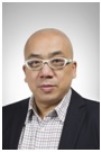
Biography:
Xuewu Zhang obtained his PhD from Zhongshan University in 1993. Subsequently, he worked as a postdoctor in Hong Kong University, University of British Columbia, University of Manitoba and University of California at Los Angeles. Then, he come back to Hong Kong University as a Research Assistant Professor in 2003. At last, he joined South China University of Technology as a professor in 2005. His research interests focus on Food Science, Omics technologies and nanotechnology. He has published more than 80 papers in reputed journals and served as editorial board members of several journals.
Abstract:
In previous study, a hexapeptide with sequence of GMCCSR was identified from trpsin-digested whole protein of Spirulina platensis, and further study demonstrated that this peptide possessed antioxidant and anti-aging activities in vitro. In this study, the acetylated and amidated modification were employed to improve skin permeability of the peptide. The in vivo experiments showed that the acetylated and amidated peptide GMCCSR exerted good anti-photoaging effects on skin of mice by increasing the collagen production and activities of antioxidant enzymes SOD, GSH-Px and CAT. Subsequently, proteomic analysis using iTRAQ-based mass spectrometry technology was used to explore potential mechanisms. The results indicated that the acetylated and amidated peptide differemtially influenced the expression of 60 proteins. Among them, 33 proteins were up-regulated and 27 proteins were down-regulated. Based on bioinformatics analysis, the metabolic pathways and network related to skin photoaging were identified.
Saima Zafar
University Medical Center Goettingen (UMG), Germany
Title: Proteomic Approaches to Identify the Mechanism of rapid progression of Alzheimer's Disease
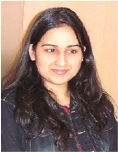
Biography:
Abstract:
Wenjie Cao
SABIC Technology Center, Saudi Arabia
Title: From ESI to APCI, MMI and APPI, Complications of Adduct Ions on MRM at Different LC-MS/MS Ionization Techniques
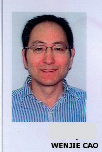
Biography:
Wenjie Cao received Ph.D. from Professor John Calvin Giddings’ Group at the University of Utah, Salt Lake City, UT. Contributor to the book of the Encyclopedia of Chromatography and more than 20 publications and presentations in peer-reviewed scientific journals and international conferences. Had worked for Huntsman Polymers Corp, Sealed Air Corp, and DuPont, as a Research Investigator, for 14 years in USA before joined SABIC in 2012. Now the Technical Leader of the Chromatography and Wet Lab and a Staff Scientist of the Analytical Department of the SABIC Technology Center at Riyadh, have filed six patents and delivered talks and made seminar presentations in the ISPAC Symposium 2016 and in King Saud University etc. since joint SABIC Technology Center.
Abstract:
This presentation is going to extend the comparison of ESI and APCI to MMI and APPI per some of the audiences’ request during the Q&A section of my presentation during the 2015 International Summit on Current Trend of MS in New Orleans. For the triple quadrupole LC-MS/MS instrument, the primary purpose or the most significant feature is the highest sensitivity among almost all, if not all, of the LC-MS/MS instruments by doing the Multiple Reaction Monitoring (MRM) testing. Ionization efficiency, selectivity, adduct ion production are among the top parameters which affect the MRM testing and the sensitivity. From ESI to APCI to MMI and APPI, this presentation will show the species and amount of adduct ions produced at each mode are quite different. Some type of the adduct ions may complicate the MRM testing by decreasing the sensitivities while some other adduct ions may prevent any reliable MRM tests being performed. Some examples will be presented to show how the typical adduct ions are produced in each mode from ESI to APCI and APPI, and how the typical adduct ions may complicate the MRM testing. The overall pros and cons, and the best ionization mode for some type of the targeted chemicals will be summarized for the different ionization techniques.
Makhapa Makhafola
Research & Development Mintek, South Africa
Title: The assessment of the exposure levels to mycotoxins among dairy cattle in the two South African provinces using HPLC (ESI)-MS/MSn
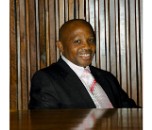
Biography:
Dr Makhafola is currently the General Manager: Research & Development at Mintek. He worked as Lecturer in Analytical Chemistry at Technikon Northern Gauteng (now called Tshwane University of Technology) and University of Venda. In 2004 was appointed Director: Quality Assurance at Border Technikon (now called Walter Sisulu University). Dr Makhafola was the Director: Quality Assurance at the University of Venda until he joined University of Kwa-Zulu Natal as the Director Quality Promotion & Assurance in July 2010, part of his responsibility was to lead the World University Rankings project.
Abstract:
Mycotoxins can be formed on crops in the field, during harvest, or during storage, processing, or feeding. Many different mycotoxins exist and they affect dairy cattle in many ways, the most important is perhaps immunosuppression. Symptoms of mycotoxins may be nonspecific and wide ranging which may include: reduced production, reduced feed consumption, intermittent diarrhea (sometimes with bloody or dark manure), reduced feed intake, thriftiness, rough hair coat, reduced reproductive performance including irregular oestrus cycles, embryonic mortalities. While mycotoxins can cause acute toxicity, they are more likely to cause chronic problems of increased disease and decreased milk production. Contamination of milk by aflatoxin can cause huge economic losses. Management of crops and feeds is important to reduce mycotoxin contamination. Mintek, undertakes research and development which focuses on various nanostructured materials and nano-minerals and their application in health (including diagnostics and therapeutics) and water treatment. The organization also seeks to advance the field of food security and as a results we partner with the University of Johannesburg for the assessment exposure levels to mycotoxins among dairy cattle in the Mpumalanga and Kwa-Zulu Natal provinces using HPLC (ESI)-MS/MSn. The levels and nature of mycotoxins and some of their main metabolites in dairy feed, raw milk and urine samples collected from some dairy cattle farms are currently being assessed and will be discussed in detail. The research project aims to generate data to propose recommendation to the South African government on the threat of mycotoxins contamination to animal and human health.
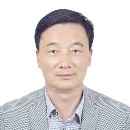
Biography:
Abstract:
The gas-phase conformation of the complexes of leucine-enkephalin (YGGFL) with Li+, Na+, and K+ were investigated by gas phase hydrogen/deuterium exchange-mass spectrometry (HDX-MS) combined with theoretical calculations. Different HDX performance were observed of enkephalin complexed with proton and Li+, Na+, and K+ ions. It was observed that [YGGFL+H]+ reacts continuously while the quenched reaction was found in the complexes of YGGFL with metal ions. For example, at the same HDX conditions, hydrogen exchanged in [YGGFL+H]+ and [YGGFL+Na]+ is 8 and 4, respectively. It is indicated that the two ions are of different conformation through various HDX performance. To further clarify the experimental results, the conformations were calculated by using density functional theory. It shows that the terminal amino group is the most thermodynamically stable protonation site, while the sodium ion coordinated four carbonyl oxygen atoms forms the most favorable sodium adduct. It is found that the difference in HDX might be attributed to less acidic hydrogen atoms in [YGGFL+Na]+ according to the charge and proton affinity calculated. The different conformations of leucine-enkephalin with Li+, and K+ complexes were further investigated for comparison. The results of this work is significant in physiology.
Yu Wang
The University of Hong Kong, Hong Kong
Title: Adipose tissue and adipokines as promising therapeutic targets for obesity-associated cardiovascular and metabolic diseases
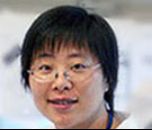
Biography:
Dr Yu Wang has completed PhD at 2003 from University of Auckland, New Zealand. She has published more than 150 papers with high citations (H-index 42) and is serving as an editorial board member of various international reputed journals.
Abstract:
Obesity is the major driving force for cardiovascular and metabolic diseases, the leading causes of mortality and morbidity in the aged population. Currently, 2.1 billion people – over 30% of the world’s population – are either obese or overweight. This lifestyle-related epidemic has become and will continue to be a major societal, medical and economic problem in established and emerging industrialized countries. Adipose tissue (fat) is the largest energy storage and endocrine organ in the body. Adipose tissue dysfunction is the major culprit for obesity-associated cardiovascular and metabolic syndrome and has emerged as a promising therapeutic target. Here, I will summarize our discoveries during the past 15 years of proteomics-based research on a number of adipokines, including adiponectin, lipocalin-2 and adipocyte fatty acid binding protein (AFABP). In particular, I will demonstrate how the proteomics-based bio-discoveries allow us to proceed with various therapeutic development based on the druggable domains/structures of these adipokines.
Nour Eddine ES-SAFI
Mohammed V University of Rabat, Morocco
Title: Mass spectrometry as a powerful spectroscopic tool for the structural identification of natural phenolic compounds and their reaction products
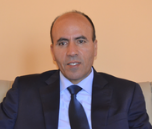
Biography:
Professor Nour-Eddine ES-SAFI completed his PhD in organic chemistry in 1997 from Mohammed V University of Rabat, Morocco and postdoctoral studies at the French National Institute for Agricultural Research. He leads the Team of Organic Chemistry and the Physico-Chemical Studies at the Ecole Normale Supérieure, Mohammed V University of Rabat, Morocco where he is currently working as deputy director and a full professor. His research focuses on natural products, especially polyphenols, their structural elucidation, their antioxidant activity and their role in food technology and human health. He has published many research papers and he is reviewer for various international scientific journals. He is Editorial Board Member of various scientific journals and is Editor in Chief of the Green and Sustainable Chemistry journal.
Abstract:
Polyphenols are natural products which are recognized as one of the largest and most widespread class of plant constituents occurring throughout the plant kingdom. They are responsible for major organoleptic characteristics of plant-derived foods and beverages, particularly color and taste properties. Polyphenols have aroused considerable interest because of their potential beneficial biochemical and antioxidant effects on human health. Polyphenols show a great diversity of structures, ranging from simple molecules to polymers. They are also highly unstable compounds and can rapidly be transformed into various adducts when the plant cells are damaged, thus adding to the complexity of dietary polyphenol composition. Due to their great variety, their structural complexity and their high reactivity, the analysis of phenolic compounds is very challenging. Among the methods used for their analysis, mass spectrometry remains one of the important tools for their structural exploration. Its high sensitivity and the possibility of coupling liquid chromatography with mass spectrometry detection make of it a technique of choice for the investigation of complex mixtures like raw natural extracts containing polyphenols. With the development of soft ionization techniques, mass spectrometry has become a powerful analytical tool of polyphenols, polar, non-volatile, and thermally labile classes of compounds. In this presentation, application of mass spectrometry for the structural elucidation of natural polyphenols or their reaction products will be given. In particular analysis of flavonoids, oligomeric and polymeric procyanidins using electropsray (ESI), matrix-assisted laser desorption ionization (MALDI), and tandem (MS-MS) mass spectrometry will be also reported.
Miho TANAKA
University of Marine Science and Technology, Japan
Title: Laser ablation inductively coupled plasma mass spectrometry for quantitative imaging of elements in ferromanganese nodule

Biography:
Miho TANAKA completed PhD at the age of 28 years from The Tokyo University (Tokyo, Japan). She is specialized in Analytical Chemistry, Solution Chemistry and Mass spectrometry. Presently, she is actively involved in “chemical speciation” in solution, as well as other topics. She has published more than 70 papers in peer reviewed journals, and is the corresponding author in 90% of them.
Abstract:
Laser ablation inductively coupled plasma mass spectrometry (LA-ICP-MS) has been used for the quantitative elemental imaging of ferromanganese nodules to obtain the distributions of both major and trace elements, owing to its high sensitivity and wide dynamic range. In our study, data treatment system was developed for the quantitative imaging of elements in ferromanganese nodules. For obtaining a calibration line, a signal of Mg was monitored as an internal standard for correction. The validity of the values determined by LA-ICP-MS was confirmed by comparison with elemental contents obtained by ICP-MS. A two-dimensional plotting system for LA-ICP-MS was established for expressing elemental contents as colors along with spatial information. The simple method describes the ease with which the colors can be changed to define the content ranges of elements, and the elemental distributions show the layered structure, clearly depicting the contrast. Reproducibility of these analytical processes was also confirmed by analyzing two ferromanganese nodules. The method is expected to be a powerful tool for investigating paleo-environmental changes in the region surrounding a ferromanganese nodule and its formation processes.
Alessandra Maria Bossi
University of Verona, Italy
Title: Molecularly imprinted micro- and nano-materials for direct protein MALDI-TOF MS analysis
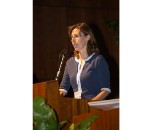
Biography:
AM. Bossi, PhD in Polymer Chemistry in 2002 (Cranfield University, UK), is Analytical Bio/chemist. She holds the Associate Professor Chair in Analytical Chemistry at the University of Verona (Italy), where she is leader of the research team on Biomimesis and Molecular Recognition. Main focus of her research is on the development of bioanalytical methods for protein and proteome analysis by: fundamental studies on hydrogels, preparation of biomimetic and responsive nanomaterials, molecular imprinting of polymers, integration of these materials to mass spectrometry and sensing. She is author of 78 papers in peer reviewed journals and 6 book chapters of bioanalytical methods.
Abstract:
Molecularly imprinted polymers (MIPs) are a class of tailor-made biomimetic materials, made by a template assisted synthesis and suitable for the recognition of target analytes, including peptides and proteins, with reported affinities and selectivity of the par of natural antibodies. With the aim to develop flexible analytical platforms performing high sensitivity and selectivity measurements, suitable for multi-biomarker determinations, the integration between the biomimetic MIPs and MALDI-TOF mass spectrometry (MS) was studied. Libraries of micro and nano-MIPs, including responsive MIP-materials, addressed at both peptide- and protein-biomarker were synthesized, characterized and coupled to MALDI-MS. The analytical performance and the extent of the applicability of the MIP/MALDI-MS was studied by challenging the system with selected biomarkers, present in serum at concentrations spanning from the nano- to the pico-molar, but bearing different characteristics in size, folding and complexity. Results indicate the coupling of micro and nano-MIP materials to MALDI-MS indeed generates rapid and highly sensitive detection methods. As MIPs are suitable “baits” for the general development of flexible platforms for the analysis of molecular biomarkers of clinical interest, MIP/MALDI-MS foreseen applications span from the global evaluation of the health status of patients, to functional proteomic research, letting envisage multiple domains of interest.
Purushottam Chakraborty
Saha Institute of Nuclear Physics, India
Title: Alkali containing molecular ions in SIMS: understanding of the emission phenomena
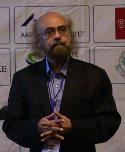
Biography:
Prof Purushottam Chakraborty is an ex- senior professor of Saha Institute of Nuclear Physics, Kolkata, India and an honorary professor of the University of Pretoria, South Africa. He is one of the leading SIMS experts of the world and has published more than 150 scientific papers and numerous reviews and book-chapters . He has edited a book ‘ion beam analysis of surfaces and interfaces of condensed matter systems (Nova Science, New York). He was awarded the ‘most eminent mass spectrometrist of India’ in 2003.
Abstract:
If alkali metals such as Li, Rb, K, Na, etc. (referred as A in general) are present in the neighbourhood of the probing element (M) on a sample surface, quasi-molecular ions can be formed by the attachment of these alkali ions [(MA)+ formation] in the secondary ion mass spectrometry (SIMS) process. Formation of these MA+ molecular ions has a strong correlation to the atomic polarizability of the element M. The emission process for the re-sputtered species M0 is decoupled from the MA+ ion formation process, in analogy with the ion formation in secondary neutral mass spectrometry (SNMS), resulting in a drastic decrease in the conventional ‘matrix effect’ in SIMS. Although the detection of MA+ molecular ions in SIMS has found its applicability in direct materials quantification, it generally suffers from a low useful yield. In such cases, detection of (MA)n+ (n = 2, 3, . . ) molecular ions offers a better sensitivity (even by several orders of magnitude), as the yields of such molecular ion complexes have often been found to be higher than that of MA+ ions. The recombination coefficient of MA+ or MA2+ molecular species depends on the electro-positivity or electro-negativity of the element M, respectively. Apart from the surface binding energy of the respective uppermost monolayer, the changes in local surface work-function have often been found to play a significant role in the emission of these molecular ions. Although these MAn+ molecular-ion based SIMS has great relevance in the analysis of materials, a complete understanding on the formation mechanisms of these ion-complexes is still lacking. A procedure, based on MAn+-SIMS approach, has been proposed for the accurate germanium quantification in Molecular Beam Epitaxy (MBE)-grown Si1−xGex alloys. The ‘matrix effect’ has been shown to be completely suppressed for all Ge concentrations irrespective of impact Cs+ ion energies. The methodology has successfully been applied for direct quantitative composition analysis of various thin film and multilayer structures. Recent study on various ZnO-based nanostructures has successfully been correlated to their photo-catalysis and photoemission responses. The talk will address the complex formation mechanisms of MAn+ molecular ions and potential applications of the MA+ - SIMS approach in chemical analysis of low-dimensional materials.
Yevgeni Zakon
The Hebrew University, Israel
Title: Isotope Analysis of Sulfur, Bromine, and Chlorine in Individual Anionic Species by Ion Chromatography/Multicollector-ICPMS
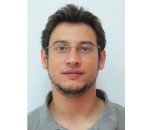
Biography:
Yevgeni is a PhD candidate at the Hebrew university of Jerusalem, Israel. He has been working in the field of mass spectrometry for 10 year specializing in ICPMS (inductively coupled plasma mass spectrometry). For the last 4 years Yevgeni is the isotopic lab manager in the department of geochemistry at the Geological Survey of Israel, where among other projects new techniques for isotopic analysis are being developed.
Abstract:
In this work we developed an analytical method for precise and accurate analysis of δ34S, δ81Br, and δ37Cl in individual anionic species by coupled ion chromatography (IC) and multicollector inductively coupled plasma mass spectrometry (MC-ICPMS). The method is based on the online separation and purification of ions by IC prior to their isotope analysis by MC-ICPMS. The developed technique significantly simplifies δ34S, δ81Br, and δ37Cl analysis in environmental samples. In cases when several anionic species of the same element are present in the sample, they might be analyzed in a single analytical run. The description of the method will be presented as well as examples of the applications to environmental studies such as isotopic analysis of perchlorate and different sulfuric species.
- fake
Session Introduction
Eladia MarÃa Peña-Méndez
Unidad Departamental de QuÃmica AnalÃtica, Spain
Title: New nanomaterials for enhancing detection of small molecules in cells by MALDI TOF mass spectrometry

Biography:
E.M. Peña-Méndez has completed his PhD in Chemistry from Universidad de La Laguna (ULL) (Canary Islands, Spain). She is professor and director of a research team focusing on develpment and application of nanomaterials in analytical chemistry and biomedicine at ULL. She has published more than 60 papers in reputed journals.
Abstract:
Matrix assisted laser desorption ionization mass spectrometry (MALDI MS) became a powerful platform for detection of small molecules in many analytical applications. However, in cell biology, precise detection of small molecules by MALDI MS is challenging due to high biological complexity of samples, unwanted interferences from salts and matrix, requirements of uniform sample deposition or simply minute amounts of the analyte. In the last years, the use of nanoparticles or nanocomposites as new matrices for improving the analysis of small molecules by MALDI TOF mass spectrometry demonstrated promising advantages. The Metal Organic Frameworks (MOFs), graphene oxides (GO), and/or gold nanoparticles (AuNPS) represent new nanomaterials with unusual physico-chemical properties and great analytical potential as matrices for MALDI MS. In this work we investigated properties of new generations of MOFs and their combinations with GO and AuNPs and demonstrated that they can be effective platforms for the adsorption of small biomolecules, facilitating the ionization in MALDI MS. Finally, application of MOFs, GO, AUNPs and/or their combinations significantly improved detection of small molecules by MALDI MS in complex experimental biochemical or biological systems, e.g. in cells.
Rossitza Lazova
California Skin Institute, USA
Title: Application of mass spectrometry imaging in the diagnosis of difficult melanocytic lesions
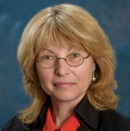
Biography:
Dr. Rossitza Lazova trained in Dermatopathology with Dr. A. Bernard Ackerman. She was an Associate-Professor of Dermatology and Pathology and Director of the Dermatopathology Fellowship at the Department of Dermatology at Yale University for 20 years. Currently she is a Director of Dermatopathology at the California Skin Institute in San Jose, USA. Her main interest are melanocytic lesions and particularly Spitzoid neoplasms and melanoma. Dr. Lazova founded the Yale Spitzoid Neoplasm Repository and introduced Mass Spectrometry Imaging as an ancillary method in the diagnosis of difficult melanocytic lesions. Dr. Lazova has directed numerous sessions at national and international meetings in the US and throughout the world and has given hundreds of presentations worldwide. She has over one hundred publications including two textbooks and numerous chapters. She is on the editorial board of many reputable scientific journals. Dr. Lazova served as Vice President of the International Society of Dermatopathology.
Abstract:
In a previous study we identified differences on a proteomic level between Spitz nevus (SN), a type of benign mole, and Spitzoid melanoma (SM), melanoma that histologically mimics SN. Five peptides, comprising a specific proteomic signature, were differentially expressed by the melanocytic component of SN and SM in formalin-fixed, paraffin-embedded tissue samples. We sought to determine whether mass spectrometry imaging (MSI) could assist in the diagnosis and risk stratification of Atypical Spitzoid Neoplasms (ASN), lesions that show histologic features of both, benign SN and SM, and for which a definitive diagnosis of benign or malignant cannot be made with absolute certainty.
We performed MSI in a large series of cases of ASNs with known clinical follow-up. In each case we compared the diagnosis rendered by MSI with the histopathologic diagnosis and also correlated the diagnoses with clinical outcome. Patients were divided into 4 clinical groups representing best to worst clinical behavior. The association among MSI findings, histopathologic diagnoses, and clinical groups was assessed. When analyzing ASNs, for which neither melanoma nor nevus was favored histopathologically, MSI appeared to be more accurate in predicting the benign character of ASNs than histopathology and correlated better with their clinical behavior. Histopathology often overdiagnosed either atypical features or malignancy. We found a strong association between the diagnosis of SM by MSI and an adverse clinical outcome when clinical group 1 (no recurrence or metastasis beyond a sentinel node) was compared with groups 2, 3, and 4 (recurrence of disease, metastases or death). In addition, the diagnosis of SM by MSI was statistically strongly associated with adverse clinical behavior. MSI analysis using a proteomic signature may be able to provide more reliable diagnosis and clinically useful and statistically significant risk assessment of ASNs, beyond the information provided by histology and other ancillary techniques.
Giovanni Meloni
University of San Francisco, USA
Title: Synchrotron Multiplexed Photoionization Mass Spectrometric Investigations in Combustion and Atmospheric Chemistry
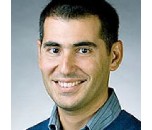
Biography:
Giovanni Meloni, Associate Professor and Von Soosten Chair, is a physical chemist. Prior to joining the University of San Francisco, Prof. Meloni carried out post-doctoral research at the University of California, Berkeley and at Sandia National Laboratories. In this research, he used state-of-the-art techniques, both experimental and computational, to study transition states, semiconductor clusters, and van der Waals species employing anion photoelectron spectroscopy, and hydrocarbon radicals using pulsed-laser photolytic initiation and continuous-laser absorption detection. Prof. Meloni's current research interests range from high-temperature physical chemistry to spectroscopic characterization of reaction intermediates important to atmospheric and combustion chemistry.
Abstract:
Synchrotron Multiplexed Photoionization Mass Spectrometry has proven to be a powerful and reliable experimental technique to probe reactions relevant to both combustion and atmospheric chemistry by characterizing products and intermediates, energetically via photoionization spectra and kinetically via time traces. The versatility of a side-sample flow tube reactor employing flash photolysis initiation of the reactions has been satisfactorily proven in recent years. The synchrotron multiplexed photoionization mass spectrometer at the Advanced Light Source (ALS) of Lawrence Berkeley National Laboratory will be described and specific examples will be presented. As a result of the multiplexing capabilities of this apparatus, each set of data comprises a three-dimensional data block of time, mass-to-charge ratio, and photon energy as function of ion intensity. The reaction is initiated when the photolysis laser is fired, i.e., this corresponds to the reaction starting time t0. The species generated in the reactions can be followed in time and energy to provide kinetic traces and photoionization (PI) spectra, which is a plot of the ion signal of a chosen mass-to-charge ratio versus the photon energy. The PI plots are of great importance in product identification because each species has specific Franck-Condon factors that translate into different shapes of the photoionization spectra. In addition, photoionization spectra not only assist in product identification, but also provide information relating to the relative concentrations of products of interest through the measurement of their photoionization cross-sections.
Patricia Dörr de Quadros
Federal University of Rio Grande do Sul , Brazil
Title: Tracking microbial potential of degrading polycyclic aromatic hydrocarbons, by CG-MS and qPCR
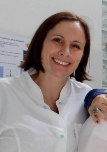
Biography:
Patricia Dörr de Quadros has completed his PhD in Soil Science from Federal University of RS / UFRGS (Brazil) and University of Florida (USA), where studied soil microbial diversity and abundance of different environments, including agricultural soils from Everglades/FL and Brazil, and degraded soils after coal mining. She has 4 years of postdoctoral study on fuels biodeterioration and oily sludge biodegradation, having published more than 15 papers in reputed journals. In February 2017, she started a postdoctoral research in the University of Toronto / CA, about phytoremediation of hydrocarbon contaminated soils (natural oil soaked soils).
Abstract:
The bioremediation of hydrocarbon-contaminated environments involves management of both biotic and abiotic factors, such as aeration, pH, addition of nutrients, temperature, etc. Regarding soil bioremediation, previous studies showed that low cost practices including aeration and setting soil pH to 7.0, can stimulate the soil microbiota to degrade hydrocarbons. Petrochemical oily sludge is a dangerous waste generated by petroleum refinery, and its accidental spill into the natural environment (soil, ocean, rivers) causes injury to animals and humans, although for some bacteria it is no more than nutrients. It happens due to a huge genetic diversity that allows bacteria to degrade xenobiotic molecules throughout a large set of metabolic pathways. Considering it, why do not take advantage of this natural process? The study of bacteria that are able to degrade oily sludge quicker can help on managing environmental issues, through biodegradation and detoxification of toxic molecules. Hydrocarbon biodegradation research have increased due to GC-MS and advanced molecular biology approaches. The aims of this study were to evaluate the potential of a Bacillus cereus to degrade PAHs in vitro beneath three oily sludge concentration (0%, 1%, and 6%), and also, point out the metabolic pathways involved in the process. 34 metabolites involved with PAHs biodegradation were measured by CG-MS. It was detected that Bacillus cereus inoculation reduced about 70% of the oily sludge’s PAHs added initially. This knowledge allows the selection of optimal biotic and abiotic condition to enhance controlled bioremediation processes.
E. Krishnakumar
Tata Institute of Fundamental Research, India
Title: Absolute cross sections for electron ionization of DNA and RNA bases
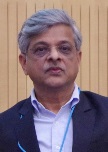
Biography:
E. Krishnakumar did his PhD from Physical Research Laboratory, Ahmedabad, India and postdoctoral work from Jet Propulsion Laboratory, CALTECH, Pasadena, USA. He has been at the Tata Institute of Fundamental Research since 1988 and is currently a Senior Professor there. He has worked on diverse areas of Atomic Collision Physic and has authored more than 100 papers in reputed journals. He is well known for his contributions to measurement of absolute cross sections for electron impact ionization and dissociative electron attachment and study of negative ion dynamics using momentum imaging.
Abstract:
Electron ionization cross sections of biological molecules are essential for modeling radiation damage so that accurate dosages of radiation can be applied in radiation therapy. However, reliable experimental data for many molecules are hardly available and obtaining theoretical data is difficult due to inherent complexity involved in modeling the process. In this context, we have developed a modified relative flow technique to obtain accurate partial and total ion cross sections by electron impact on molecules in solid form and with relatively low vapour pressure at room temperature. We have used this technique to obtain benchmark absolute partial and total ionization cross sections by electron impact on DNA and RNA bases and several other molecules of biological importance. The measurement techniques, the highlights of the cross section data and their comparison to the various theoretical calculations will be presented at the meeting.
Nasrin Hooshmand
Georgia Institute of Technology, USA
Title: The Plasmonic Spectroscopy of Homo and Heterodimers of Silver and Gold Nanocubes
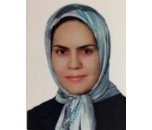
Biography:
Nasrin Hooshmnad received her Ph.D. in the field of physical chemistry and currently, as a Research Scientist II in the field of Nanotechnology and Nanoscience at Georgia Institute of Technology, she is studying the fundamental physical and chemical properties of plasmonic metal nanoparticles. She is calculating the physical properties of chemicals and useful new architecturally interesting materials especially for application in biological imaging, photothermal therapy, SERS, optical wave guiding, and sensing and bio-sensing .
Abstract:
Plasmonic nanoparticles made of Ag or Au received significant attention from researchers in this field as it showed unique properties when they interact with the electromagnetic radiation, primarily in the visible region. The localized surface plasmon resonance (LSPR) is an example for one such property. This results from the resonant excitations of the collective oscillations of their conduction band electrons. It well known as interparticle gaps are reduced, localized regions of intense electromagnetic fields known as “hot spots” form, which are of interest in surface-enhanced Raman spectroscopy (SERS). This is primarily due to the spatial overlap of the individual plasmonic modes, which induces the formation of hybridized collective plasmonic modes. At nanoscale separations, the hot spots produced in these composite frameworks exhibit noteworthy enhancements in Raman scattering, fluorescence, infrared absorption; which have been useful for a variety of applications. Substantial Raman enhancement can be generated, using larger aggregates experimentally. Using powerful numerical methods such as discrete dipole approximation (DDA), we can model the optical properties of the assembled silver and gold nanoparticles. We examined the changes in the nanocube surface plasmonic field distributions as the dimer separation was varied. At very short distances, the hot spot is located in between the adjacent faces and away from the corners of these faces. At larger separations, it moves towards the adjacent corners. We observed apparently anomalous behavior for the heterodimer. The E-field resulting from excitation of the Ag dominated plasmon resonance was significantly weaker than expected. The most likely explanation for these observation is that the silver plasmon mixes with the gold interband transition to form a hybrid resonance that produces weaker overall field intensity.

Biography:
Laure Menin received in 1997 her PhD degree in biochemistry, microbiology and cellular bioenergetics. She worked as a project manager in different Companies in Switzerland, first in the field of large-scale proteomics then in drug discovery and peptidomics analyses of insect hemolymph and venoms of poisonous animals. She is currently managing the Mass Spectrometry Facility of the Institute of Chemical Sciences and Engineering (ISIC) in EPFL, Lausanne.
Abstract:
Top-down protein structural analysis, increasingly used to assess drug-protein binding sites, benefits from high-resolution and high mass accuracy offered by Fourier Transform MS/MS. To improve localization of post-translational modifications and FMN-binding sites on a 19 kDa membrane protein (FMP), we implemented the following workflow on Orbitrap FTMS platforms. First, to increase sensitivity and dynamic range, we acquire a number (up to 10) of consecutive LC-MS/MS experiments (using HCD) from the same sample. Second, we record in parallel both standard mass spectra in .RAW format using original on-board data processing system (Thermo Scientific) and time-domain signals (transients) using an external high-performance data acquisition system (FTMS Booster X1). The transients are summed across all LC-MS/MS runs, processed with absorption mode FT, the mass spectra are re-calibrated and baseline corrected to generate an accurate peak list (using Peak-by-Peak software). Finally, we apply the in-house developed free-access ChemInfo.org algorithms for predicting and matching the experimental tandem spectra to theoretical fragment ions, in particular internal fragment ions which proved to be crucial for precise localization of FMN binding sites. This versatile tool allows fast and automatic matching of thousands of peaks from complex mass spectra. The localization of the FMN-binding site on the FMP protein was restricted to a string of four residues, among which the threonine was presumably the binding site. The results in terms of number and confidence of fragment ion assigned, similarity scores and localization of FMN binding sites were favorably compared to the classical top-down analysis using a single LC-MS/MS run.
Dong An
Fudan University, China
Title: Determination of low-ng/L level N-dimethynitrasamine in water by SPE-HPLC MS/MS
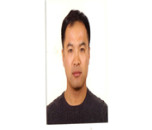
Biography:
Dr. Dong An has completed his PhD at the age of 27 years from Harbin Institute of Technology University, China and post-doc in Canada and the US. He is an associated professor in Department of environmental science and engineering at Fudan University. He has published more than 50 papers in reputed journals.
Abstract:
N-nitrosodimethylamine (NDMA), were identified as chloramination byproducts in drinking water. NDMA are known rodent carcinogens and probable human carcinogens, and so they are considered disinfection byproducts (DBPs) of public health concern. Several analytical techniques have been investigated for analysis of NDMA in water samples, including LC combined with UV detection, chemiluminescence (CL) combined with LC-UV, high-field asymmetric waveform ion-mobility spectrometry (FAIMS)-MS [68], HPLC-ion exclusion-UV-vis. However, the determination of low-ng/L level NDMA is not accurate. NDMA are typically detected in drinking water at low-ng/L concentrations, demanding highly sensitive analytical techniques to monitor and control them. A solid-phase extraction (SPE) ultra-high-performance-liquid chromatography coupled to a triple quadrupole mass spectrometer
(HPLC–MS–MS) equipped with APCI ionization source method was established to determine the concentration of NDMA in water. The experiment results showed that, APCI was able to better realize the ionization of NDMA and six other N-nitroamine than ESI. In MRM acquisition mode, ion of m/z 75.1 was determined as precursor ion,in which product ion of m/z 58.2 and 43.3 were determined as qualitative and quantitative ions. The relative coefficient of standard curve (1-50μg/L) is 0.996 with pure water as solvents. The recovery rate is more than 80% and the method of determination (MOD) is 1.12-3.11 ng/L when water samples were concentrated by 400 times with coconut active charcoal as adsorbent. This method was applied to determine the concentration of NDMA for source water and treated water. The concentration of source water is lower than LOD. The average concentration of NDMA for treated water in Shanghai water source is 10.65-12.02 ng/L without significantly seasonal change, which is probably related to PAM dosage. The successful determination of NDMA by LC MS/MS provides a new method for low-ng/L level NDMA as a supplement.
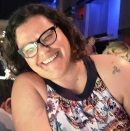
Biography:
Sofia Nikolaou has completed her PhD at the age of 29 years from University of São Paulo (Brazil). She is an inorganic chemist, associated professor at University of São Paulo and leader of a research team focusing on synthesis, spectroscopic properties and biological activity of monomeric and supramolecular systems based on ruthenium compounds. She has published more than 40 papers in reputed journals and owns a patent on anti-inflammatory activity of ruthenium – NSAIDs compounds
Abstract:
The use of mass spectrometry with ESI ionization can be considered already a classic instrumental technique of characterization, with applications ranging from organic chemistry to biomedicine. However, it is less common for the user to extrapolate its range of applications for inorganic samples. It is still usual today to apply ESI/MS experiments exclusively to identify the molecular species of interest; but it is much less common the use of this technique and induced fragmentation experiments in the investigation of the properties of inorganic compounds and their structural characterization based on diagnostic dissociation patterns. This presentation is intended to show a variety of uses for ESI/MS and ESI/MS-MS experiments focused on the characterization of monomeric species and supramolecular structures based on ruthenium complexes, such as the one shown below. It will be presented analysis of charged species spectra and their characteristic dissociation patterns in the gas phase, which undoubtedly allow to propose their extended structures; the use of isotopic distribution profiles for the assignment of fragments charges and charge partition phenomenon; and, in all cases, the ability to investigate the relative binding energy between the metal centre and the various organic and inorganic groups present in the structures. This latter information is particularly important in planning properties such as controlled release of functional molecules such as nitric oxide for medical applications.
Amit Kumar Mandal
St. John’s Research Institute, India
Title: Conformational dynamics of human hemoglobin in live red blood cells probed by hydrogen/deuterium exchange based mass spectrometry
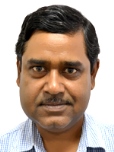
Biography:
Prof. Amit Kumar Mandal has completed his PhD from Bose Institute, India. After completion of his postdoctoral research, he joined St. John’s Research Institute as Associate Professor in 2007. His research is focused on mass spectrometry based clinical proteomics of medically important conditions such as Hemoglobinopathy, Major depressive disorder, Multiple Sclerosis, Prostate Cancer and also on Nano particle induced toxicity. Using isotope exchange mass spectrometry and other spectroscopic tools, he investigates structural biology of clinically important molecules. He has more than 30 publications and was awarded with Centre of Innovation by Waters Corporation in the year 2013.
Abstract:
To investigate the mechanism of various cellular events it is crucial to understand the structure-function correlation of biological macromolecules within a live cell. Conventionally, different spectroscopic tools such as NMR, fluorescence, circular dichroism etc. that are used to visualize protein structure are chromophore specific which are identical across all proteins. Therefore structural studies are restricted to purified molecules in vitro. However, due to the molecular crowding inside a complex cellular milieu, in vivo and in vitro environments are radically different. Exploiting permeability of D2O across cell membrane, hydrogen/deuterium exchange (H/DX) was executed inside in side live red blood cells (RBCs) and subsequently the change in conformation dynamics of human hemoglobin associated with its oxygenation in side live RBCs was monitored. Using mass spectrometry, H/DX kinetics of globin polypeptide backbone amide hydrogens of human hemoglobin inside RBC in both oxy and deoxy states was recorded. The obtained kinetic parameters were analyzed using the method of initial rates and the conformational change on deoxy to oxy transition of hemoglobin was explored inside live RBCs. Due to very high abundance of hemoglobin in RBC, it was possible to correlate the observed in vivo conformational dynamics with the structure-function correlation of hemoglobin reported in vitro. The novelty of present method lies in its applicability to investigate change in conformational dynamics of human hemoglobin associated with its oxygenation in its endogenous environment. Various biological processes like ligand binding, folding and post-translational modification of proteins inside a living cell irrespective of its location and structural complexity.
Kapendra Sahu
National Dope Testing Laboratory, India
Title: A simple, rapid & cost effective method for the determination of EtG in hair by using liquid chromatography–tandem mass spectrometry (LC–MS/MS)
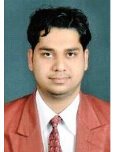
Biography:
Dr. Kapendra Sahu has completed his PhD at the age of 29 years from Jamia Hamdard University (India). He is Scientist B of a research team focusing on Anti-Doping Science & Hair Testing at National Dope Testing Laboratory, New Delhi. He has published more than 28 papers in reputed journals and serving as an editorial board member of repute.
Abstract:
Background: In recent years, hair has become an alternative biological specimen for drug testing within the field of doping in sports, forensic toxicology & workplace testing. Hair testing can complement technique for conventional blood and urine analysis because it prolongs the detection window and by segmental analysis, permits discrimination between long-term therapeutic use and acute exposure.
Aims: The present study containing a simple, rapid & cost effective method for the determination of EtG in hair was developed using liquid chromatography–tandem mass spectrometry (LC–MS/MS).
Methods:Hair was successively washed with dichloromethane for 5 minutes and then with methanol for 2 minutes. The hair was then dried at room temperature and cut into fine segments with a scissor. Ten nanograms of internal standard (EtG-d5) and 2 ml of distilled water were added to 50 mg hair fine segments. The extraction was performed using an ultrasonic incubation for 2 h. These samples were incubated overnight at ambient temperature. After incubation, again ultrasonicated for 2 minutes and then centrifuged at 3500rpm for ten minutes. The supernatant was decanted & dried under nitrogen (N2). The obtained residue was reconstituted in 40µl of 0.1% formic acid. Twenty microliters of extract were injected into the LC–MS/MS system.
Result & Discussion: The best separation was achieved using a C-18 column (Inertsil, 50mm x 4.6mm x 5µ) and a mobile phase comprising of 0.1% formic acid : acetonitrile in a gradient mode, with flow rate and temperature being 0.6 ml/min and 30ºC, respectively. The run time of the developed method is 6 minutes. The LOQ and LOD were found to be 10 pg/mg & 3 pg/mg respectively.
Conclusions: The method allows the determination of Ethyl Glucuronide (EtG) ie., metabolite of alcohol in hair by LC-ESI-MS/MS in concentrations from 10 pg/mg (quantitatively) and 3pg/mg (Quantitatively), respectively, with an extremely reduced total time of analysis of 6 minutes. This validated method was successfully applied and qualified for the quantitative determination of EtG on proficiency test (PT) samples receives from Society of Hair Testing (SoHT).
Peter Mikuš
Comenius University in Bratislava, Slovakia
Title: Determination of Drugs for Inflammatory Bowel Disease Treatment in Pharmaceuticals by Capillary Electrophoresis Hyphenated with Tandem Mass Spectrometry
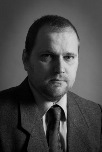
Biography:
Peter Mikuš has completed his PhD at the age of 30 years from Comenius University (Slovakia). He is researcher, university teacher, associated professor, and director of the Toxicological and Antidoping Center at the Faculty of Pharmacy Comenius University in Bratislava (FPCU) as well as head of the Department of Pharmaceutical Analysis and Nuclear Pharmacy FPCU. A research team of P.M. is focused on the development, validation and application of advanced hyphenated analytical methods, based on a combination of 2D-separation and spectral (UV-VIS, MS/MS) techniques, for pharmaceutical and biomedical research. He has published more than 70 papers in reputed CC journals.
Abstract:
A capillary electrophoresis (CE) method hyphenated with tandem mass spectrometry (triple quadrupole, QqQ MS) was developed for the simultaneous determination of six selected drugs used in Crohn’s disease treatment, namely azathioprine, 6-thioguanine, 6-mercaptopurine, mesalazine, prednisone and allopurinol. A 10 mM ammonium acetate adjusted at pH 9 by 3% ammonium hydroxide and including a 5% methanol addition was used as an optimum background electrolyte (BGE). The optimum BGE provided both the baseline electrophoretic separation of the drugs and highly compatible connection of CE to the electro spray ionization (ESI) interface. The optimized working conditions were favorable for the selective and sensitive QqQ MS detection of the separated compounds according to their mass-to-charge (m/z) ratios. The proposed method was validated in terms of precision (RSDs for the repeatability of migration times and peak areas of the analyzed drugs were less than 1.66% and 6.06%, respectively), linearity (determination coefficient ranged in the interval of 0.9987 - 0.9995), limits of quantitation (sub mg.mL-1 levels) and accuracy (mean recoveries of all the analytes in pharmaceutical matrix ranged in the interval of 98.23 - 101.2%). The CE-ESI-QqQ MS method is fast, simple, selective, precise, accurate, and was successfully applied to a highly reliable determination of the targeted drugs (for the treatment of inflammatory bowel disease, IBD) in commercial pharmaceuticals (tablet dosage forms). This work was supported by the projects VEGA 1/0873/15, KEGA 022UK-4/2015, APVV-15-0585 and carried out in the Toxicological and Antidoping Center at the Faculty of Pharmacy Comenius University in Bratislava.
Zeid Abdullah Alothman
King Saud University, Saudi Arabia
Title: UPLC-MS method for the simultaneous determination of phenolic constituents in honey using multiwalled carbon nanotubes as solid phase sorbents
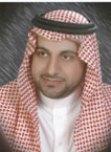
Biography:
Zeid Abdullah Alothman is working as a professor at the Department of Chemistry at King Saud University, Riyadh, Saudi Arabia. He received his BSc in 1997 from King Saud University and PhD degree in 2006 from Oklahoma State University, Stillwater, Oklahoma State, USA. His research has been focused on the application of chromatography separation methods in environmental, chemical and pharmaceutical studies, safe pollutants removal, synthesis of new silica based materials for separation (packing materials for chromatographic columns). Development of Iron Nano-Impregnated Adsorbent for Fast Removal of Fluoride from Water, etc. He has contributed in so many other fields as well and all his outstanding achievements. Rather than this, he has guided few PhD and Masters Students and published book chapter in the various field of chemistry and has been published few books as editor as well.
Abstract:
An UPLC-MS method has been developed for the simultaneous separation, identification and determination of 22 phenolic constituents in honey from various floral sources from Yemen. Solid-phase extraction was used for extraction of the target phenolic constituents from honey samples, while multiwalled carbon nanotubes were used as solid phase adsorbent. The chromatographic separation of all phenolic constituents was performed on a BEH C18 column using a linear gradient elution with a binary mobile phase mixture of aqueous 0.1% formic acid and methanol. The quantitation was carried out in selected ion reaction monitoring acquisition mode. The total amount of phenolic acids, flavonoids and other phenols in each analyzed honey was found in the range of 338-3312, 122-5482, and 2.4-1342 μg/100 g of honey, respectively. 4-Hydroxybenzoic acid was found to be the major phenolic acid. The main detected flavonoid was chrysin, while cinnamic acid was found to be the major other phenol compound. The regeneration of solid phase adsorbent to be reused and recovery results confirm that the proposed method could be potentially used for the routine analysis of phenolic constituents in honey extract.
Jiuzhong Yang
University of Science and Technology of China, China
Title: On-line photoionization mass spectrometry and its applications on catalysis, pyrolysis and matrices analysis
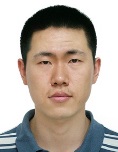
Biography:
Jiuzhong Yang has completed his PhD at the age of 28 years from University of Science and Technology of China. He is an engineer of University of Science and Technology of China (USTC), and the director of the Combustion Division of National Synchrotron Radiation Laboratory (NSRL) focusing on the on-line detection of intermediates formed in combustion and pyrolysis process by using photoionization mass spectrometry. He has published more than 20 papers in reputed journals.
Abstract:
Photoionisation mass spectrometry (PIMS) has become a prominent technique for many years. Owing to its favorable characteristics (i.e., softness, no polarity discrimination, and reduced ion suppression) in contrast with other available ionization sources such as electrospray ionization, PIMS has been widely adopted by scientists for many mass spectrometric applications. Recently, PIMS has been applied for the online analysis of the chemical components and their highly dynamic processes during pyrolysis and combustion of various fuels. Compared with traditional “hard” electron ionization methods for the gaseous components analysis, photoionization produces little or no fragments, making the identiï¬cation and interpretation of complex ingredients in real-time possible. In this work, both commercial available discharge Kr lamp and synchrotron radiation with high brightness and wide energy spectrum were used as light sources for on-line PIMS studies, at the mass spectrometric end station of National Synchrotron Radiation Laboratory (NSRL) of China. Our work are mainly focused on three aspects: (1) heterogeneous catalytic reactions, such as Fischer-Tropsch synthesis and oxidative coupling of methane. (2) pyrolysis/combustion of biomass, municipal waste polymers, and cigarettes. (3) fast qualitative and quantitative analysis of chemicals in complex matrices, such as food, soil, and natural products.
Amarjit S. Sarpal
Indian Oil Corporation Ltd., India
Title: Study of Biodiesel potential of Microalgae Biomasses by MS and NMR Spectroscopic techniques
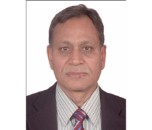
Biography:
Abstract:
Microalgae are sustainable sources of biofuels, which has gained attention due to fast depletion of petroleum reserves. Microalgae are unicellular photosynthetic organisms, that require primarily three components to produce biomass, i.e., water, CO2 and sunlight with relatively higher photosynthetic efficiency of 3–8% against 0.5% for terrestrial plants. The microalgae grow in aquatic environment of diverse sources of water such as sea, brackish, ponds and industrial waste water. Microalgae biomass is comprised of neutral (triacyl glycerides; TAG, free fatty acids; FFA) and polar lipids (glyceroglyco/phospholipids). Neutral lipids are potential sources of biodiesel and food products due to their similarity with regular vegetable crops with regard to saturated and unsaturated fatty acid profile (C14 to C22). Besides neutral lipids and polar lipids (glyceroglyco/phospholipids), various high value co-products such as epoxy esters, pigments, antioxidants, β-carotenes, polysaccharides, and vitamins can be extracted from microalgae biomass. Poly unsaturated fatty acids such as α – linolenic (ω n-3), γ– linolenic (ω n-6), DHA and EPA are abundantly cultivated by certain microalgae species, and find extensive application as food supplements due to their high nutritional value. In the proposed research topic, the role of sophisticated analytical techniques such as MS (ESI), GC-MS and NMR have been explored to determine composition and quality aspects such as triglycerides (TG) and free fatty acid (FFA) content, fatty acid profile including poly unsaturated fatty acid (ω n-3, n-6 PUFA), saturated (SFA, solid fat) and unsaturated (UFA) fatty acid content, and iodine values with an objective to explore biodiesel potential of microalgae biomasses cultivated in the specific culture media.
Marek M. Kowalczuk
University of Wolverhampton, UK
Title: Multistage Mass Spectrometry for Characterization of Bioactive Oligoesters
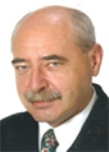
Biography:
Marek M. Kowalczuk received his Ph.D. degree in 1984 from the Faculty of Chemistry, Silesian University of Technology, and D.Sc. degree in 1994 at the same University. He was a visiting lecturer at the University of Massachusetts in Amherst, MA, U.S.A. in 1990 and Marie Curie EU fellow at the University of Bologna, Italy. Currently, he is professor at the University of Wolverhampton, UK and at the Centre of Polymer and Carbon Materials, Polish Academy of Sciences, Zabrze, Poland. He is the author and co-author of over 140 scientific papers and a score of patents.
Abstract:
Chemical modifications of bacterial polyhydroxyalkanoates (PHA) in order to introduce functional groups, that cannot be easily achieved by bioconversion processes, is a valuable challenge since chemically modified PHA can be utilized as multifunctional biomaterials. On the other hand, incorporation of bioactive compounds into the β-lactones structure may lead to (homo) and (co)oligoesters with a bioactive moiety covalently linked as pendent groups along an oligomer backbone. This synthetic strategy enables preparation of the natural PHA analogues with ibuprofen pendant groups, pesticide moieties and recently antioxidants used in cosmetics. Contemporary reports on the molecular level characterization of bioactive oligomers derived from natural PHA and their synthetic analogues, formed through anionic ring-opening polymerization (ROP) of β-substituted β-lactones, will be presented. Mass spectrometry studies of such oligomers will be discussed. The undertaken approaches enable design of novel biodegradable and bioactive oligomers for diverse applications in medicine, cosmetic industry and agrichemistry.
Vladimir Zaichick
Medical Radiological Research Centre, Russia
Title: Role and Place of Mass Spectrometry in Medical Elementology - a New Scientific Discipline
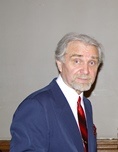
Biography:
Vladimir Zaichick is a Nuclear Physicist, Biologist and Researcher. He obtained his MS in 1966 from the Moscow Institute of Engineering Physics, his PhD (nuclear physics) in 1972 from the Institute of Biophysics, Moscow, and his DSc (radiobiology) in 2011 from Medical Radiological Research Center, Obninsk, Russia. He is a full professor of radiobiology, a fellow of the British Royal Society of Chemistry (FRSC) and a Chartered Chemist (CChem) since 1996. He has made 141 presentations at seminars and conferences, published more 300 papers in reputed journals and is serving as an editorial board member of four scientific journals.
Abstract:
Since the times of the alchemists, chemical elements have been investigated in human organs, tissues and fluids. During the last decades the number of publications devoted to them increased considerably. Today, the number of published articles may be estimated at about twenty thousands, and the amount of monographs about hundred. This vast amount of data, dealing with the importance of elements acquired in different fields of scientific research and practical life, puts forward the need for a synthetic approach in element research. At the end of the 20th century, a new scientific discipline appeared, focused on the role of chemical elements in human body under physiological and pathological conditions. This new field of interdisciplinary study has been named: “Medical Elementology” (from lat. “medicina” and “elementum”). A lot of medical doctors, toxicologist, ecologist, chemists and physicist who were involved in the study of chemical elements in medicine and biology had thus the feeling that they were working in new self-sufficient scientific sphere. As a rule, all scientific disciplines are characterized, first of all: 1) by the subject of study; 2) by accepted postulates; 3) by research methods; 4) by methods of quality control; 5) by terms and definitions. Instrumental analytical methods such as non-destructive NAA and EDXRF as well as destructive AAS, ICP-AES and ICP-MS are the main research instruments in Medical Elementology. Role and place of ICP-MS will be discussed using our results obtained in the age-dependence studies of 67 chemical element contents in human bone, hair and prostate gland.
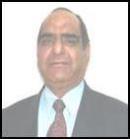
Biography:
Prof Dr Satish C Puri earned his PhD in 1973 in Bio-organic Medicinal chemistry, PDF at University of West Virginia Morgantown and National Science Foundation Fellow at University of Minnesota Minneapolis USA. He worked for more than 35 years (1972-2007) in CSIR-IIIM Jammu-180004 India. Puri had been CSIR-DAAD Visiting Scientist number of times to University of Dortmund Germany, University of Manchester UK. He supervised 35 PhD fellows and have to his credit about 200 peered reviewed international publications patents and book chapters in the field anticancer therapeutics, Biomolecules from Fungal Endophytes, radioprotective and on editorials board of number of International journals. Presently teaching as Professor of Clinical Biochemistry in Indian Medical Institutes after superannuation from CSIR.
Abstract:
Chemical revolution started in the last century by recognition of chemical structure and development of method of isolation, characterization. Modern chemistry lays more emphasis on material biological environments health and medicines. Environmental concerns have forces chemist to search remedies for imperiled planet. The application oriented modern scientific endeavors are not a single scientific disciplines, therefore promoting multidisciplinary resources and emphasizing sustainability shall be a root of any chemical design. Drug discovery is one of such frontiers area which is originated in chemical sciences but feed on numbers of disciplines for accomplishing any design. Despite advancement in modern scientific methodologies and computer assisted de-Nova drug designing, continue to be mainstay of discovery of new leads for drug designing. Presentation enlists program modern target for anticancer drug program includes examples from our work of some cytotoxic biomolecules with emphasis on environmentally benign protocols and natural products in conventional chemotherapy regimen. Calling of visionaries, game changers and paradigm shifters in biochemical ready to take the world most challenging diseases needs and quest for cures are committed to begin the world research-intensive biopharmaceuticals for advance cancer.A plethora of natural products represent an invaluable gold mine of pharmacophores. Fungal endophyte is a diverse class microorganism that colonizes plant without any symptoms of disease. Fungal endophytes display a broadspectrum of biological activities viz; tubulin, topoisomerase, angiogenesis inhibitors, immunomodulators, radio-protectors and antioxidants etc. Endophytes proficiency has inspired us to detection and characterization of biometabolites like taxoids, podophyllotoxins, camptothecinoids, combretstatins, epofornin phialmusltin, ramlosin and diaploic acid from microbes using LC/ESI-MS/MS (Tandem) spectrometry in low levels of detectable of anticancer bimolecular in last decade.
Ali Mohammad-Djafari
CNRS, France
Title: Inverse problems in Mass Spectrometry and Bayesian solutions
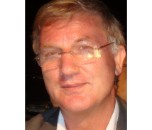
Biography:
Ali Mohammad-Djafari received the B.Sc. degree in electrical engineering from Polytechnic of Teheran, in 1975, the diploma degree (M.Sc.) from Ecole Supérieure d'Electricit(SUPELEC), Gif sur Yvette, France, in 1977, the "Docteur-Ingénieur" (Ph.D.) degree and "Doctorat d'Etat" in Physics, from the University of Paris Sud 11 (UPS), Orsay, France, respectively in 1981 and 1987.He was Assistant Professor at UPS for two years (1981-1983). Since 1984, he has a permanent position at "Centre national de la recherche scientifique (CNRS)" and works at "Laboratoire des signaux et systèmes (L2S)" at Centrale-Supélec. He was a visiting Associate Professor at University of Notre Dame, Indiana, USA during 1997-1998. From 1998 to 2002, he has been at the head of Signal and Image Processing division at this laboratory.
Abstract:
There have been recent advances in different techniques of Mass spectrometry. However, in many of these techniques there are common mathematical framework: Inverse problems. In this work, a few of these inverse problems are presented and an overview of the methods to handle them is given. The Bayesian inference approach is a very useful approach to handle these problems as it give the possibility to account both for prior modeling of the signals and images and for the uncertainly associated to the measurement process. It also gives the necessary tools to estimate the hyper parameters and the remaining uncertainties in the proposed solution. To illustrate this, we take the deconvolution problem which is one of the main inverse problems in mass spectrometry and go through the different regularization and Bayesian inference methods and compare their relative performances.
Anna Konopka
University of Warsaw, Poland
Title: Heteroelement-incorporated full-length protein standards for protein quantification by mass spectrometry
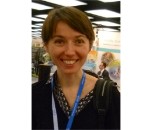
Biography:
Anna Konopka has completed her PhD at the age of 29 years from
Abstract:
Among numerous technologies to study the proteome, mass spectrometry-based techniques are capable to provide the most accurate and reproducible quantitative data. Proteomic studies can provide two types of data: relative and absolute. For absolute quantification suitable standards are required. Two novel approaches, named RSQ&RIQ (Recombinant Selenium Quantified & Recombinant Isotope-labelled and Quantified) and [Sec-to-Cys]selenoprotein standards, for production of full-length protein standards, which are quantified very accurately, are presented. In the RSQ&RIQ strategy standard protein production is achieved by cell-free E.coli protein expression system with incorporation of selenium and stable isotope-labelled amino acids (e.g. 13C/15N-labelled arginine and/or lysine) in RSQ and RIQ standard, respectively. RSQ is accurately quantified by ICP MS via selenium detection and is then used as a standard for quantification of RIQ by LC-
Tesfaye Zerihun
Addis Ababa University, Ethiopia
Title: Phytochemical screening of the exudate of Aloe otallensis and its effect on Leishmania donovani Parasite
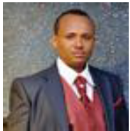
Biography:
Abstract:
Yang Lu
State Key Laboratory of Kidney Diseases, China
Title: Screening new urine biomarkers of IgA nephropathy by proteomics

Biography:
Dr.Yang Lu is a nephrology researcher in China PLA general hospital in Beijing of China. He gained his master degree in 2007 and doctor degree in 2010 from Chinese PLA Postgraduate Medical School. Dr. Lu works in Division of Nephrology of PLA general hospital for over 15 years and keeps research on the mechanism of mesangial proliferation. His main work focus on explore the molecular pathway in mesangial cell proliferation in the animal nephrology models by proteomics and genomics and published more than 30 papers in reputed journals.
Abstract:
IgA nephropathy (IgAN) is one of the most common primary glomerular diseases and the main cause of chronic kidney disease(CKD) and end-stage renal disease in the world. In this study, we screened the protein profiles of IgA nephropathy by LC-MS/MS to find potential urine biomarkers for IgA. The second morning urines from Twenty-four IgA patients (20 to 50 years old) were selected,and thirty healthy people second morning urines between 20 to 50 years old were selected as control. Label free LC-MS/MS were performed to screen out differentially expressed proteins and ELISA was applied for validation. Total 317 differential urinary proteins were found in IgAN patients with 152 upregulated and 165 downregulated. GO analysis and pathway enrichment results showed that these differential proteins were mainly involved in lipid metabolism,blood coagulation and thrombosis,iron metabollism,activation of complement system,call adhesion,cell motility,calcium signal pathway and MAPK signal pathway. ELISA results confirmed that complement C3,Trasnferrin and ceruloplasmin were all increased significantly in IgAN group. More importantly, urine TF increased more than 100 times in IgAN groups, which could be served as pre-diagnosis marker and urine complement C3 was positively related to the 24-hour urinary protein quantity, which could be served as disease progression marker. In conclusion, we explored the urine protein profiles in IgAN and screened two important potential biomarkers for IgAN: Transferrin and C3, which help to improve the diagnosis and therapy of disease.
Barbara Prandi
University of Parma, Italy
Title: The role of mass spectrometry in understanding and preventing food allergies
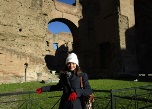
Biography:
Dr. Barbara Prandi is postdoctoral research fellow in food chemistry at the Department of Food Science of the University of Parma (Italy).She obtained her PhD in Food Science and Technology from the University of Parma in 2014, with a thesis entitled “wheat allergies: a peptidomic approach”. From 2014 she works at the Department of Food Science at the University of Parma. Her research interests deal with the characterization of the nitrogen fraction of complex food matrices and study of the bioactive properties, allergens characterization and analytic tools for authenticity assessment.
Abstract:
Food allergies are adverse reactions to certain food proteins that occur in previously sensitized (IgE mediated) or genetically predisposed (not IgE mediated) subjects. For the severity of these reactions the European Commission approved the Directive 2007/68/EC, which lists all the allergenic foods that must be labelled in food products. Allergen detection methods can be basically divided into PCR-based methods and ELISA-based methods, but in the recent years also mass spectrometry is increasing its diffusion for allergen analysis. Identification of marker peptides allows an extremely specific quantification of allergenic proteins. This approach was used to quantify both single proteins, like the wheat allergens CM3, and complex protein mixtures, like gluten proteins. Mass spectrometry is also a useful technique to understand food allergy mechanism, for example by determining the resistance of different food allergens to gastrointestinal digestion. The higher allergenicity of peach LTP can be explained on the basis of its higher resistance to proteolysis (30% of intact protein at the end of the digestion) compared to apricot LTP (9% intact protein). Celiac disease related peptides were also identified and quantified using the isotopically labeled internal standard method, demonstrating that different wheat lines can produce a significantly lower amount of immunogenic peptides upon digestion. On the opposite, other wheat allergens, such as CM3, are more affected by environmental condition. Mass spectrometry has thus a fundamental role in the study of food allergens, both from the safety perspective (as a tool for allergen detection) and in understanding the molecular features of food allergies.
Shahzad Ahmad
Hamdard University, India
Title: Recent Applications of Nano-LC-MS in Molecular Toxicology

Biography:
Shahzad Ahmad has completed his Master of Science in Forensic Science at the age 23 from Osmania University, Hyderabad (India). He served as ‘consultant for forensic science’ at Scope eKnowledge Centre, Pvt Ltd, Chennai, India and pursuing PhD (Toxicology) in the Department of Medical Elementology and Toxicology, Jamia Hamdard, New Delhi, India. He has been awarded Basic Research Fellowship (Senior Research Fellow) from University Grant Commission, Government of India. He has published three research papers in reputed journals and also serving as reviewer for some journals.
Abstract:
Endocrine disrupting chemicals (EDCs) are synthetic compounds used for diverse range of application and interfere with endocrine system through various ways. Accordingly, the endocrine disruption is one the focal area of toxicology. 2D nano liquid chromatography coupled with mass spectrometry (nano-LC-MS) recently attracted the notion of molecular toxicologists due its role in proteomic analysis. Proteomic analysis is the keen interest of molecular toxicologists to understand the toxicity mechanisms of EDCs and other toxicants. Enhanced sensitivity is the main advantage of 2D nano-LC-MS which facilitates the more concentrated bands of peptide in MS offering the determination of low abundant compound in limited sample. Molecular targets of EDCs and other toxicants include various biochemical indices such as proteins or enzymes, therefore the proteomic analysis on exposure to various EDCs helps to find the toxicity mechanisms of these toxicants. In our previous research, we virtually found the interactions of some EDCs with the biochemical indices of glucocorticoid biosynthetic pathway which is the main pathway of adrenal cortex, indicating the potential of EDCs to inhibit the various proteins of adrenal gland. The proteomic analysis of adrenal gland in response to EDCs by 2D nano-LC-MS may reveal the toxicity mechanism of EDCs and helps in risk assessments. Therefore, in the same way 2D nano-LC-MS shows the potential to become the powerful research tool in the field of molecular toxicology.

Biography:
Abstract:
Marine benthic crab proved a success in heavy metal detoxification and accumulation at its tissues. The present work investigates accumulation of lead, copper, zinc and cadmium in gills, carapace and hepatopancreas of the marine crab Metapograpsus messor inhabiting mangrove area at Kosseir, Hurghada, Red Sea. Heavy metal analysis was performed on atomic absorption with special cathode lamb for each metal. Metal bioaccumulation in hepatopancreas was higher than gills followed by carapace. Based on bioconcentration factor, heavy metal bioaccumulation at examined crab tissues was ranked as follows; Cu>Zn> Pb>Cd. The results were discussed to highlight the route of entry of heavy metals into crab tissues and to evaluate the efficiency of Metapograpsus messor as biomonitor for heavy metal pollution in mangrove habitat at Kosseir, Red Sea.
Guang-Hui Zhu
Shantou University Medical College, China
Title: Time-dependent weathering of puparial hydrocarbons in the field in Boettcherisca peregrina: for determining the time of death
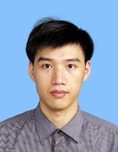
Biography:
Guang-Hui Zhu has completed his Doctor of Agriculture from Zhejiang University, China. He is forensic scientist, associated professor in the Department of Forensic Medicine, Shantou University Medical College, China. For over 18 years, his researches have focused on forensic entomology, to explore novel methods for determining the postmortem interval. Especially, he has proposed a new method for determining the late postmortem interval according to the regular weathering of puparial hydrocarbons of necrophagous flies in death scene.
Abstract:
Time of death (TOD) is usually estimated based on corpse phenomenon in the early postmortem stage, and on the development of necrophagous flies in the late postmortem stage. However, after the adult emergence, the latter is not useful any more. Our previous studies found that composition of puparial hydrocarbon had significantly regular time-dependent changes during the weathering in the field in Chrysomya megacephala and C. rufifacies, indicating that puparial hydrocarbons have a great potential for determining the TOD in the late decomposition stage of corpses. Here SIM mode of GC-MS was used to quailitify the time-dependent changes of puparial hydrocarbons in the field in Boettcherisca peregrina in the Autumn, 2013. We found that nearly all of the hydrocarbons decreased in the abundance during the 90-d weathering. Most of the peaks shared similar weathering profile. Their abundance decreased significantly during the first 10 days, changed hardly during the next 10 days or so, and decreased rapidly in the next 20 to 30 days, then changed very few. Even so, during the last 10 days, some significant changes still can be detected. Generally, most of the hydrocarbons weathered linearly during the first 40 days, and the weathering rate was found to correlate with hydrocarbon classes and ECL. Additionally, the specific weathering profile of the hydrocarbons is considered to correlate with the corresponding relative low temperature weather process during the weathering. Together with those in other two species flies, these results show that puparial hydrocarbons have a great value for determining the TOD.
Antonio Veloso Fernández
University of the Basque Country, Spain
Title: Combination of SEC & MALDI techniques for characterization of the continuous phase in dispersion polymerization
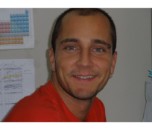
Biography:
Dr. Antonio Veloso has completed his PhD at the age of 29 years from University of the Basque Country (UPV/EHU, Spain). The research of his thesis was mainly focused on the detection of drugs and metabolites by MALDI TOF mass spectrometry using IMS technique. Since 2012, he is the person specialized and in charge of the characterization of polymers synthesized in POLYMAT research team by MALDI mass spectrometry. He has published more than 20 papers in reputed journals and he is also working as associated professor in UPV/EHU since 2015.
Abstract:
Dispersion polymerization is one of the most attractive dispersed phase polymerization techniques to synthesize nano- and microparticles, since it allows the synthesis of particles with narrow and broad size distributions from a single polymerization step. Dispersions of latex particles in polar and non-polar solvents are important materials in several areas, such as coatings, toners, column packing materials for chromatography, printing plates for lithography, sensors for biomedical and biochemical analysis... Most of the works carried out to understand this type of polymerizations mechanism are related to the study of stabilizer type and concentration, continuous phase composition and type of comonomer. Nevertheless, there are few works related to the characterization of the polymers formed in the continuous phase (also known as the serum). In this work, the dispersion copolymerization serum of styrene (St) with two different comonomers acrylonitrile (AN) and methyl methacrylate (MMA) in 1-propanol/DDI water medium carried out using polyethylene oxide macromonomer as stabilizer was studied. The serums of the latexes were characterized in terms of molar mass and composition by the combination of Size Exclusion Chromatography (SEC) and Matrix Assisted Laser Desorption Ionization Time of Flight Mass Spectrometry (MALDI-TOF MS). It was found that unreacted macromonomer was present in both copolymer systems. However, in the case of the copolymerization with AN besides the presence of the macromonomer there were also some pAN oligomers. This work demonstrates that the combination of SEC-MALDI techniques can be a powerful strategy for identifying the different species present in the continuous phase in dispersion polymerization.
Inhee Choi
Korea Institute of Nuclear Safety, South Korea
Title: Determination of ultra-trace level of Pu isotopes in seawater sample using Multi Collector Inductively Coupled Plasma Mass Spectrometry (MC-ICP-MS)
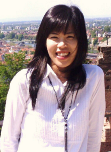
Biography:
Inhee Choi earned PhD degree in chemistry.Currently working at Korea Institute of Nuclear Safety (KINS) as a senior researcher in the field of the analysis of infinitesimal long-lived radioactive isotopes in environmental samples uig MC-ICP-MS combined with a chemical separation purification
Abstract:
A method is presented for the preparation of environmental materials (seawater) and their accurate analysis, by multiple collector magnetic sector ICP-MS, for the isotopic composition of Pu. Pu isotopes concentration is extremely low and U(uranium)/Pu ratio is quite high, analysis of Pu in the environmental seawater sample demands highly sensitive instrument and an efficient U separation process. A multi collector inductively coupled mass spectrometry (MC-ICP-MS) is an ideal instrument in the quantitative and qualitative analysis of Pu isotopes (239Pu, 240Pu, 241Pu) in the seawater. Mixed HF (0.01M) and HCl (0.6M) as an eluent showed high recovery for Pu in the 1st and 2nd TEVA separation and also contributed high signal intensity by washing out effect in the sample inlet pathway before plasma. Additionally X-cone in the skimmer and Jet sampler cone combination dramatically increased Pu signal by a factor of 2~3. Detection limit and precision for Pu isotopes determination were compared at 3 different seawater amounts (5 kg, 15 kg and 25 kg) in the 3 depth groups (surface, 200m+500m, 750m+ 1000 m) to determine practical sampling amounts for surface and deep seawater.
V.A. Krylov
N. I. Lobachevskii Nizhny Novgorod State University, Russia
Title: Features of Gas Chromatography-Mass Spectrometry Determination of o-Phthalates in Low Alcohol Wines with Liquid-Liquid Microextraction
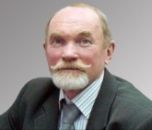
Biography:
V. A. Krylov, Doctor of Chemistry, Professor, Head of the Division of Analytical Chemistry of the Nizhny Novgorod State University. The main direction of scientific research of Professor Krylov is the development of the theory and applications of chromatography, chromatography–mass spectrometry for the analysis of high purity substances, including monoisotopic compounds, environmental objects and for the development of methods of the micropreconcentration of impurities. The attained detection limits for molecular impurities constituted 10–6 to 10–11 wt % and hit a record low. He has published more than 200 scientific papers, including reviews on the analytical chemistry.
Abstract:
Esters of phthalic acid are very dangerous for human health. Their penetration into the organism leads to the occurrence of cancer, disease of liver, kidney, reproductive organs. Phthalates are very widespread toxicants. Their occurrence in wines is connected with the inflow from the plasticized polymer seals, plastic piping, tanks and stoppers. In this study the high sensitive gas chromatographic-mass spectrometric determination of phthalates in low alcoholic beverages (champagne, red and white wine) coupled ultrasound-assisted emulsification-microextraction was developed. As extractants environmentally friendly hydrocarbons - octane and n-hexane are proposed. The sources of possible systematic errors were investigated: leaking of o-phthalates from chromatographic septum; contamination of phthalate in solvents; influence of macro components of wines; the hydrolysis of o-phthalates and others. For the first time it is shown that the impact of these factors can lead to an overestimation or underestimation of the actual concentration of impurities by 1-2 orders of magnitude. The methods of accounting or elimination of systematic errors are proposed. The content of phthalates in wines was 0.03 - 1 mgL-1. The largest concentrations are characteristic for diethyl-, di-n-butyl- and di(2-ethylhexyl) phthalates. The limits of detection of esters of о-phthalic acid in low alcohol beverages achieved are at the level of 10-6–10-5 mgL-1 and are highly competitive with the best world results. The relative expanded uncertainty of the determination of toxicants of 13- 30%.
Ravinder Jit Singh
Division of Clinical Biochemistry and Immunology, Mayo Clinic, USA
Title: The future of hormone measurements
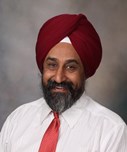
Biography:
Abstract:
Until recently most of the phenotypic information on congenital endocrine disorders have relied on biochemical testing of steroids, biogenic amines and peptides but is now being combined with the molecular testing. In spite of the mutational analysis of endocrine disorders the correlation of the phenotype relies more on biochemical testing than the molecular testing. Immunoassyas have been the methodology of choice for the analysis of steroids and amines in making diagnosis of patients affected with Cushing’s, pheochrmocytoma and congenital adrenal hyperplasia (CAH). But very often the results from the endocrine laboratory had to be repeated with the HPLC-extraction assays to rule out the possible cross reactivities of the glucocorticoids, steroid metabolites and drugs with the antibody detecting the analyte. In the past the use of gold standard MS technology in the clinical diagnostic labs have been limited because of labor intensive extraction, sample preparations and chromatographic separations. Recently the use of MS/MS (tandem MS) technology in liquid and gas chromatography has revolutionized the application of MS technology in clinical laboratories. This is due to reduction in effort for extraction and chromatography and as a result has a scope for expediting the analysis of steroids, biogenic amines and peptides for the diagnosis of various endocrine disorders. We at Mayo have implemented this technology for the routine analysis of steroids, biogenic amines and peptides. These methods not only provide reliable results for endocrine disorders but also can be used as reference methods by other laboratories and accreditation agencies.
Alvhild Alette Bjørkum
Western Norway University of Applied Sciences, Norway
Title: Human Blood Serum Proteome - Changes After Sleep Deprivation
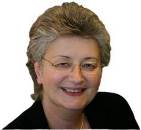
Biography:
Bjørkum completed her PhD in Neurophysiology, University of Bergen, Norway in 1996. At present, she is Associate Professor at the Faculty of Engineering, Biomedical Laboratory Sciences Program, at Western Norway University of Applied Sciences in Bergen. Earlier positions; Research coordinator 2001, Department of Health, Bergen University Research Foundation (UNIFOB), Post doctor from The Norwegian Research Council. Visiting Associate Professor from March 1998-2000 at Department of Neurology, Harvard Medical School, Harvard University, Boston, USA and an Instructor and Research Fellow, Fulbright Foundation, Department of Psychiatry, Harvard Medical School 1995-1997. Research Fellow 1990-1995 Department of Physiology, Medical Faculty, University of Bergen
Abstract:
Introduction; Cell stress might be a consequence of Sleep deprivation (SD). Cellular stress might be reflected in changed protein profiles and amount and type of specific proteins in blood serum after SD. These possible changes might hints to SD-affected cellular structures, -mechanisms and important -signalling pathways. Methods; Humans (n=6-8) was subjected 6 hours of SD and blood were sampled before, during and after a SD-night, within subject design. Initially, Seldi-Tof-MS (Ciphergen), Maldi-Tof-MS (AutoFlex, Bruker Daltonics) was used. Later, iTRAQ labeled peptides were fractionated (mixed-mode fraction) and run on LC-MS/MS were fifty mix mode fractions from each iTRAQ experiment were analysed on an LTQ-Orbitrap Velos Elite (Thermo Scientific) connected to a Dionex Ultimate NCR-3000RS LC system. Result; In the first dataset protein-profile changes (in the m/z spectrum) after SD were searched for by principal component analysis (PCA, Sirius 7.0-PRS), support vector machine- and decision three-models analysing the mass spectrometry data and showed differentially expressed proteins after 6 h of SD at night. We identified approximately 800 proteins where 34 of them were significantly changed after 6 h of SD. Three proteins changed above the 1.5-fold limit. Examples are Histone H4 that increased 2.3-fold and S1006A that increased 1.5-fold. Conclusion; SD might lead to cell stress. This seems reflected in changed protein profile in human serum. To be able to ID changed proteins and their interactions might shed light on the cellular mechanisms, possible affected extracellular matrix and or cellular pathways of interest to identify underlying sleep and/or being disturbed after SD.
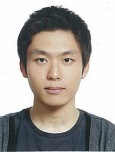
Biography:
Minsoo Kim has completed his bachelor´s from Chung-Ang University. He is a pharmacist. And he is in the master course focusing on PK/PD modeling and simulation at Chung-Ang University.
Abstract:
Sulfisoxazole (SFX) is still used in combination with trimethoprim in cattle despite adverse drug reactions(e.g., urolithiasis). Recently, SFX is known to be a promising repositioned drug candidate for pulmonaryhypertension and cancer. We developed a simultaneous determination method of SFX and its N-acetylated metabolites (N1-acetyl SFX, N1AS; N4-acetyl SFX, N4AS; diacetyl SFX, DAS) using HPLC–MS/MSfor the first time, and examined the pharmacokinetics of SFX in mice. N1AS and DAS were convertedrapidly to SFX and N4AS, respectively, in mouse plasma. The time courses of plasma SFX and N4AS con-centrations were well-characterised following the oral administration of SFX to mice. The absorption,metabolism, and/or excretion of SFX given at >700 mg/kg may be saturable, and in contrast to humansand rats, the extent of systemic exposure of mice to N4AS was much greater than that of SFX. Interestingly,the acetyl groups at both N1- and N4-positions were degraded during the ionisation required to generateprecursor ions. In additional experiments the carboxyl group of N-acetyl-5-aminosalicylic acid(NA5AS)was lost instead of the acetyl group during the ionisation, and acetaminophen (AAP) appeared. As theacetyl and carboxyl groups of some substances can be degraded during ionisation in the mass spectrom-eter, caution is appropriate when it is sought to simultaneously quantify similar structures containingthese moieties; chromatographic separation is essential.
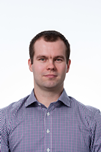
Biography:
Rando porosk is a PhD student at the age of 28 from the University of Tartu (Estonia). He is a specialist of mass spectrometry and biochemistry in the Institute of Biomedicine and Translational Medicine (Department of biochemistry). Being part of the medical metabolomics research team, he is focusing on antioxidative peptides, oxidative stress and mass-spectrometry. He has published 2 papers in scientific journals and is a member of Estonian Biochemical Society.
Abstract:
Wolfram syndrome 1 is a rare autosomal recessive neurodegenerative disease characterized by diabetes insipidus, diabetes mellitus, optic atrophy and deafness. Mutations in the WFS1 gene encoding wolframin glycoprotein lead to endoplasmic reticulum stress and unfolded protein response in cells, but the pathophysiology at organism level is poorly understood. In this study several organs (heart, liver, kidneys and pancreas) and bodily fluids (trunk blood and urine) of 2- and 6-months old Wfs1 knock-out, heterozygote and wild-type mice were studied by untargeted and targeted metabolomics using LC-MS/MS mass-spectrometry. The key findings are significant perturbations in protein metabolism in pancreas and hearth before clinical signs, glycosuria that precedes hyperglycemia and implies a kidney dysfunction prior the onset of classical diabetic nephropathy, liver and blood hypouricemia, which in time turns to hyperuricemia.
Rong Qian
National Center for Inorganic Mass Spectrometry in Shanghai, China
Title: Signal Enhancement with Stacked Magnets for High-Resolution Radio Frequency Glow Discharge Mass Spectrometry
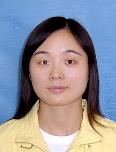
Biography:
Abstract:
A method for signal enhancement utilizing stacked magnets was introduced into high-resolution radio frequency glow discharge-mass spectrometry (rf-GD-MS) for significantly improved analysis of inorganic materials. Compared to the block magnet, the stacked magnets method was able to achieve 50−59% signal enhancement for typical elements in Y2O3, BSO, and BTN samples. The results indicated that signal was enhanced as the increase of discharge pressure from 1.3 to 8.0 mPa, the increase of rf-power from 10 to 50 W with a frequency of 13.56 MHz, the decrease of sample thickness, and the increase of number of stacked magnets. The possible mechanism for the signal enhancement was further probed using the software “Mechanical APDL (ANSYS) 14.0”. It was found that the distinct oscillated magnetic field distribution from the stacked magnets was responsible for signal enhancement, which could extend the movement trajectories of electrons and increase the collisions between the electrons and neutral particles to increase the ionization efficiency. Two NIST samples were used for the validation of the method, and the results suggested that relative errors were within 13% and detection limit for six transverse stacked magnets could reach as low as 0.0082 μg g−1. Additionally, the stability of the method was also studied. RSD within 15% of the elements in three nonconducting samples could be obtained during the sputtering process. Together, the results showed that the signal enhancement method with stacked magnets could offer great promises in providing a sensitive, stable, and facile solution for analyzing the nonconducting materials.
Chia-Wen Tsao
National Central University, Taiwan
Title: Nanostructured silicon based mass spectrometry detection enhancement by vacuum desiccation approach
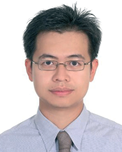
Biography:
Dr Chia-Wen Tsao is an associate professor in the Department of Mechanical Engineering, National Central University, Taiwan. He received his M.S. degree from the Department of Mechanical Engineering, University of Colorado at Boulder and his Ph.D. degree from the Department of Mechanical Engineering, University of Maryland at College Park. His research interests include micro/nano-fluidics, micro/nanofabrication, lab-on-a-chip devices, MEMS, and mass spectrometry technologies. He is the head of the Microfluidics and Microfabrication Laboratory, National Central University, Taiwan.
Abstract:
Nanoscale silicon technology have been used in many important applications such as high sensitivity surface-assisted laser desorption/ionization mass spectrometry (MS) material. The nanostructured silicon mass spectrometry (nSi-MS) is a matrix-free approach because the organic matrix in conventional MALDI-MS is replaced by the high surface-to-area ratio nanoscale porous silicon surface. An important issue in using nSi-MS analysis is the nSi chip preservation and stability. This is less detail reported in academic publications since all of the can be fresh-made before use. However, it may become critical issue if consider for commercial use. Storage of nanoscale silicon in room environment for a periods of time were found to have MS sensitivity decay. This was believed due to the silicon surface oxidation which limits the commercial products shelf life or the capability obtaining the optimum MS detection sensitivity unless the silicon surface was fresh-made. The most common way to reactive the surface is double etch in a hydrofluoric acid or buffered oxide etch to remove the oxide layer on the silicon surface. This procedure improves the MS detection sensitivity to a certain level. However MS sensitivity degrades from fresh surface. In this conference, we investigate the nSi surface performance under different preservation conditions. We also report a simple, environmental friendly hazardous reagent-free vacuum oven desiccation method to reactive and further enhance the nSi-MS performance. The nSi-MS signal intensity maintain with storage time. Other storage conditions like air, nitrogen will be report in the conference.
Xiang-Lan Piao
, Minzu University of China, China
Title: Determination of Metabolites from Gynostemma pentaphyllum in Rat Urine and Faeces by HPLC-MS
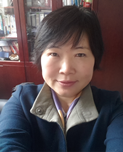
Biography:
Xiang-Lan Piao has completed his PhD at the age of 39 years from Seoul National University (Korea). She is professor and director of a research team focusing on natural products at Institute of Chinese Minority Traditional Medicine, Minzu University of China. She has obtained six invention patents and six projects supported by National Natural Science Foundation of China. She has published more than 20 papers in reputed journals and serving as some editorial board members.
Abstract:
Gynostemma pentaphyllum contains many biologically active phytochemicals which have been demonstrated to be effective against chronic diseases. As in vivo anti-tumor experiments of Gynostemma pentaphyllum extract (GP) show much stronger antitumor activities than in vitro, it is important and necessary to understand the metabolites of GP. GP was orally administrated to the Sprague–Dawley rats and the urine and faeces samples were extracted with methanol, followed by purification with a C18 cartridge to elute the former with methanol. Thirteen metabolites were separated by a Inertsil ODS-P column and a gradient mobile phase of acetonitrile and 0.01% formic acid in water by LC-MS with ESI mode and IT-TOF (LC-MS/MS). As a result, after oral administration, a total of thirteen metabolites of GP were assigned both from the rat urine and faeces.
Juliana Mozer Sciani
Butantan Institute/ Biochemistry and Biophysics Lab, Brazil
Title: Bioprospection of new molecules on Brazilian animal venoms – the use of mass spectrometry as a tool for drug discovery
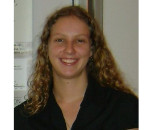
Biography:
Juliana Mozer Sciani has completed her PhD at the age of 28 years from University of São Paulo, Brazil. She is biologist, with masters on Pharmacology. She has been working on Biochemistry and Biophysics Lab, Butantan Institute, since 2012, on the discovery and development of new drugs from natural source. She is expert on the isolation and characterization of new molecules by mass spectrometry, as well as pharmacokinetics and drug stability, required steps for drug development. She has published more than 30 papers in reputed journals and serving as an editorial board member of repute.
Abstract:
The search for new drugs and discovery of new targets are being required for the treatment of diseases, as viruses, cancers and neurodegenerative disorders. The combinatory chemistry and rational drug design approaches have failed in the development of new molecular entity, and now the natural source has become an alternative to obtain new molecules, selected during years of evolution. The biodiversity in Brazil is rich, where we can explore it biochemically and take interesting compounds. Thus, our group prospects molecules from animal venoms and secretions using mass spectrometry (MS) techniques, in which we can perform fast screenings, analyse several samples, using few amounts. After MS approaches, we have selected marine animals and amphibians, which we could identify unknown compounds. Recently we identified one peptide from marine ray, Dasyatis americana, that inhibits the herpes virus infection and several other peptides with potential antibacterial and antitumor effect in sea urchins. Moreover, we found two molecules from a toad, Rhinella jimi, able to inhibit the rabies virus infection in in vitro and in vivo models. In order to complement the in vivo studies, we used MS techniques to study pharmacokinetics, as requisite of pre-clinical trials in drug development. Additionally, we developed a serum against bee venom (under clinical trials), after analysis of venom in several conditions and understanding of the best antigen for a better antibody. In conclusion, using MS tools for analysis and screening we can obtain interesting molecules from nature, able to act on biological system and become a drug.
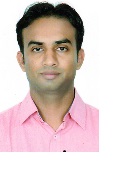
Biography:
Kashyap Thummar is pursuing his Ph.D. at Saurashtra University, Rajkot, Gujarat, India. He is registered pharmacist, research scholar and consultant of various spectrometric and chromatographic research analysis. He is currently working on various project such as bioanalysis, trace analysis and pharmaceutical analysis at Department Of Pharmaceutical Sciences, Saurashtra University, India. He has published more than 10 papers in reputed journals.
Abstract:
A simple, sensitive and reliable liquid chromatography – tandem mass spectrometry (LC –MS/MS) method was developed for the quantiï¬cation of topiramate (TOP) in human plasma by using the liquid–liquid extraction method. The method was developed and validated over the linearity range 15 – 3000 ng/mL with 0.2 mL of human plasma using niclosamide (IS) as an internal standard. The MS – MS ion transitions were monitored at m/z 338.20 – 78.20 and m/z 325.20 - 171.20 for TOP and IS in negative mode respectively. Chromatographic separation was achieved on Gemini C18 (150 mm x 4.6 mm, 5 µm) column with an isocratic mobile phase composed of 2 mM ammonium acetate and acetonitrile in the ratio of 15:85 (v/v), at a flow-rate of 0.5 mL/min. This method demonstrated intra- and inter-day precision within 3.61 – 9.35% and 4.85 – 9.61% and accuracy within 93.09 – 105.24% and 92.46 – 104.40%. The extraction recoveries of TOP were over 89%. TOP was found to be stable throughout three freeze–thaw cycles, bench top and postoperative stability studies. The method is proved to be accurate and speciï¬c, and was successfully applied to the pharmacokinetic study in epileptic patients
Mariane Gonçalves Santos
Federal University of Alfenas, Brazil
Title: Restricted molecularly imprinted polymers and direct mass spectrometry for analysis of tricyclic antidepressants from human plasma

Biography:
Mariane Gonçalves Santos was born in Formiga (Brazil) in 1986. She studied Pharmacy in Alfenas and chemistry in Três Corações (both Brazil). Her PhD studies were performed at the Federal University of Alfenas (Brazil) where she currently works as postdoctoral researcher lead by Prof. Eduardo C. Figueiredo. Her research focuses on the synthesis and characterization of molecular imprinted polymers and their application in sample preparation for the analysis of organic compounds from biological samples, and on the development of new methods by using chromatography and mass spectrometry techniques for identification and quantification of these compounds.
Abstract:
Tricyclic antidepressants (TCAs) have been used to treat depression disorder symptoms. Many sample preparation strategies have been used for the analysis of TCA in human plasma, however they are either poor in selectivity or require protein elimination pre-treatment. A new class of hybrid materials, called restricted access molecularly imprinted polymers (RAMIPs), seems to be an alternative to circumvent these problems. RAMIPs join good protein elimination capacity and high selectivity. Mass spectrometry (MS), equipped with electrospray ionization at atmospheric pressure and triple quadrupole, has been successfully used for polar drug identification/quantification. To combine the advantages of both RAMIPs and MS, we proposed a study that joins these properties in a single system, where we analyzed TCAs from human plasma without offline extraction or chromatographic separation. A RAMIP for amitriptyline was synthesized by the bulk method, using methacrylic acid as a functional monomer and glycidilmethacrylate as hydrophilic co-monomer. After the epoxide rings openings, the polymer was covered with bovine serum albumin (BSA). A column filled with RAMIP-BSA was coupled to a MS/MS instrument in an online configuration, using water as loading and reconditioning mobile phase and a 0.01% acetic acid aqueous solution: acetonitrile at 30:70 as the elution mobile phase. The system was used for on-line extraction and quantization of nortriptyline, desipramine, amitriptyline, imipramine, clomipramine and clomipramine-d3 (IS) (from 15.0 to 500.0 μg L-1) simultaneously, from human plasma samples. The correlation coefficient was higher than 0.99 for all analytes and suitable precision and accuracy were obtained.
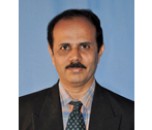
Biography:
Dr Rupakula Ravichandra Babu has completed his Master degree and PhD in analytical chemistry from Andhra University, Visakhapatnam, India. He had 14 yrs of industrial experience at various positions in quality control laboratories of a metallurgical industry prior to joining at Gitam University in August 2004 as a faculty for PG students in Department of chemistry. His area of research mainly includes method development and validation impurities in drug substances using chromatographic techniques and polymorphic studies of drug substances. He has been associated several research projects and published more than 15 papers in reputed journals and serving as an editorial board member of repute.
Abstract:
Pharmaceutical genotoxic impurities (PGIs) may induce genetic mutations, chromosomal breaks (rearrangements) and they have potential to cause cancer in human was observed by Bolt et al.1 Jacobson and McGovern2 investigated that exposure to even low levels of such impurities present in final active pharmaceutical ingredient (API) may be of significant toxicological importance. Hence it is important for process chemists to avoid such genotoxic impurities in the manufacturing process3. However, it would be difficult or impossible to eliminate PGIs completely from the synthetic scheme. Therefore, it is a great challenge to analytical chemists to develop an appropriate analytical method to quantify the impurity accurately and control their levels in APIs. According to the European Medicines Agency (EMEA) and feedback from US Food and Drug Administration (USFDA) the proposed use of a threshold of toxicological concern (TTC), it is accepted that genotoxic impurities will be limited to a daily dose of 1.0– 1.5 µg/day4, The present study was undertaken to develop a sensitive and rapid LC-MS/MS method for the determination of genotoxic impurity in Esmolol Hydrochloride API and the quantification of genotoxic impurity in Ketobomodine hydrochloride using GC-MS technique. The newly developed methods were validated according to ICH guidelines.
Nguyen Xuan Truong
The University of Manchester, United Kingdom
Title: Spectroscopy of small doped silicon clusters
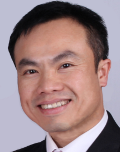
Biography:
Dr. Nguyen Xuan Truong earned his PhD in 2011 with Prof. Meiwes-Broer at the University of Rostock in Germany. He then joined the XUV science group of Prof. Vrakking at the Max-Born Institute in Berlin. In 2013, he moved to the TU Berlin as a project leader studying silicon containing clusters. In 2016, Dr. Truong was appointed as a research fellow of the Dalton Nuclear Institute in Manchester. His current research interests include coherent diffractive imaging, laser-enhanced ionization spectroscopy, and time and angular resolved photoemission spectroscopy of metal surfaces and interfaces.
Abstract:
Doping Si clusters changes their physical and chemical properties in a way that might be promising for the miniaturization trend towards nanoelectronics and nanophotonics. Here, we investigated Si clusters doped with C, B and N with resonant infrared-ultraviolet two-color ionization (IR-UV2CI) and global optimization coupled with electronic structure methods. Doped Si clusters are irradiated with tunable IR light from a Free Electron Laser before being ionized with UV photons from an F2 laser. Resonant absorption of IR photons leads to an enhanced ionization efficiency for the neutral clusters and provides the size-specific IR-UV2CI spectra. Structural assignment of the clusters is achieved by comparing the experimental IR-UV2CI spectrum with the calculated linear absorption spectra of the most stable isomers. Low-energy isomers are found with genetic and basin-hopping algorithms. For Sið‘šCð‘› (with ð‘š + ð‘› = 6), we observed the systematic transition from chain like geometries for C6 to 3D structures for Si6. We showed for the first row doped Si6X (with X = Be, B, C, N, O) clusters that different structures, vibrational and electronic properties can be achieved depending on the nature of the dopant atom. All dopant atoms in Si6X have a negative net charge suggesting that Si atoms act as electron donors within the clusters. Finally, novel methods to characterize materials based on the high-order harmonic generation XUV sources will be briefly introduced.
Rakhi Khanna
Regional Forensic Science Laboratory, India
Title: : Mass- Spectrometry a Significant Technique to solve mysterious Crimes in Forensic Sciences: Cases and Solutions
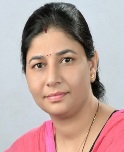
Biography:
Dr. Rakhi Khanna is a Forensic Scientist and since 1998 has wide 18 years of experience in this field and continuously after her Master’s Degree in Chemistry in 1997 engaged in solving crimes and analysis of wide groups of poisons in Toxicology Division. She has completed her Ph. D in year 2009. She has wide experience of instrumentation applications in Forensics Sciences. She had her research on, “Gas- chromatography mass spectrometry studies of some modern insecticides in viscera and body fluids”; she is heading the new laboratory at Ajmer and established lab after utmost efforts. Till her tenure she has examined thousands of cases of drugs, insecticides, metals, explosives etc. She has published many research papers. She has the recipient of Best Scientific Papers Awards two times in National level Conferences. She has been the recipient of Award of International Ambassador for Indian Region for her outstanding contribution to Publication in TMU journal. She has utmost busy schedule of office reports besides she has active participation and membership of Editor-in-Journals and committee members in OMICS, WASET renowned International scientific groups. Recently she has presented her video presentation as Speaker in OMICS International conference. She has special concern for crime against women and children. She has been an active honorable guest faculty at Central Detective Training School. She has provided her expertise knowledge and experience in solving many crimes. She contributes an article in Souvenir of CDTS. She has received many trainings and hence experience in analytical field and sound knowledge to use sophisticated instruments for detection of unknown substances.
Abstract:
Forensic Science is the most important branch in investigating crimes. The analysis of poisons present in autopsy material is very tedious work, But Mass spectrometry technique makes it possible in few minutes programming to analyze poisons and to help in solving crimes. Mass Spectrometry technique helps us in many cases. The analysis of large number of drugs, insecticides, volatiles poisons and many numerous compounds are quite tedious but by use of mass spectrometry it is not only easy to detect poisons but also the molecular structure responsible for the deaths in suspected matters enhances its utility in acceptance of the reports in court of law. There are numerous cases where by use of mass spectrometry we have solved several important cases. The use of mass spectrometry becomes highly significant in solving crimes. One such case where criminal used anti-psychotropic drug for absconding from police custody at Ajmer will be explained. The role of police person’s involvement in execution of this event was questionable and was solved by use of mass spectrometry. In India the criminals are using various sorts of unknown drugs, insecticides and other compounds to execute criminal activities. Mass Spectrometry can solve number of such cases. In fact it has been widely used in Forensic sciences and in many scientific academic institutions. Its significance, uses and future scopes will be elaborated in terms of use in Forensic sciences.
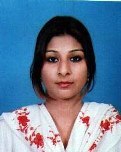
Biography:
Rabia Ikram/Waseem earned her Master’s degree in Analytical Chemistry from Institute of Chemistry, University of the Punjab (PUIC), Pakistan. She has joined University of Malaya as a PhD Scholar in February, 2014. She has defended her Doctorate Candidature (CD) in April, 2016 and she will be receiving her Doctorate degree by 2017 which is going to be an achievement for a young scientist under her 30’s. Her research interests include extraction of essential oils (Allium Species) using analytical Separation techniques (Solvent-free Microwave extraction & many others) based on Natural products and their characterization or statistical/comparative analysis using analytical instrumentation. She has around 15 publications & she has been invited as a Speaker in 7 plus countries around the world. She has attended good number of Conferences as well.
Abstract:
In recent years, Essential oils have a growing interest with positive health effects of their novel characteristics like antibacterial, antifungal and antioxidant activities. For the extraction of plant-derived Essential oils, there is the need of advanced analytical techniques and innovative methodologies. An Exhaustive study of Hydro-distillation, Supercritical fluid extraction, Ultrasonic & Microwave assisted extractions, Solid phase micro-extraction, Pressurized liquid extraction, Pressurized hot water extraction, Liquid-liquid extraction, Liquid phase micro-extraction, Matrix solid-phase dispersion and gas chromatography (one and two dimensional) hyphenated with mass spectrometry for the extraction through various plant species and analysis of Essential oils have been provided. Essential oils are composed of mainly terpenes and terpenoids with lower molecular weight aromatic and aliphatic constituents which are particularly important for public health.
Tiejie Wang
Shenzhen Institute for Drug Control, China
Title: Simultaneous quantification of eight active flavonoids constituents in Gleditsiae Spina by high-performance liquid chromatography coupled with electrospray ionisation tandem mass spectrometry
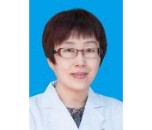
Biography:
Dr. Tiejie Wang earned her PhD in 2007 in pharmaceutical analysis at Shenyang Pharmaceutical University and be a visiting scholar in 2009 at Hong Kong University of Science and Technology. Now she is the deputy director of Shenzhen Institute for Drug Control (SZIDC). Her primarily working areas are the quality assessment of the traditional Chinese medicine (TCM) by chemical pattern recognition techniques, drug quality standard research, effective substances and quality standard of TCM. She is also the member of 10th Chinese Pharmacopoeia Commission, adjunct professor and doctoral supervisor of Shenyang Pharmaceutical University. More than 100 papers have been published and 12 patents have been authorized.
Abstract:
Gleditsiae Spina (GS, Zaojiaoci in Chinese), the thorn of Gleditsia sinensis Lam., is used as an anti-inflammatory, anti-tumor and antibacterial drug for hundreds of years in China and Japan. It is known that the main active constituents is flavonoid, however, there has been no specialized study on quantification the active constituents. The study was aimed at evaluating the contents of active flavonoids in GS, and laying a foundation for its further researches. In this study, we developed a method using high-performance liquid chromatography coupled with electrospray ionisation tandem mass spectrometry for determining 8 active flavonoids constituents: taxifolin, quercetin, quercitrin, rutin, isoquercitrin, dihydrofisetin, dihydrokaempferol, and eriodictyol in GS. Crude drugs of GS were extracted with 70% ethanol in ultrasound extraction. Chromatographic separation was performed on a Shim-pack C18 column (75 mm×2.0 mm, 2.2 μm) within 13 min. Gradient elution was applied using a mobile phase of 0.05% acetic acid/methanol with a flow rate of 0.20 mL/min. The detection was performed on a triple quadrupole tandem mass spectrometer by multiple reaction monitoring (MRM) mode via electrospray ionization (ESI) source. The method had good linearity (R2>0.9982), variations in the intra- and inter-day precision of all analytes were below 2.2%, and the accuracy was evaluated by a recovery test within the range of 99.6–101.9%. The method successfully quantified the 8 compounds in 34 sample batches of Gleditsiae Spina, and will be provide a new quality evaluation method for Gleditsiae Spina.
Wang-Hsien Ding
National Central University, Taiwan
Title: Application of ion-paring injection-port derivatization GC-MS to detect phenolic endocrine disruptors in human urine
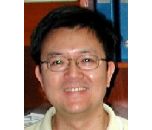
Biography:
Wang-Hsien Ding obtained his PhD in analytical chemistry in 1989 from the State University of New York at Albany, USA. He is currently the professor of National Central University, Taiwan. His research interests focus on the methods development for emerging contaminants detection in environmental, biota and food samples by various microextraction techniques coupled with GC-MS or LC-MS detection. He has published more than 80 papers in reputed journals.
Abstract:
Due to thesuperior separation,high distinguishingpower and availabilityin most routine laboratories,GC-MS systemisafrequently used technique fordetectingorganic micropollutants in environmental, biota and food samples.To improve the GC chromatographic separationfor hydroxylated (polar) analytes, derivatization is typically usedto increase thevolatilityand to improve sensitivity.However, off-line derivatization is laborious and time-consuming. Injection port derivatization (IPD), also known as on-line derivatization, means that the derivatization reaction occurs in the hot GC injection port. IPD simplifies the sample preparation procedure, avoids the usage of extra experimental apparatus, reduces the amount of derivatization reagents and organic solvents, shortens the derivatization time, and increases derivatization efficiency and ensures more accurate quantitation. This studydemonstrated the feasibility of applyingsolid-phase extraction(SPE)coupled withion-paring injection-port derivatization(IP-IPD) GC-MSto detect phenolic endocrine disruptors in human urinesamples. Three commonly and most concern phenolic endocrine disruptors: bisphenol A,4-nonylphenolsand 4-t-octylphenol,were employed in the method development and validation of this study.The parameters affectingSPE andIP-IPDweresystematicallyinvestigated.Accuracy and precision were evaluated,and thesuitabilityof the methodfor the determination thetracelevelsof the targetanalytesin human urinesamples was demonstrated.
Raseetha Siva
Universiti Teknologi MARA, Malaysia
Title: Bioactive compounds of coffee pulp and cocoa pod: Valorisation as food ingredient analysed using High Performance Liquid Chromatography (HPLC)
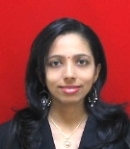
Biography:
Dr Raseetha Siva has completed her PhD from University of Otago, New Zealand. She is a Senior Lecturer at Universiti Teknologi MARA, Malaysia. She is diversified in the field of food chemistry, postharvest technology and mycology. Her current research interest is based of isolation of chlorogenic acid (CGA), a phenolic acid, which possess antioxidant and anti-inflammatory properties. Her on—going research regarding cytotoxicity level and lipid profiling of CGA extract exhibited no toxicity effect on 3T3-L1 cells and found to reduce the lipid accumulation in cells. She has 11 undergraduates and 2 postgraduates working under her.
Abstract:
Each year the agri-food industry produces millions of waste or by-products from crops which could be valorized for its bioactive compounds. High Performance Liquid Chromatography (HPLC) and UV-Vis Spectrophotometer were used as powerful analyzing tool. The aim of this study were to determine and compare the effect of different extraction methods on the availability of bioactive compounds i.e. total phenolic content (TPC), chlorogenic acid (CGA) content and antioxidant activity that was measured by Ferric Reducing Antioxidant Power (FRAP) assay and DPPH radical scavenging activity of coffee pulp (CFP) and cocoa pod (CCP). The extraction applied was solvent extraction (SE) and ultrasound-assisted extraction (UAE) method, both by applying 80% ethanol, for 2.5 hours at 40 °C. The UAE method gives higher value of TPC in CFP (6.285 mg/g) and CCP (4.808 mg/g), and higher antioxidant activity measured by FRAP assay for both CFP and CCP with value 3.508 mg/g and 2.454 mg/g, respectively. The SE method on the other hand gives higher but no significant different value of CGA content, 27.122 mg/g sample in CFP and 0.249 mg/g sample in CCP and higher antioxidant activity measured by DPPH radical scavenging assay in CFP (73.4275 %) and CCP (87.523 %). In comparison, the UAE method is more effective than SE as it can recover higher TPC, antioxidant activity (FRAP assay) and no significant different in CGA value compared to the SE method for both CFP and CCP sample.
Pradeep G Kumar
Rajiv Gandhi Centre for Biotechnology, India
Title: Autoimmune regulator (AIRE) regulates the expression of several nucleic acid binding and cytoskeletal proteins in spermatogonia
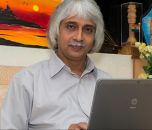
Biography:
Abstract:
Autoimmune Regulator (AIRE) is a gene associated with Autoimmune polyendocrinopathy-candidiasis-ectodermal dystrophy (APECED). AIRE is expressed heavily in the thymic epithelial cells and is involved in maintaining self tolerance through regulating the expression of tissue specific antigens. Testis is the most predominant extra-thymic location where a heavy expression of AIRE is reported. Homozygous Aire-deficient male mice were infertile, possibly due to impaired spermatogenesis, deregulated germ cell apoptosis or autoimmunity. We report that AIRE is expressed in the testis of neonatal, adolescent and adult mice. AIRE expression was detected in GFRα+ (spermatogonia), GFRα-/SCP3+ (meiotic) and GFRα-/PGK2+ (post-meiotic) germ cells in mouse testis. GC1-spg, a germ cell derived cell line, did not express AIRE. Retinoic acid induced AIRE expression in GC1-spg cells. Ectopic expression of AIRE in GC1-spg cells using label-free LC-MS/MS identified a total of 371 proteins which were differentially expressed. 100 proteins were up regulated and 271 proteins were down regulated. Data are available via ProteomeXchange with identifier PXD002511. Functional analysis of the differentially expressed proteins showed increased levels of various nucleic acid binding proteins and transcription factors and a decreased level of various cytoskeletal and structural proteins in the Aire over expressing cells as compared to the empty vector transfected controls. The transcripts of a select set of the upregulated proteins were also elevated. However, there was no corresponding decrease in the mRNA levels of the downregulated set of proteins. Molecular function network analysis indicated that AIRE influenced gene expression in GC1-spg cells by acting at multiple levels including transcription, translation, RNA processing, protein transport, protein localization and protein degradation, thus setting the foundation in understanding the functional role of AIRE in germ cell biology.
Mohamed Bouaziz
University of Sfax. Tunisia
Title: New insights into the qualitative phenolic profile of Ficus carica L. and Olea europaea L. by-products from Tunisia using ultra-high-performance liquid chromatography coupled to quadrupole-time-of-flight mass spectrometry and their antioxidant activity
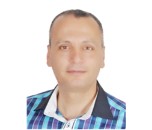
Biography:
Prof. Mohamed Bouaziz has completed his PhD at the age of 29 years from University of Sfax, Tunisia and Kew Gardens, London UK. He is at High Institute of Biotechnology, University of Sfax, Tunisia, professor and director of a research team focusing on in Analytical chemistry and bioactive compounds from natural substances. His international experience includes various programs, contributions and participation in different countries for diverse fields of study. He has published more than 140 papers in reputed journals and serving as an editorial board member of repute.
Abstract:
Figs fruits and olive fruits and oil have been associated with numerous in vivo and in vitro biological activities and used for traditional medicinal purposes. However, Olea europaea L. by-products such as leaves, stems roots, stone, mill wastewater, as well as wood tree with Ficus carica L. organs are an untapped resource with little information about their chemical composition. To increase our knowledge about this topic, the phenolic and no phenolic constituents of Olea europaea L. and Ficus carica L. from various Tunisian cultivars were analyzed using reversed-phase (RP) high-performance liquid chromatography (HPLC) coupled to two detection systems: diode-array detection (DAD) and quadrupole time-of-flight (QTOF) mass spectrometry (MS) in negative and positive ion mode. Tandem mass spectrometry experiments were performed to establish the chemical structure of olive phytochemicals. UV-Vis absorption was a valuable tool for classifying phenolic compounds into families, while MS using electrospray ionization (ESI) and MS/MS allowed the molecular formula to be established and structural information to be obtained. As a result, a total of 109 phenolic compounds were characterized in the leaves, fruits, skins and pulps of Ficus carica from Tounsi, Temri and Soltani cultivars based on the results obtained by RP-UHPLC-DAD-QTOF-MS and MS/MS. In this regard, dihydroxybenzoic acid, dipentoside and rutin as relatively most abundant compound in leaf of all studied cultivars. In addition, 9 furanocoumarins were detected in the positive ionization mode, with psoralen, methoxypsoralen and oxypeudacin hydrate being the most relatively abundant. On the other hand, more than 85 compounds were characterized in the studied olive by-products. To the best of our knowledge, 70 compounds of the olive by-products and figs organs metabolites was reported in this study for the first time and 13 new structures were proposed.
Taghreed Fagieh
Loughborough University, UK
Title: Indicating/Quantifying Oxidative Stress Response to Exercise Stimuli

Biography:
Taghreed Fagieh is a PhD student in the final year at Chemistry Department, Loughborough University, UK. She is from Saudi Arabia working as a lecturer at Chemistry Department, King Abdulaziz University, Jeddah, KSA. She has been awarded a full scholarship to pursue her higher education in the UK.
Abstract:
Oxidative stress is imbalance between oxidant and antioxidant levels in living systems. Human cells are protected from reactive oxygen species by endogenous enzymatic antioxidants. Most of these compounds require particular redox metals in their structures as cofactors to allow them to scavenge the free radicals such as Cu, Zn-SOD, Mn-SOD and catalase (Fe). This study aimed to quantify these elements as oxidative stress biomarkers in vitro in skeletal muscle cells (C2C12) which were incubated under hypoxia/hyperoxia conditions generated by varying oxygen level from 1%-60% for 24 and 48 hours. ICP-MS was applied to quantify Zn, Cu, Fe and Mn in cell populations. Their concentration increased dramatically in cells grown at 25%-60% O2, the most significant increase being 85% in Cu at 60%O2. None showed any increase at 5%-15% O2 indicating normoxia states. At 1%O2, all elements except Fe showed a significant increase and the most remarkable growth was in Mn by 33%. Interestingly, increasing incubation to 48 hours had differing effects on the elements. Zn and Cu concentrations were unaffected by increasing incubation time except at 60%O2 where they showed further growth. In contrast, Mn concentration grew sharply over oxygen levels of 30%-50% with no further effect at 1%, while Fe concentration decreased at 1%O2 and grew steadily over oxygen levels of 5%-60%. It can be concluded that all four elements were significantly affected by stress conditions applied to cells, but at different rates. Further work comparing these studies with single cell analysis using laser ablation-ICP-MS will also be reported.

Biography:
Kazuya Takahashi has completed his PhD at the age of 28 years from University of Tokyo, Japan. He gas een major in analytical chemistry, especially mass-specgtrometry. He is a senior research scientist in RIKEN.
Abstract:
We have developed a detection technology for trace elements, including their chemical complexes, based on an element analytical system using an electron-cyclotron-resonance ion source (ECRIS). An electron exhibits cyclotron motion in a magnetic field and is accelerated resonantly upon applying a high frequency. This phenomenon is called electron cyclotron resonance (ECR). ECR has been used as the ion source in accelerator facilities. We have focused our attention on the stability and high ionization efficiency of ECRIS (ECR Ion Source) and we employed ECRIS to customize a mass spectrometer to realize ECRIS mass spectroscopy (ECRIS-MS). Using ECRIS-MS, the following three applications were carried out. (1) Isotopic analyses of trace elements in geochemical or environmental materials. (2) Trace analyses of metal ions in biological or medical samples such as blood. (3) Monitoring of hazardous chemicals such as chemical warfare agents (CWAs) in the atmosphere. In particular, for applications (1) and (2), sputtering and laser ablation techniques has been also employed to assist sample introduction into the ion source without any complicated chemical procedures. These applications are expected to contribute to the environmental and biochemical research fields. For the monitoring of hazardous chemicals (3), a vapor sample is introduced directly into the ion source, and the molecular material was decomposed into elements using the electron cyclotron resonance plasma and ionized. We will present details of the potential of ECRIS-MS for the detection and identification of trace elements in various environmental or biochemical samples.
